Shows
 The Art Bell ArchiveApril 17, 2002: Anarchist - John ZerzanJohn Zerzan delves into the roots of modern civilization, advocating for a return to pre-industrial values and examining the psychological and societal costs of technology and hierarchy.2025-03-312h 46
The Art Bell ArchiveApril 17, 2002: Anarchist - John ZerzanJohn Zerzan delves into the roots of modern civilization, advocating for a return to pre-industrial values and examining the psychological and societal costs of technology and hierarchy.2025-03-312h 46 I heArt Bell4-18-2002 - John Zerzan - AnarchistArt Bell - John Zerzan - Anarchist2024-12-222h 46
I heArt Bell4-18-2002 - John Zerzan - AnarchistArt Bell - John Zerzan - Anarchist2024-12-222h 46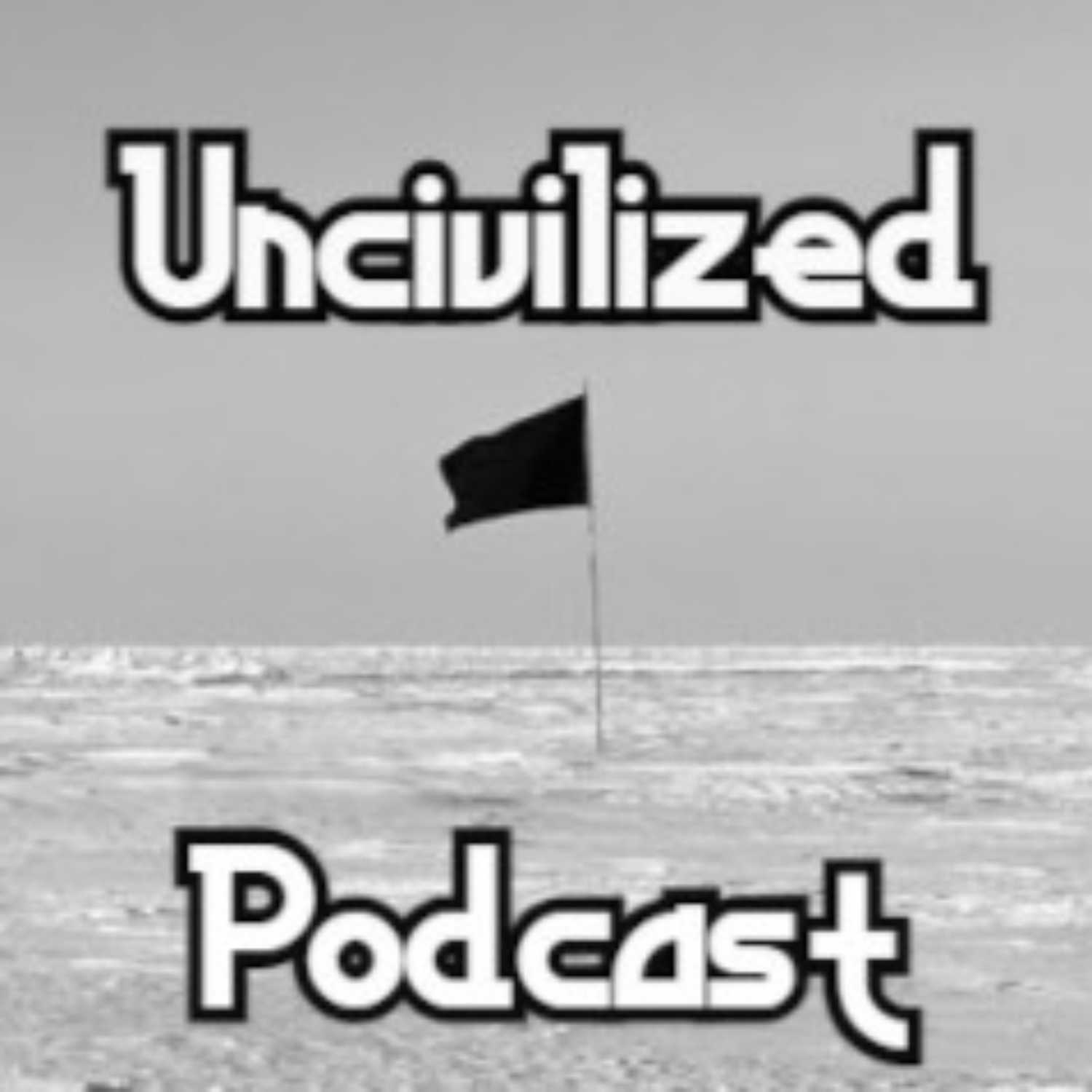 Uncivilized PodcastInterview With John ZerzanAnarchist author John Zerzan joins us to talk everything primitive. It was an absolute pleasure having you on John!2024-01-131h 21
Uncivilized PodcastInterview With John ZerzanAnarchist author John Zerzan joins us to talk everything primitive. It was an absolute pleasure having you on John!2024-01-131h 21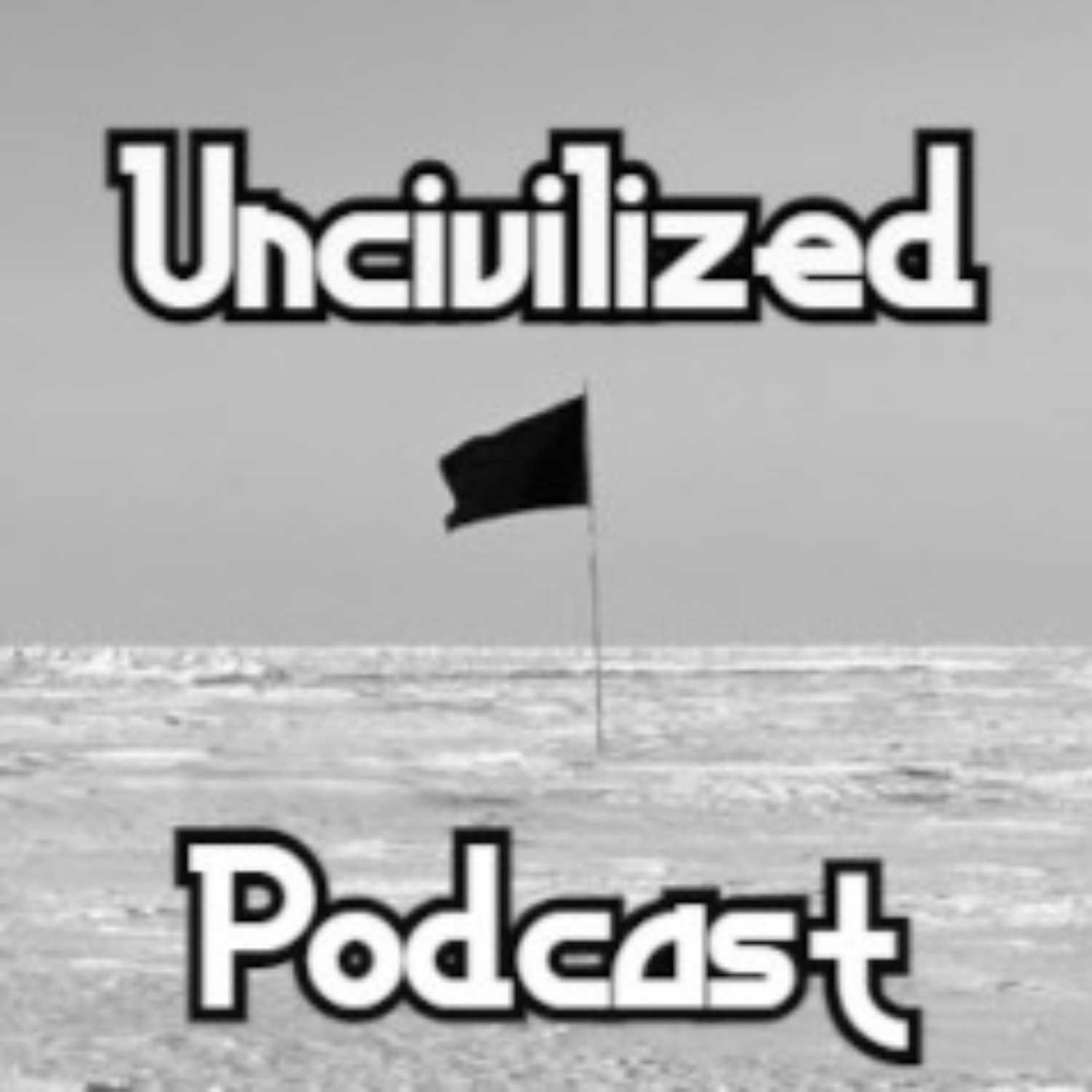 Uncivilized PodcastReview Of Zerzan's "When We Are Human"Today, Artxmis gives an overview and a review of John Zerzan's new work, "When We Are Human: notes from the age of pandemics." 2024-01-1353 min
Uncivilized PodcastReview Of Zerzan's "When We Are Human"Today, Artxmis gives an overview and a review of John Zerzan's new work, "When We Are Human: notes from the age of pandemics." 2024-01-1353 min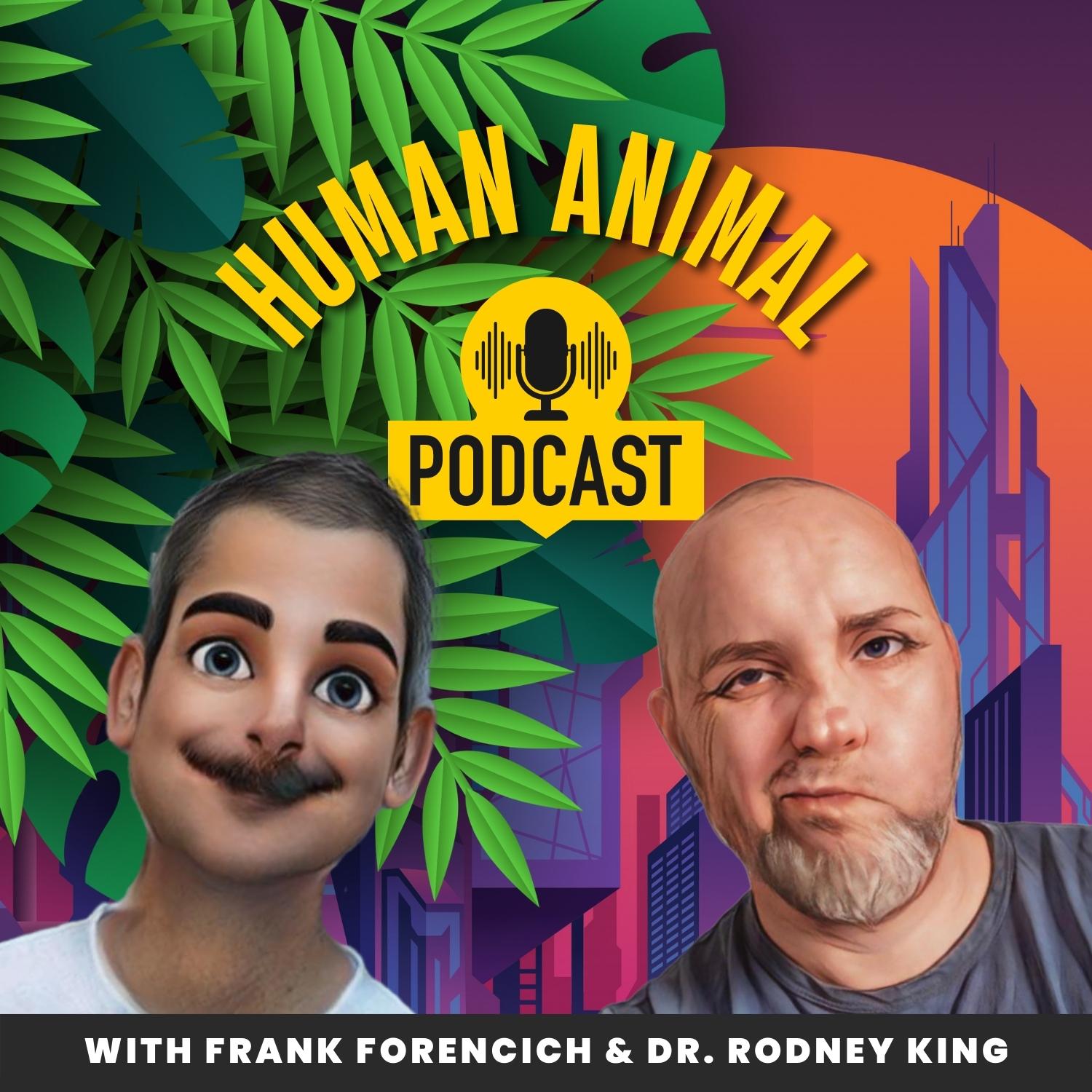 The Human Animal PodcastBreaking Free From the Machine with John ZerzanIn this third episode, we have our first guest, John Zerzan. John is a noted anarcho-primitivist, and author of several books, most notably Running on Emptiness: The Pathology of Civilization. In this episode, John talks to us about the state of civilization, and ways to show up in a modern world bent on ensuring we all conform through large-scale industrialization, in doing so distancing us as human animals from our wild nature. You can find out more about John's work here: johnzerzan.net2022-10-261h 01
The Human Animal PodcastBreaking Free From the Machine with John ZerzanIn this third episode, we have our first guest, John Zerzan. John is a noted anarcho-primitivist, and author of several books, most notably Running on Emptiness: The Pathology of Civilization. In this episode, John talks to us about the state of civilization, and ways to show up in a modern world bent on ensuring we all conform through large-scale industrialization, in doing so distancing us as human animals from our wild nature. You can find out more about John's work here: johnzerzan.net2022-10-261h 01 Aporia PodcastEducation, civilization, technology, & the left | John Zerzan - Ideas Sleep Furiously Podcast E18John Zerzan (born August 10, 1943) is an American anarchist and primitivist ecophilosopher and author. His works criticize agricultural civilization as inherently oppressive, and advocates drawing upon the ways of life of hunter-gatherers as an inspiration for what a free society should look like. Subjects of his criticism include domestication, language, symbolic thought (such as mathematics and art) and the concept of time. His six major books are Elements of Refusal (1988), Future Primitive and Other Essays (1994), Running on Emptiness (2002), Against Civilization: Readings and Reflections (2005), Twilight of the Machines (2008), and Why hope? The Stand Against Civilization (2015).
------------
If you...2022-04-241h 26
Aporia PodcastEducation, civilization, technology, & the left | John Zerzan - Ideas Sleep Furiously Podcast E18John Zerzan (born August 10, 1943) is an American anarchist and primitivist ecophilosopher and author. His works criticize agricultural civilization as inherently oppressive, and advocates drawing upon the ways of life of hunter-gatherers as an inspiration for what a free society should look like. Subjects of his criticism include domestication, language, symbolic thought (such as mathematics and art) and the concept of time. His six major books are Elements of Refusal (1988), Future Primitive and Other Essays (1994), Running on Emptiness (2002), Against Civilization: Readings and Reflections (2005), Twilight of the Machines (2008), and Why hope? The Stand Against Civilization (2015).
------------
If you...2022-04-241h 26 New Books In Public HealthJohn Zerzan, "When We Are Human: Notes from the Age of Pandemics" (Feral House, 2021)These are dark and darkening times, challenging us to look deeper to grasp the roots and dynamics of the looming civilizational crisis. Chronic illness of the planet calls for radically new thinking if there is to be any hope of renewal. When We Are Human: Notes from the Age of Pandemics (Feral House, 2021) offers thought at a necessary and primal level. All previous civilizations have failed, and now there's just one global civilization, which is starkly, grandly failing. To deny or avoid this fact is to remain in the sphere of the superficial, the irrelevant. The physical environment is rea...2022-03-041h 00
New Books In Public HealthJohn Zerzan, "When We Are Human: Notes from the Age of Pandemics" (Feral House, 2021)These are dark and darkening times, challenging us to look deeper to grasp the roots and dynamics of the looming civilizational crisis. Chronic illness of the planet calls for radically new thinking if there is to be any hope of renewal. When We Are Human: Notes from the Age of Pandemics (Feral House, 2021) offers thought at a necessary and primal level. All previous civilizations have failed, and now there's just one global civilization, which is starkly, grandly failing. To deny or avoid this fact is to remain in the sphere of the superficial, the irrelevant. The physical environment is rea...2022-03-041h 00 New Books in Politics and PolemicsJohn Zerzan, "When We Are Human: Notes from the Age of Pandemics" (Feral House, 2021)These are dark and darkening times, challenging us to look deeper to grasp the roots and dynamics of the looming civilizational crisis. Chronic illness of the planet calls for radically new thinking if there is to be any hope of renewal. When We Are Human: Notes from the Age of Pandemics (Feral House, 2021) offers thought at a necessary and primal level. All previous civilizations have failed, and now there's just one global civilization, which is starkly, grandly failing. To deny or avoid this fact is to remain in the sphere of the superficial, the irrelevant. The physical environment is rea...2022-03-041h 00
New Books in Politics and PolemicsJohn Zerzan, "When We Are Human: Notes from the Age of Pandemics" (Feral House, 2021)These are dark and darkening times, challenging us to look deeper to grasp the roots and dynamics of the looming civilizational crisis. Chronic illness of the planet calls for radically new thinking if there is to be any hope of renewal. When We Are Human: Notes from the Age of Pandemics (Feral House, 2021) offers thought at a necessary and primal level. All previous civilizations have failed, and now there's just one global civilization, which is starkly, grandly failing. To deny or avoid this fact is to remain in the sphere of the superficial, the irrelevant. The physical environment is rea...2022-03-041h 00 New Books in Environmental StudiesJohn Zerzan, "When We Are Human: Notes from the Age of Pandemics" (Feral House, 2021)These are dark and darkening times, challenging us to look deeper to grasp the roots and dynamics of the looming civilizational crisis. Chronic illness of the planet calls for radically new thinking if there is to be any hope of renewal. When We Are Human: Notes from the Age of Pandemics (Feral House, 2021) offers thought at a necessary and primal level. All previous civilizations have failed, and now there's just one global civilization, which is starkly, grandly failing. To deny or avoid this fact is to remain in the sphere of the superficial, the irrelevant. The physical environment is rea...2022-03-041h 00
New Books in Environmental StudiesJohn Zerzan, "When We Are Human: Notes from the Age of Pandemics" (Feral House, 2021)These are dark and darkening times, challenging us to look deeper to grasp the roots and dynamics of the looming civilizational crisis. Chronic illness of the planet calls for radically new thinking if there is to be any hope of renewal. When We Are Human: Notes from the Age of Pandemics (Feral House, 2021) offers thought at a necessary and primal level. All previous civilizations have failed, and now there's just one global civilization, which is starkly, grandly failing. To deny or avoid this fact is to remain in the sphere of the superficial, the irrelevant. The physical environment is rea...2022-03-041h 00 Let Us Be Idiots#15. ARCHIVE- Interview of John ZerzanOriginal Air Date: 02/11/2020
In this episode of Let Us Be Idiots is straight from Matteo’s ARCHIVE. This episode is from Matteo’s former podcast Talking Shlock. In this episode from the ARCHIVE; Matteo interviews John Zerzan. John Zerzan is infamous Anarchist. John Zerzan’s form of Anarchy all about primitivism. All other information can be found on the website: https://www.crooklyncomedy.com/2022-02-2421 min
Let Us Be Idiots#15. ARCHIVE- Interview of John ZerzanOriginal Air Date: 02/11/2020
In this episode of Let Us Be Idiots is straight from Matteo’s ARCHIVE. This episode is from Matteo’s former podcast Talking Shlock. In this episode from the ARCHIVE; Matteo interviews John Zerzan. John Zerzan is infamous Anarchist. John Zerzan’s form of Anarchy all about primitivism. All other information can be found on the website: https://www.crooklyncomedy.com/2022-02-2421 min HermitixThe Death of Civilization with John ZerzanJohn Zerzan is an anarchist and primitivist ecophilosopher and author. In this episode we discuss his latest book When We Are Human: Notes from the Age of Pandemics, alongside discussions on the death of civilization, anarcho-primitivism, modernity and more.
---
Become part of the Hermitix community:
Hermitix Twitter - https://twitter.com/Hermitixpodcast
Support Hermitix:
Hermitix Subscription - https://hermitix.net/subscribe/
Patreon - https://www.patreon.com/hermitix
Donations: - https://www.paypal.me/hermitixpod
Hermitix Merchandise - http://teespring.com/stores/h...2022-01-0555 min
HermitixThe Death of Civilization with John ZerzanJohn Zerzan is an anarchist and primitivist ecophilosopher and author. In this episode we discuss his latest book When We Are Human: Notes from the Age of Pandemics, alongside discussions on the death of civilization, anarcho-primitivism, modernity and more.
---
Become part of the Hermitix community:
Hermitix Twitter - https://twitter.com/Hermitixpodcast
Support Hermitix:
Hermitix Subscription - https://hermitix.net/subscribe/
Patreon - https://www.patreon.com/hermitix
Donations: - https://www.paypal.me/hermitixpod
Hermitix Merchandise - http://teespring.com/stores/h...2022-01-0555 min Failed State Update57. John Zerzan: When We Are HumanIs the United States collapsing, or is all of civilization collapsing? To explore that question we bring you John Zerzan, an anarchist and primitivist author whose work has been compared to Unabomber Ted Kaczynski, of all people. His books offer an alternative vision of history that focuses on the destructive nature of technology. And more importantly — and this is why we spoke to him — his work suggests a possible future free of the alienation and control of capitalism-run-amok.
His most recent book is When We Are Human: Notes from the Age of Pandemics (Feral House).
While y...2021-12-1953 min
Failed State Update57. John Zerzan: When We Are HumanIs the United States collapsing, or is all of civilization collapsing? To explore that question we bring you John Zerzan, an anarchist and primitivist author whose work has been compared to Unabomber Ted Kaczynski, of all people. His books offer an alternative vision of history that focuses on the destructive nature of technology. And more importantly — and this is why we spoke to him — his work suggests a possible future free of the alienation and control of capitalism-run-amok.
His most recent book is When We Are Human: Notes from the Age of Pandemics (Feral House).
While y...2021-12-1953 min Parallax Views w/ J.G. MichaelWhen We Are Human: Notes from the Age of Pandemics w/ John Zerzan
On this edition of Parallax Views, a previously unpublished with the controversial anarcho-primitivist philosopher John Zerzan from August 2020 about his new book When We Are Human: Notes from the Age of Pandemics (Feral House 2021). Zerzan argues that the root cause of social woes like alienation and neuroses, as well as domination and hierarchies, are the cause of agricultural and industrial civilizations. Moreover, he believes we are in the grips of a techno-madness that is spiritually anathema to being human. A critic of transhumanism, Zerzan believes in the extremely radical idea of anarcho-primitivism which posits a return to...2021-11-041h 07
Parallax Views w/ J.G. MichaelWhen We Are Human: Notes from the Age of Pandemics w/ John Zerzan
On this edition of Parallax Views, a previously unpublished with the controversial anarcho-primitivist philosopher John Zerzan from August 2020 about his new book When We Are Human: Notes from the Age of Pandemics (Feral House 2021). Zerzan argues that the root cause of social woes like alienation and neuroses, as well as domination and hierarchies, are the cause of agricultural and industrial civilizations. Moreover, he believes we are in the grips of a techno-madness that is spiritually anathema to being human. A critic of transhumanism, Zerzan believes in the extremely radical idea of anarcho-primitivism which posits a return to...2021-11-041h 07 The Rewilding Podcast w/ Peter Michael BauerA Conversation w/ John ZerzanToday I’m chatting with John Zerzan, long time anarchist author, speaker and host of Anarchy Radio out of Eugene, Oregon. John's writing has been instrumental in crafting the rewilding narrative. In this conversation, we jump right into some of the themes and history of primal anarchy, and work our way around various topics. Notes• John's Website• When We Are Human• Oak Journal• Future PrimitiveSupport the show2021-08-231h 01
The Rewilding Podcast w/ Peter Michael BauerA Conversation w/ John ZerzanToday I’m chatting with John Zerzan, long time anarchist author, speaker and host of Anarchy Radio out of Eugene, Oregon. John's writing has been instrumental in crafting the rewilding narrative. In this conversation, we jump right into some of the themes and history of primal anarchy, and work our way around various topics. Notes• John's Website• When We Are Human• Oak Journal• Future PrimitiveSupport the show2021-08-231h 01 ⒶccessibiliteaRunning on Emptiness: The Failure of Symbolic Thought (John Zerzan, 2009)A reading of John Zerzan's "Running on Emptiness: The Failure of Symbolic Thought".
The original essay was posted on the (now defunct) primitivism.com website back in 2009.
A full, text-only transcript of this episode can be found here.2021-06-1340 min
ⒶccessibiliteaRunning on Emptiness: The Failure of Symbolic Thought (John Zerzan, 2009)A reading of John Zerzan's "Running on Emptiness: The Failure of Symbolic Thought".
The original essay was posted on the (now defunct) primitivism.com website back in 2009.
A full, text-only transcript of this episode can be found here.2021-06-1340 min Radio Free GalisteoAnarchist Author John Zerzan Discusses his Upcoming Book - When We Are Human: Notes From the Age of PandemicsJohn Zerzan the American anarchist and primitivist ecological philosopher and author, provides an overview of his latest work: When We are Human: Notes From the Age of Pandemics, due out July 13th 2021 from publisher Feral House . John also comments on the far right and far left’s new obsession with Ted Kaczinski, why technology is pushing us further apart, and his definition of freedom. Support the showFollow Radio Free Galisteo on Instagram at: @radiofreegalisteo. We're on twitter here: https://twitter.com/FreeGalisteo or @FreeGalisteo. We're now on BLUESKY: https://bsky.app/profile/radiofreegalisteo.bsk...2021-05-2144 min
Radio Free GalisteoAnarchist Author John Zerzan Discusses his Upcoming Book - When We Are Human: Notes From the Age of PandemicsJohn Zerzan the American anarchist and primitivist ecological philosopher and author, provides an overview of his latest work: When We are Human: Notes From the Age of Pandemics, due out July 13th 2021 from publisher Feral House . John also comments on the far right and far left’s new obsession with Ted Kaczinski, why technology is pushing us further apart, and his definition of freedom. Support the showFollow Radio Free Galisteo on Instagram at: @radiofreegalisteo. We're on twitter here: https://twitter.com/FreeGalisteo or @FreeGalisteo. We're now on BLUESKY: https://bsky.app/profile/radiofreegalisteo.bsk...2021-05-2144 min Untaming35. Kevin Tucker: Primal Anarchy Pt. 1Kevin Tucker is a primal anarchist writer focused on uncovering how our communal past of living in nomadic hunter-gatherer bands - without storage, without production - has shaped us. The core of Kevin’s work is to fully grasp the consequences of civilization and the ways in which it permeates and limps along. To rewild our lives, rebuild community, and resist civilization.
Show Notes:
Anarcho Primitivism: https://en.wikipedia.org/wiki/Anarcho-primitivism
John Zerzan: https://www.johnzerzan.net/
Pierre Clastres: https://en.wikipedia.org/wiki/Pierre_Clastres
Four Legged Human: https://theanarchistlibrary.org...2020-12-2059 min
Untaming35. Kevin Tucker: Primal Anarchy Pt. 1Kevin Tucker is a primal anarchist writer focused on uncovering how our communal past of living in nomadic hunter-gatherer bands - without storage, without production - has shaped us. The core of Kevin’s work is to fully grasp the consequences of civilization and the ways in which it permeates and limps along. To rewild our lives, rebuild community, and resist civilization.
Show Notes:
Anarcho Primitivism: https://en.wikipedia.org/wiki/Anarcho-primitivism
John Zerzan: https://www.johnzerzan.net/
Pierre Clastres: https://en.wikipedia.org/wiki/Pierre_Clastres
Four Legged Human: https://theanarchistlibrary.org...2020-12-2059 min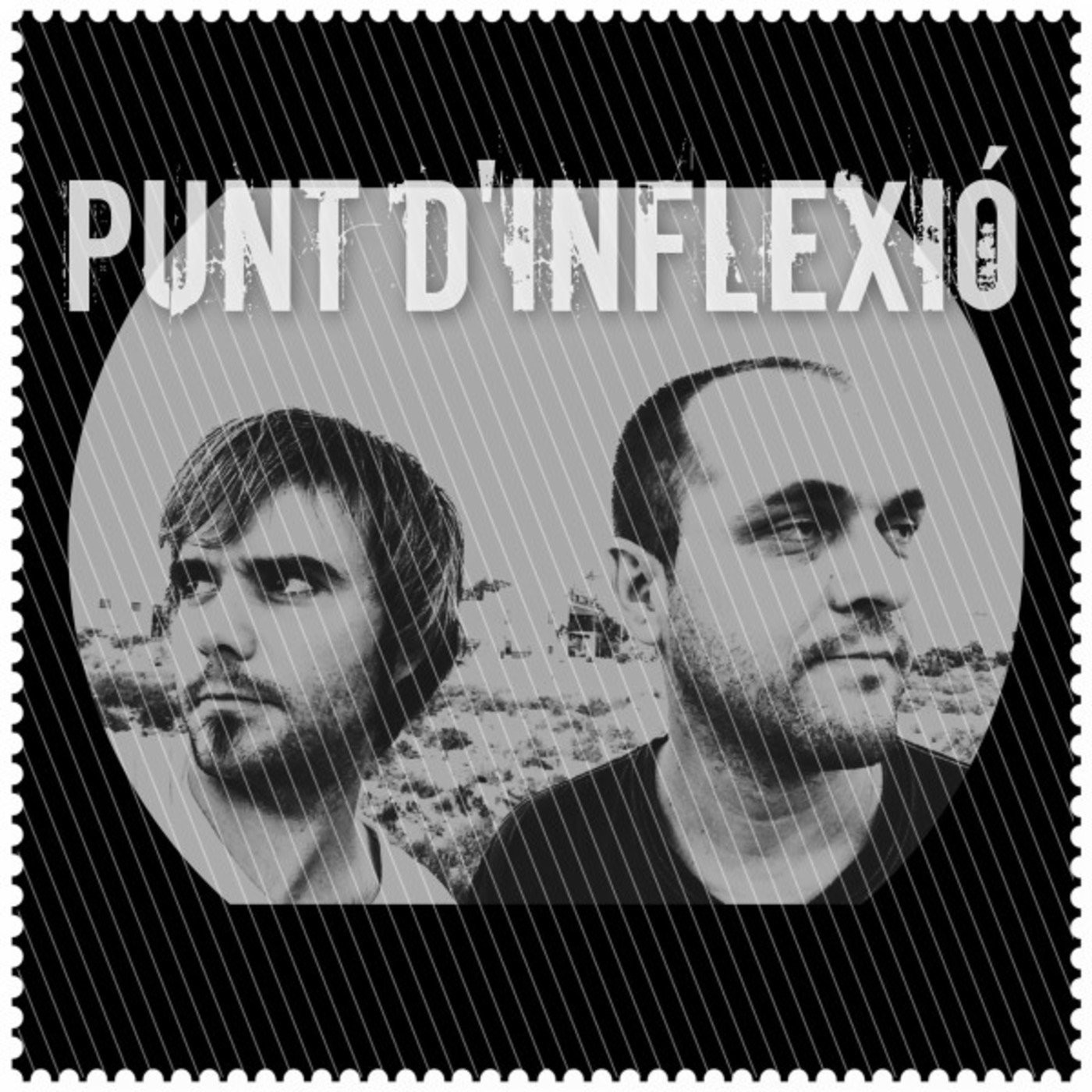 Punt d’inflexióCrítica a La Civilizacion por John zerzanHoy en día estamos viviendo una crisis profunda en todas las esferas, lo que nos obliga a replantearnos nuestra aceptación de las instituciones sociales más elementales. Es necesario problematizar la división del trabajo y la domesticación, bases mismas de la civilización. La ausencia de una crítica fundamental significaría que aceptamos un desastre de múltiples dimensiones como algo sencillamente inevitable. ¿Se- remos capaces de encontrar un nuevo paradigma/mar- co/visión que funcione allí donde fracasaron intentos previos de enfocar la salud y la liberación? Siendo conscientes de que nunca debería haber...2020-11-1358 min
Punt d’inflexióCrítica a La Civilizacion por John zerzanHoy en día estamos viviendo una crisis profunda en todas las esferas, lo que nos obliga a replantearnos nuestra aceptación de las instituciones sociales más elementales. Es necesario problematizar la división del trabajo y la domesticación, bases mismas de la civilización. La ausencia de una crítica fundamental significaría que aceptamos un desastre de múltiples dimensiones como algo sencillamente inevitable. ¿Se- remos capaces de encontrar un nuevo paradigma/mar- co/visión que funcione allí donde fracasaron intentos previos de enfocar la salud y la liberación? Siendo conscientes de que nunca debería haber...2020-11-1358 min PhilosophicaDo We Really Want To Save The World? | Vince Cable, Aaron Bastani, Emma Slade, John Zerzan Podcast: Philosophy For Our Times (LS 53 · TOP 0.5% what is this?)Episode: Do We Really Want To Save The World? | Vince Cable, Aaron Bastani, Emma Slade, John ZerzanPub date: 2020-11-10Get Podcast Transcript →powered by Listen411 - fast audio-to-text and summarizationLooking for a link we mentioned? It's here: https://linktr.ee/philosophyforourtimesIs the purpose of life personal development or changing society for the better? And what is the future of political engagement? On this week’s episode we’re discussing the relationship between our personal beliefs...2020-11-1259 min
PhilosophicaDo We Really Want To Save The World? | Vince Cable, Aaron Bastani, Emma Slade, John Zerzan Podcast: Philosophy For Our Times (LS 53 · TOP 0.5% what is this?)Episode: Do We Really Want To Save The World? | Vince Cable, Aaron Bastani, Emma Slade, John ZerzanPub date: 2020-11-10Get Podcast Transcript →powered by Listen411 - fast audio-to-text and summarizationLooking for a link we mentioned? It's here: https://linktr.ee/philosophyforourtimesIs the purpose of life personal development or changing society for the better? And what is the future of political engagement? On this week’s episode we’re discussing the relationship between our personal beliefs...2020-11-1259 min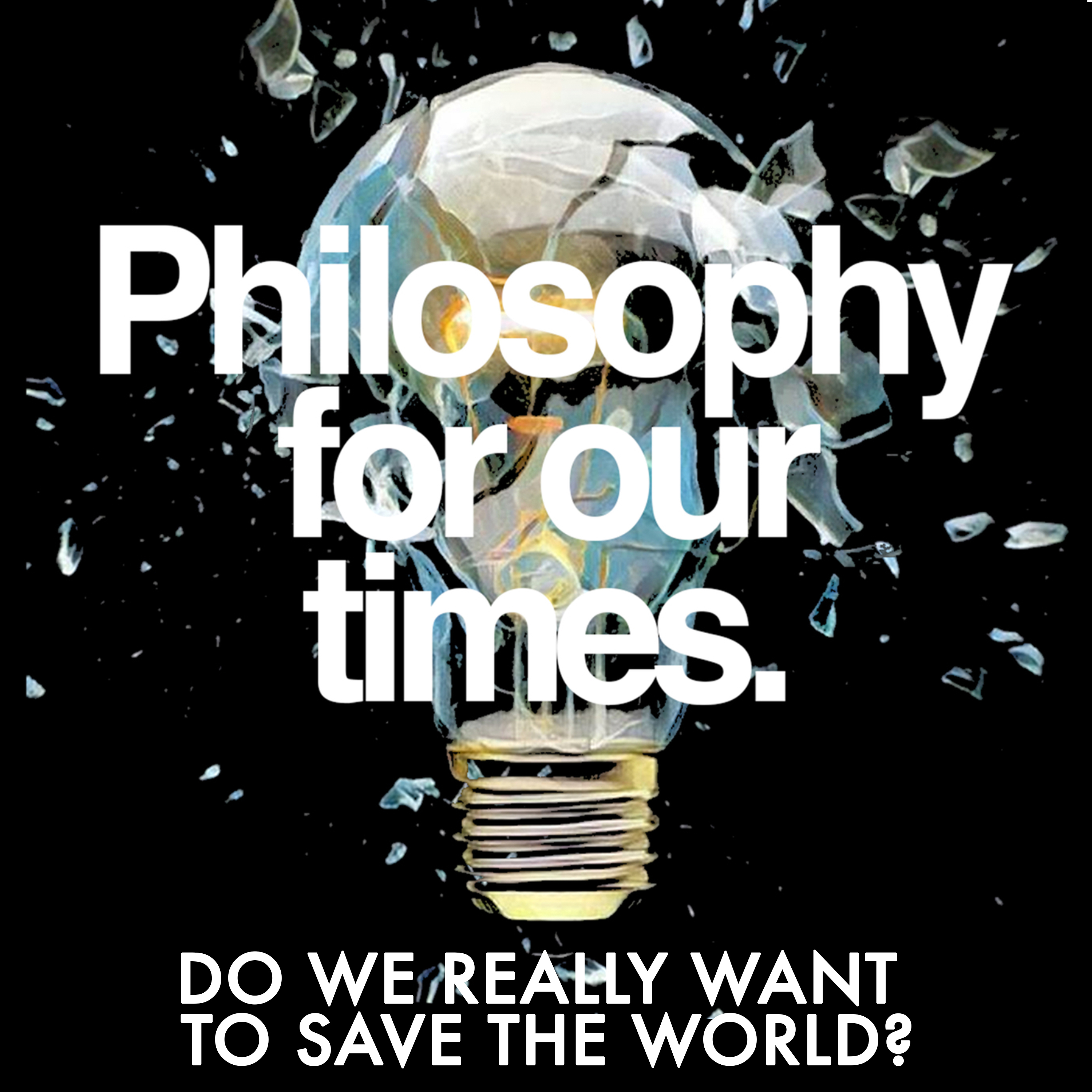 Philosophy For Our TimesDo We Really Want To Save The World? | Vince Cable, Aaron Bastani, Emma Slade, John ZerzanLooking for a link we mentioned? It's here: https://linktr.ee/philosophyforourtimesIs the purpose of life personal development or changing society for the better? And what is the future of political engagement? On this week’s episode we’re discussing the relationship between our personal beliefs and civic engagement.We’re joined remotely by anarcho-primitist John Zerzan, author and Buddhist nun Emma Slade, radical left-wing journalist Aaron Bastani and former liberal democrat leader Vince Cable.This episode is in association with Say Your Peace. Say Your Peace aims to spark global change through...2020-11-1059 min
Philosophy For Our TimesDo We Really Want To Save The World? | Vince Cable, Aaron Bastani, Emma Slade, John ZerzanLooking for a link we mentioned? It's here: https://linktr.ee/philosophyforourtimesIs the purpose of life personal development or changing society for the better? And what is the future of political engagement? On this week’s episode we’re discussing the relationship between our personal beliefs and civic engagement.We’re joined remotely by anarcho-primitist John Zerzan, author and Buddhist nun Emma Slade, radical left-wing journalist Aaron Bastani and former liberal democrat leader Vince Cable.This episode is in association with Say Your Peace. Say Your Peace aims to spark global change through...2020-11-1059 min Philosophy For Our TimesDo We Really Want To Save The World? | Vince Cable, Aaron Bastani, Emma Slade, John ZerzanLooking for a link we mentioned? It's here: https://linktr.ee/philosophyforourtimesIs the purpose of life personal development or changing society for the better? And what is the future of political engagement? On this week’s episode we’re discussing the relationship between our personal beliefs and civic engagement.We’re joined remotely by anarcho-primitist John Zerzan, author and Buddhist nun Emma Slade, radical left-wing journalist Aaron Bastani and former liberal democrat leader Vince Cable.This episode is in association with Say Your Peace. Say Your Peace aims to spark global change through...2020-11-1059 min
Philosophy For Our TimesDo We Really Want To Save The World? | Vince Cable, Aaron Bastani, Emma Slade, John ZerzanLooking for a link we mentioned? It's here: https://linktr.ee/philosophyforourtimesIs the purpose of life personal development or changing society for the better? And what is the future of political engagement? On this week’s episode we’re discussing the relationship between our personal beliefs and civic engagement.We’re joined remotely by anarcho-primitist John Zerzan, author and Buddhist nun Emma Slade, radical left-wing journalist Aaron Bastani and former liberal democrat leader Vince Cable.This episode is in association with Say Your Peace. Say Your Peace aims to spark global change through...2020-11-1059 min From EmbersVABF Day 3: John Zerzan on His Life As An Anarchist and the State Of Affairs In the USAJohn Zerzan is author of numerous publications exploring the pre-modern dimensions of our being. His weekly radio program, AnarchyRadio can be found here: https://www.johnzerzan.net/radio/.2020-09-1649 min
From EmbersVABF Day 3: John Zerzan on His Life As An Anarchist and the State Of Affairs In the USAJohn Zerzan is author of numerous publications exploring the pre-modern dimensions of our being. His weekly radio program, AnarchyRadio can be found here: https://www.johnzerzan.net/radio/.2020-09-1649 min Victoria Anarchist Bookfair: The PodcastJohn Zerzan on his life as an anarchist and the state of affairs in the USAJohn Zerzan is author of numerous publications exploring the pre-modern dimensions of our being. His weekly radio program, AnarchyRadio can be found here: https://www.johnzerzan.net/radio/.2020-07-211h 00
Victoria Anarchist Bookfair: The PodcastJohn Zerzan on his life as an anarchist and the state of affairs in the USAJohn Zerzan is author of numerous publications exploring the pre-modern dimensions of our being. His weekly radio program, AnarchyRadio can be found here: https://www.johnzerzan.net/radio/.2020-07-211h 00 The Good Mood PodcastEpisode 18: Herbal Anarchy with Victor Cirone, Registered HerbalistVictor Cirone, registered herbalist returns to the Good Mood Podcast to talk about how the sickness of our civilization may contribute to disease. Modern medicine may be a mechanism of healing "sick machines" and true healing should be concerned with the restoration of "what belongs to nature".
Victor discusses the work of John Zerzan, and other Green Anarchists, while describing how herbal medicine might help us realign with nature's internal wisdom and agenda that lies outside of society and time.
Victor talks about how plant medicine differs from pharmacotherapy, and how true holistic medicine is ab...2020-07-061h 15
The Good Mood PodcastEpisode 18: Herbal Anarchy with Victor Cirone, Registered HerbalistVictor Cirone, registered herbalist returns to the Good Mood Podcast to talk about how the sickness of our civilization may contribute to disease. Modern medicine may be a mechanism of healing "sick machines" and true healing should be concerned with the restoration of "what belongs to nature".
Victor discusses the work of John Zerzan, and other Green Anarchists, while describing how herbal medicine might help us realign with nature's internal wisdom and agenda that lies outside of society and time.
Victor talks about how plant medicine differs from pharmacotherapy, and how true holistic medicine is ab...2020-07-061h 15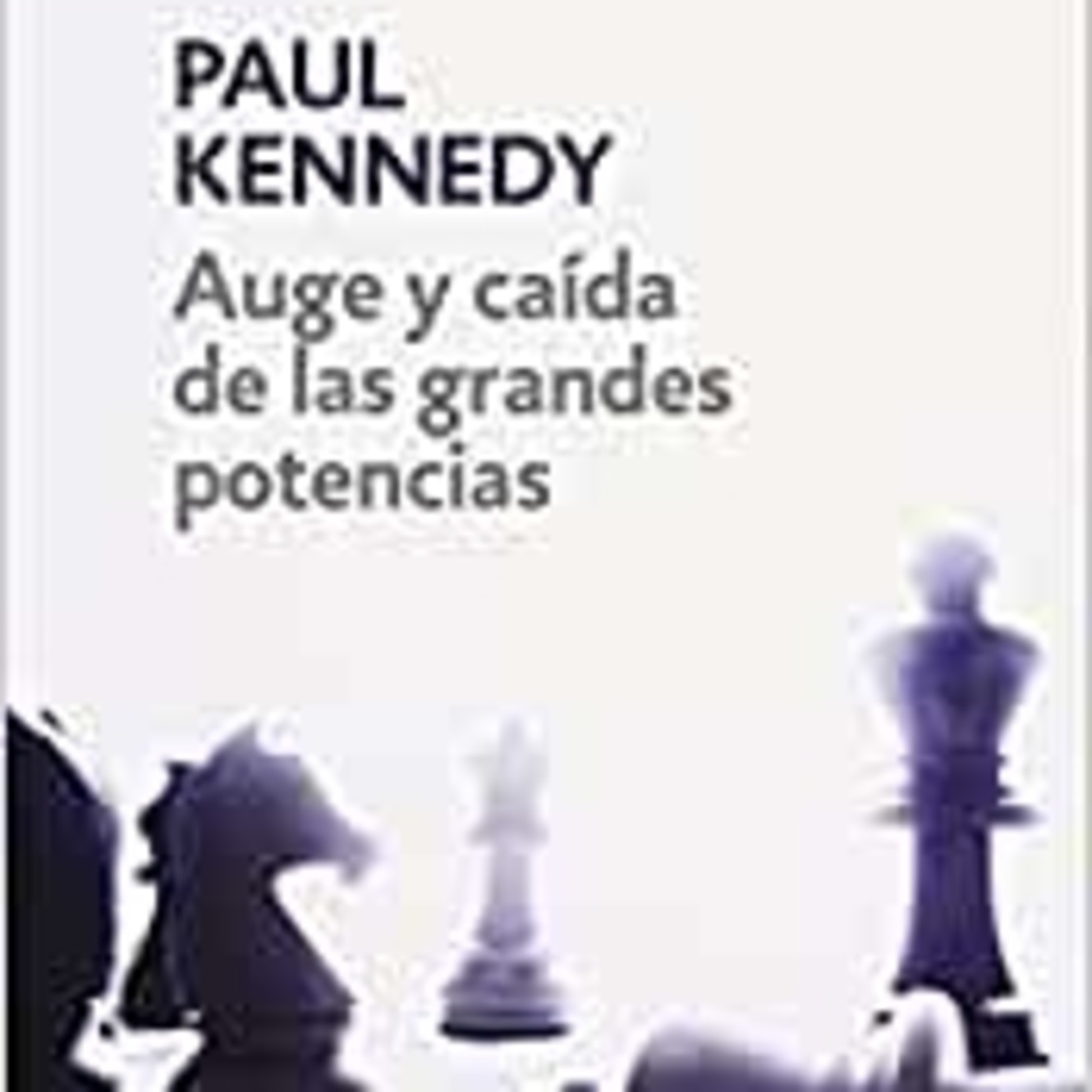 Paul KennedyAuge y caída de las grandes potencias 11ºafortunadas, protestas georgianas contra el intento de 1978 de hacer que el ruso fuese también lengua oficial en aquella república, y tal vez sobre todo, el hecho de que haya millones de kazakos y uiguros a un lado y a otro de la frontera chinosoviética y la existencia de 48 millones de musulmanes al norte de las inestables fronteras con Turquía, Irán y Afganistán; todos estos hechos parecen hacer mella en la mente del liderazgo ruso y aumentar su inseguridad. Más concretamente, provocan una creciente provocación sobre dónde colocar los menguantes números de los jóv...2020-03-061h 45
Paul KennedyAuge y caída de las grandes potencias 11ºafortunadas, protestas georgianas contra el intento de 1978 de hacer que el ruso fuese también lengua oficial en aquella república, y tal vez sobre todo, el hecho de que haya millones de kazakos y uiguros a un lado y a otro de la frontera chinosoviética y la existencia de 48 millones de musulmanes al norte de las inestables fronteras con Turquía, Irán y Afganistán; todos estos hechos parecen hacer mella en la mente del liderazgo ruso y aumentar su inseguridad. Más concretamente, provocan una creciente provocación sobre dónde colocar los menguantes números de los jóv...2020-03-061h 45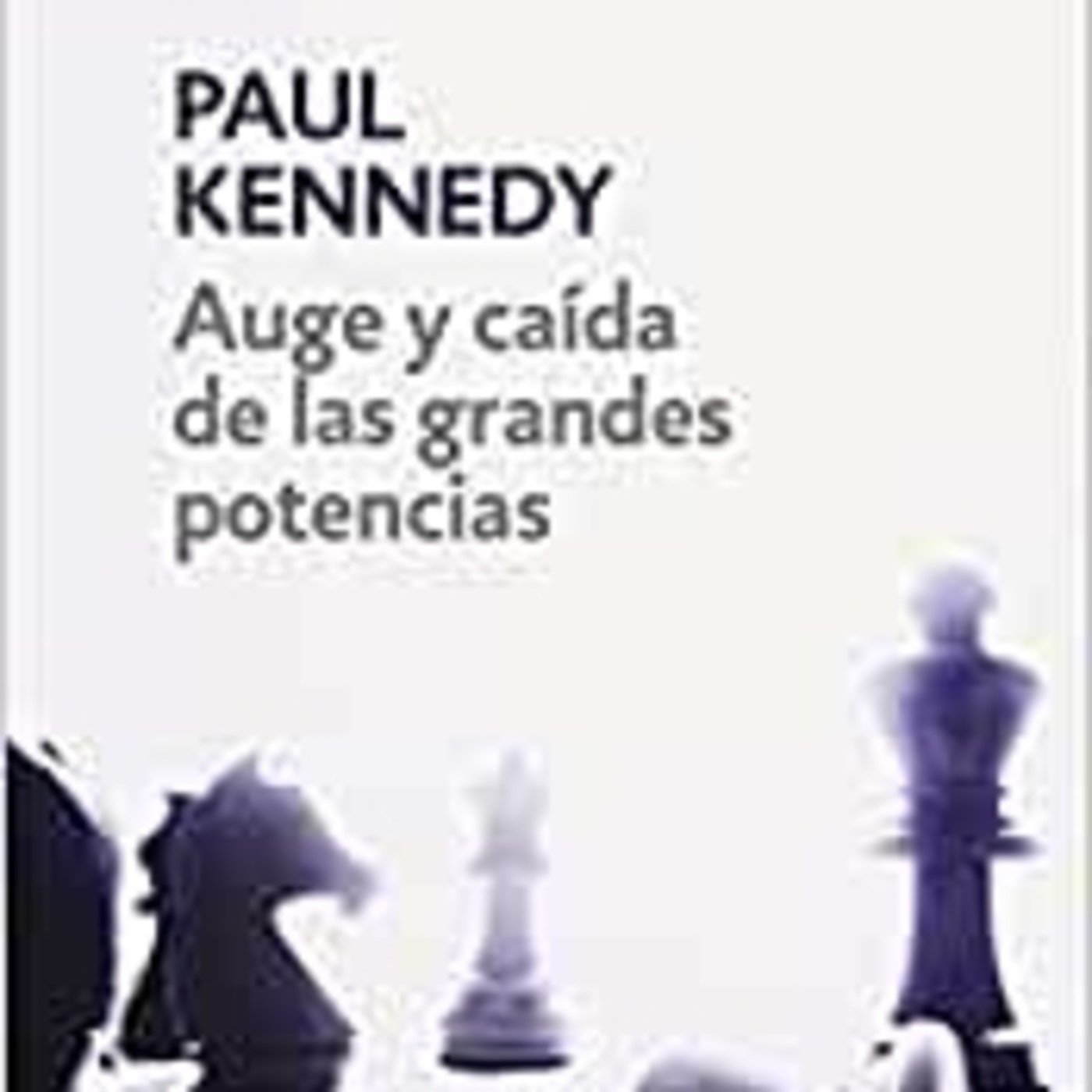 Paul KennedyAuge y caída de las grandes potencias 10ºfactores variables sobre los que descansa, podría desarrollarse con tal exactitud. Pero la cuestión general permanece: China tendrá un grandísimo producto nacional bruto dentro de un espacio de tiempo relativamente corto, salvo que se produzca alguna catástrofe, y aunque todavía será relativamente pobre en términos per cápita, será decididamente más rica que en la actualidad. Vale la pena mencionar otros tres puntos sobre el futuro impacto de China en el escenario internacional. El primero, y el menos importante para nuestros fines, es que, aunque el crecimiento económico del país hará aumentar su co...2020-03-062h 23
Paul KennedyAuge y caída de las grandes potencias 10ºfactores variables sobre los que descansa, podría desarrollarse con tal exactitud. Pero la cuestión general permanece: China tendrá un grandísimo producto nacional bruto dentro de un espacio de tiempo relativamente corto, salvo que se produzca alguna catástrofe, y aunque todavía será relativamente pobre en términos per cápita, será decididamente más rica que en la actualidad. Vale la pena mencionar otros tres puntos sobre el futuro impacto de China en el escenario internacional. El primero, y el menos importante para nuestros fines, es que, aunque el crecimiento económico del país hará aumentar su co...2020-03-062h 23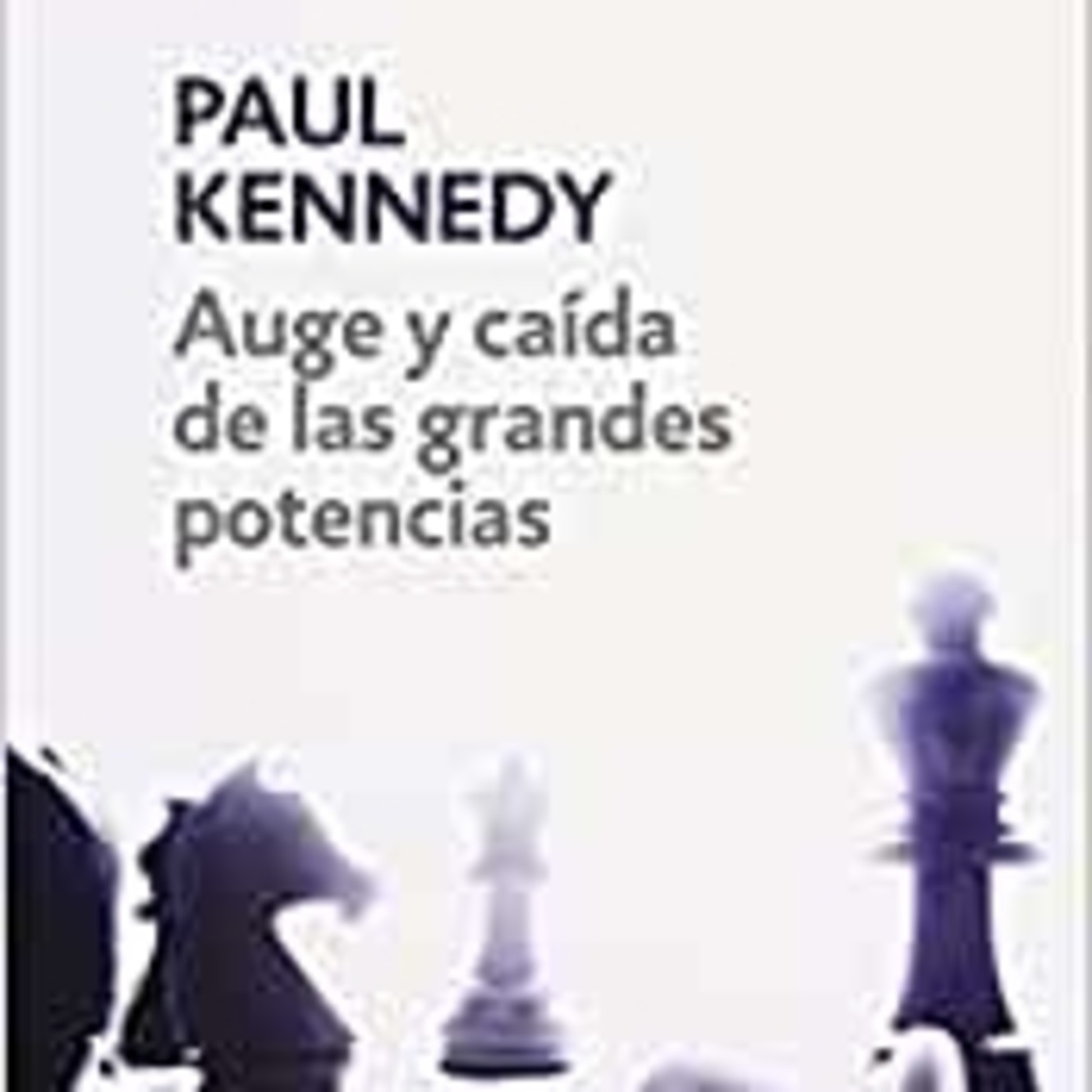 Paul KennedyAuge y caída de las grandes potencias 9ºser cincuenta veces más productivos que Vietnam del Norte; militarmente, poseían el poder para, como aconsejaron algunos halcones, bombardear al enemigo hasta hacerle volver a la Edad de piedra; cierta mente, con sus armas nucleares, tenía capacidad para arrasar todo el Sudeste asiático. Pero ésta no era una guerra en que tales superioridades pudiesen tener plena eficacia.2020-03-052h 27
Paul KennedyAuge y caída de las grandes potencias 9ºser cincuenta veces más productivos que Vietnam del Norte; militarmente, poseían el poder para, como aconsejaron algunos halcones, bombardear al enemigo hasta hacerle volver a la Edad de piedra; cierta mente, con sus armas nucleares, tenía capacidad para arrasar todo el Sudeste asiático. Pero ésta no era una guerra en que tales superioridades pudiesen tener plena eficacia.2020-03-052h 27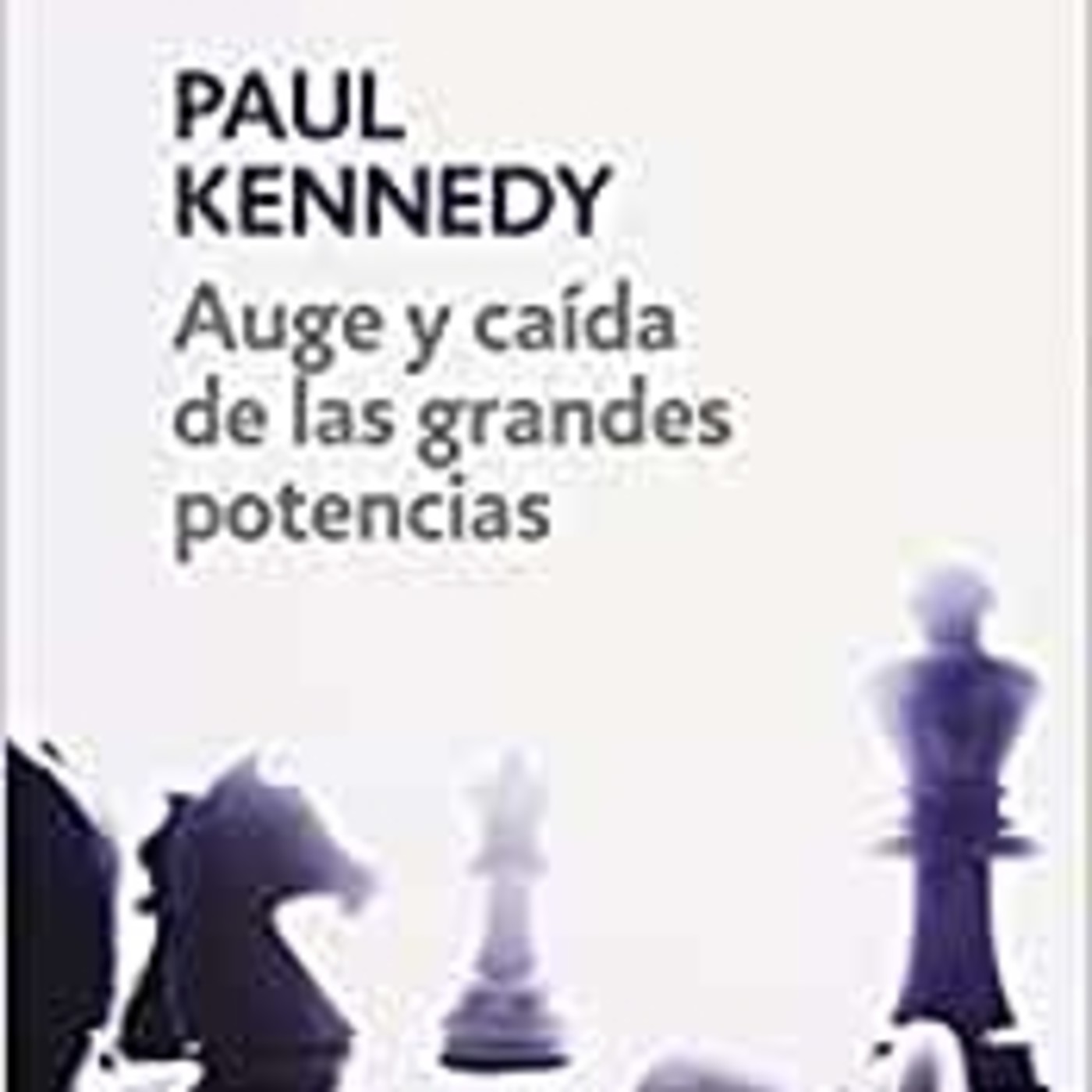 Paul KennedyAuge y caída de las grandes potencias 8ºpodían no estar de acuerdo con la afirmación de que nada de naturaleza comparable había ocurrido durante los pasados mil quinientos años, se estaba viendo claramente que, después de la guerra, el equilibrio mundial de poder sería totalmente diferente del que la había precedido. Anteriores grandes potencias Francia, Italia estaban ya eclipsadas. La ambición alemana de dominar Europa se derrumbaba, lo mismo que la del Japón de dominar el Extremo Oriento y el Pacífico. Gran Bretaña, a pesar de Churchill, se hallaba en decadencia. El mundo bipolar, pronosticado tan a menudo en...2020-03-052h 28
Paul KennedyAuge y caída de las grandes potencias 8ºpodían no estar de acuerdo con la afirmación de que nada de naturaleza comparable había ocurrido durante los pasados mil quinientos años, se estaba viendo claramente que, después de la guerra, el equilibrio mundial de poder sería totalmente diferente del que la había precedido. Anteriores grandes potencias Francia, Italia estaban ya eclipsadas. La ambición alemana de dominar Europa se derrumbaba, lo mismo que la del Japón de dominar el Extremo Oriento y el Pacífico. Gran Bretaña, a pesar de Churchill, se hallaba en decadencia. El mundo bipolar, pronosticado tan a menudo en...2020-03-052h 28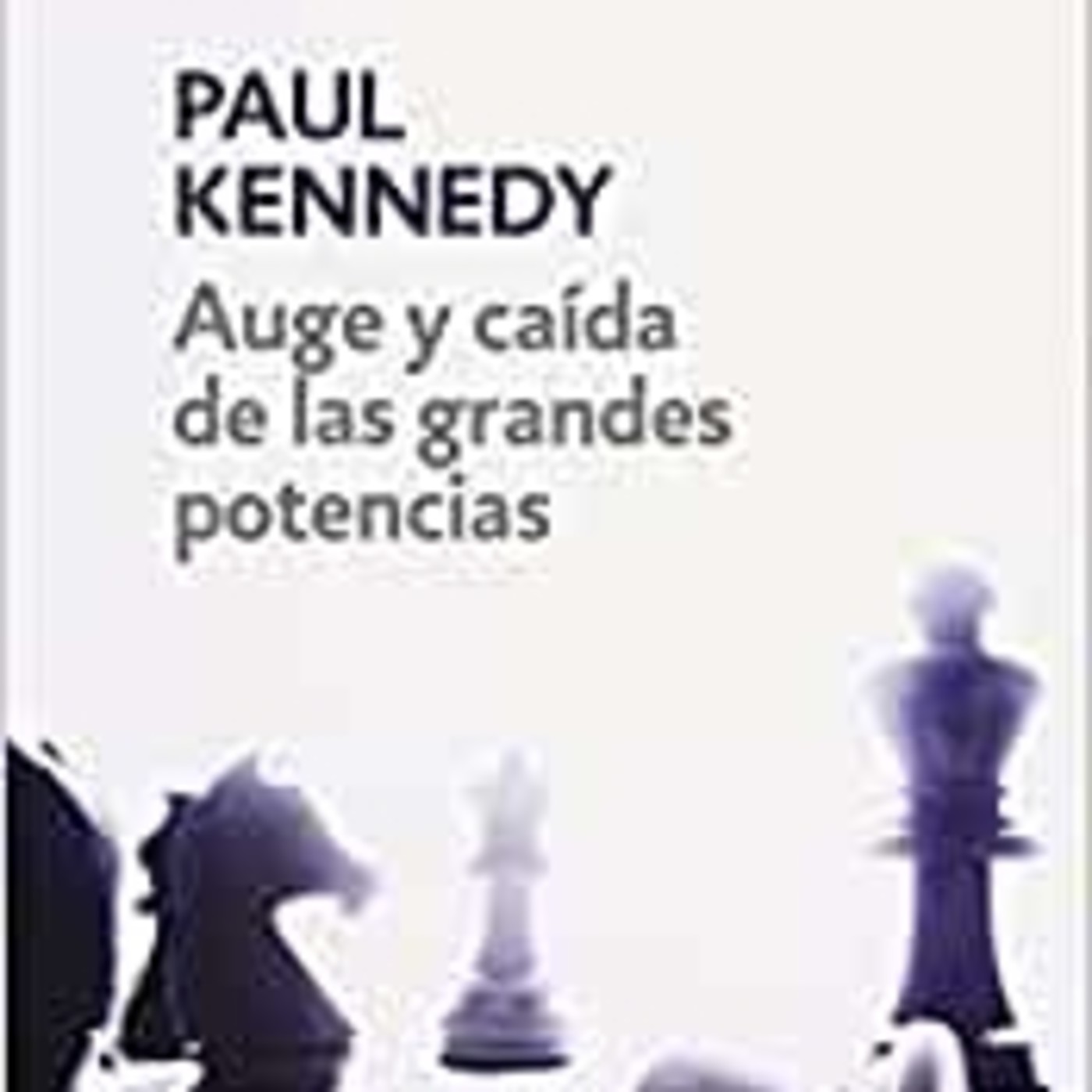 Paul KennedyAuge y caída de las grandes potencias 7ºy cualquiera otros elementos presuntamente no teutónicos; un pueblo entregado en mente y alma al apoyo del régimen, que sustituiría a las antiguas lealtades de clase, religión, región y familia; una economía movilizada y controlada con el fin de extender Deutschtum cuándo y dónde decretase el líder que era necesario, y contra las grandes potencias, por muchas que fuesen; una ideología de fuerza y lucha y odio, que se regocijase aplastando a los enemigos y desdeñase toda idea de compromiso. Dado el volumen y la complejidad de la sociedad alemana del...2020-03-052h 29
Paul KennedyAuge y caída de las grandes potencias 7ºy cualquiera otros elementos presuntamente no teutónicos; un pueblo entregado en mente y alma al apoyo del régimen, que sustituiría a las antiguas lealtades de clase, religión, región y familia; una economía movilizada y controlada con el fin de extender Deutschtum cuándo y dónde decretase el líder que era necesario, y contra las grandes potencias, por muchas que fuesen; una ideología de fuerza y lucha y odio, que se regocijase aplastando a los enemigos y desdeñase toda idea de compromiso. Dado el volumen y la complejidad de la sociedad alemana del...2020-03-052h 29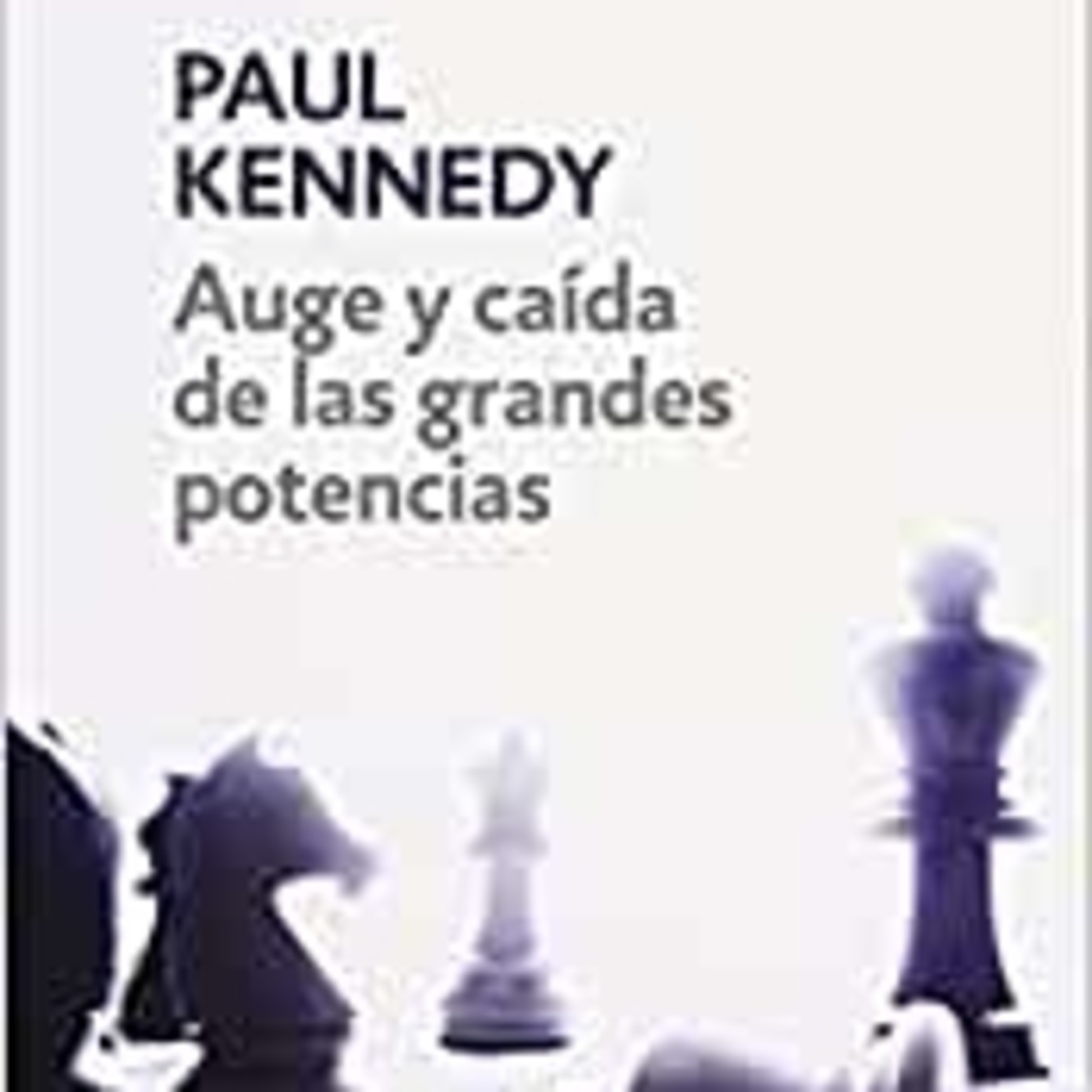 Paul KennedyAuge y caída de las grandes potencias 6ºel choque anglofrancés en Fashoda, 1898, la Guerra de los Bóers o la lucha por concesiones en China. Sin embargo, en un plazo ligeramente largo, estas rivalidades imperiales afectarían las relaciones entre las grandes potencias, incluso en su contexto europeo. Al empezar el siglo, las presiones sobre el Imperio británico eran tales que algunos círculos afines al secretario colonial Joseph Chamberlain pidieron el fin del «espléndido aislamiento» y una alianza con Berlín, mientras que ministros tales como Balfour y Landsdowne empezaban a aceptar la necesidad de compromisos diplomáticos. Toda una serie de concesiones a los Esta...2020-03-052h 26
Paul KennedyAuge y caída de las grandes potencias 6ºel choque anglofrancés en Fashoda, 1898, la Guerra de los Bóers o la lucha por concesiones en China. Sin embargo, en un plazo ligeramente largo, estas rivalidades imperiales afectarían las relaciones entre las grandes potencias, incluso en su contexto europeo. Al empezar el siglo, las presiones sobre el Imperio británico eran tales que algunos círculos afines al secretario colonial Joseph Chamberlain pidieron el fin del «espléndido aislamiento» y una alianza con Berlín, mientras que ministros tales como Balfour y Landsdowne empezaban a aceptar la necesidad de compromisos diplomáticos. Toda una serie de concesiones a los Esta...2020-03-052h 26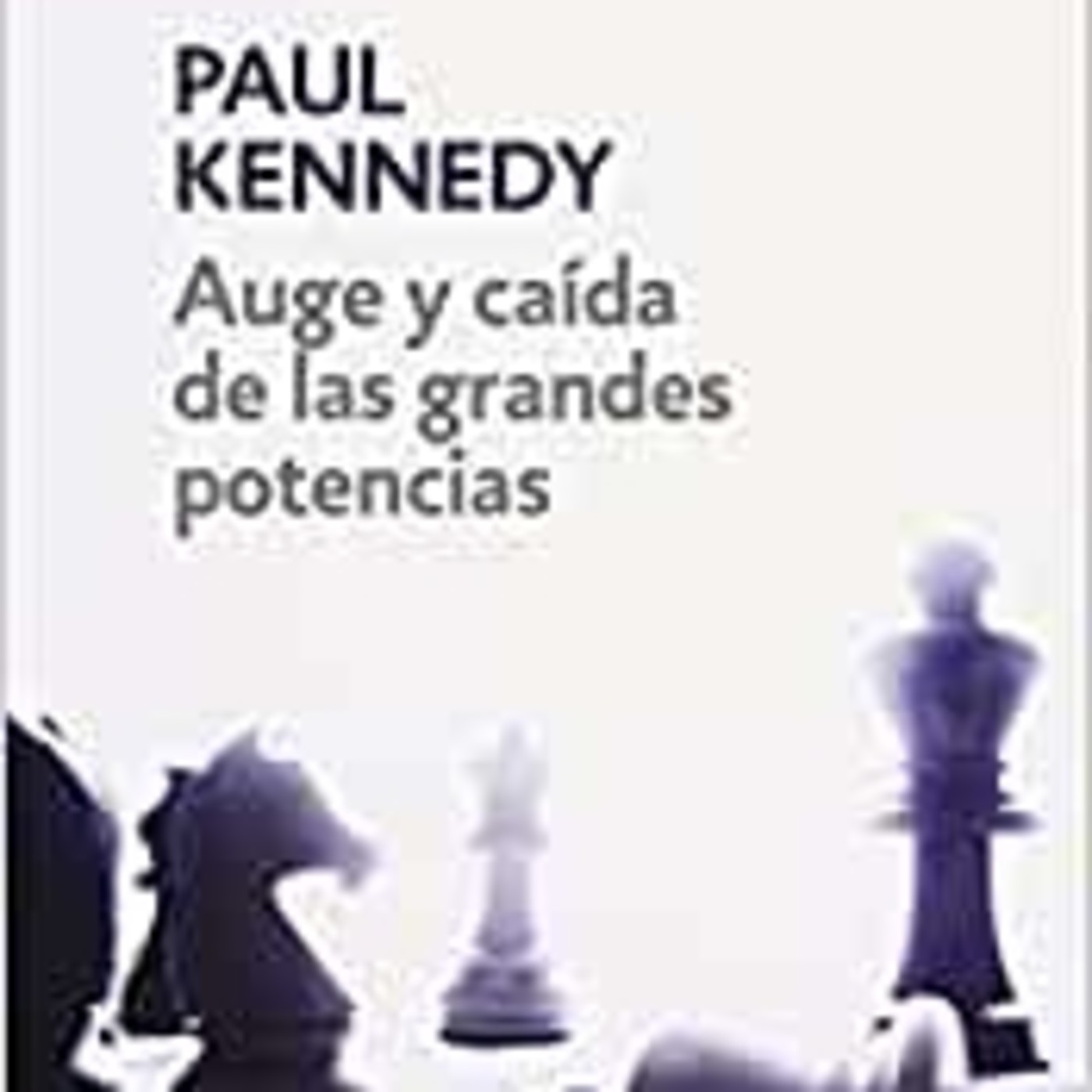 Paul KennedyAuge y caída de las grandes potencias 5ºIncluso al principio de este período, la distancia entre la más fuerte y la más débil de las grandes potencias es considerable, tanto en términos absolutos como en términos relativos; en vísperas de la Segunda Guerra Mundial, todavía persisten enormes diferencias. El proceso de modernización puede traer consigo que todos estos países pasen por las mismas «fases» ; pero esto no significa que, en términos de poder, salga cada uno beneficiado en el mismo grado. Las importantes diferencias entre las grandes potencias se ponen de manifiesto aún más claramente cuan...2020-03-052h 27
Paul KennedyAuge y caída de las grandes potencias 5ºIncluso al principio de este período, la distancia entre la más fuerte y la más débil de las grandes potencias es considerable, tanto en términos absolutos como en términos relativos; en vísperas de la Segunda Guerra Mundial, todavía persisten enormes diferencias. El proceso de modernización puede traer consigo que todos estos países pasen por las mismas «fases» ; pero esto no significa que, en términos de poder, salga cada uno beneficiado en el mismo grado. Las importantes diferencias entre las grandes potencias se ponen de manifiesto aún más claramente cuan...2020-03-052h 27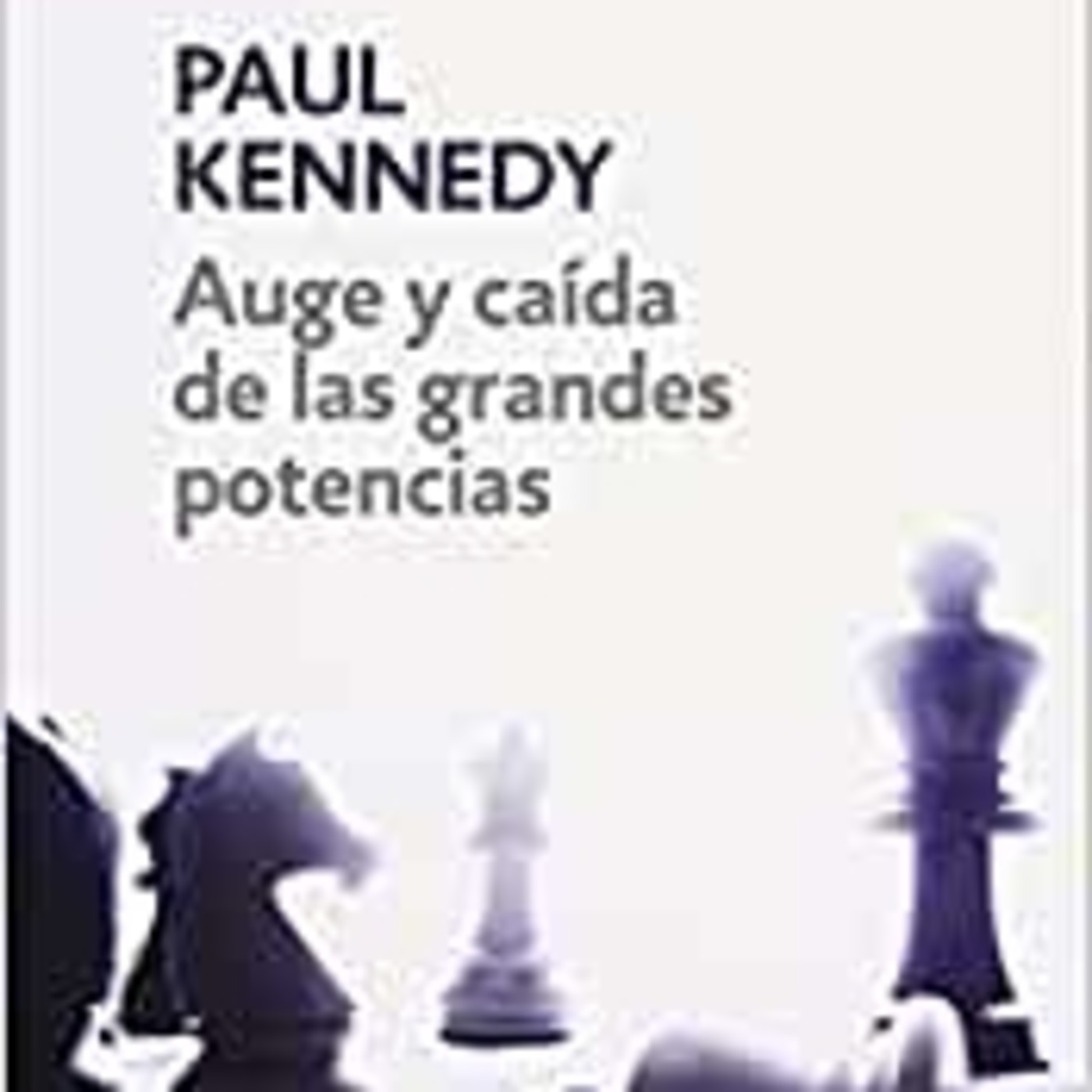 Paul KennedyAuge y caída de las grandes potencias 4ºla participación de ambas en el conjunto de la producción manufacturera mundial simplemente porque la producción de Occidente se elevaba con tanta rapidez, sino que, en algunos casos, su economía decayó de modo absoluto, es decir, aquellos países se desindustrializaron, debido a la penetración en sus mercados tradicionales de los pro ductos mejores y mas baratos procedentes de las fábricas textiles de Lancashire. Después de 1813, cuando terminó el monopolio comercial de la Compañía de las Indias Orientales, las importaciones de tejidos de algodón en la India aumentaron de forma espectacular, de 1 millón d...2020-03-052h 27
Paul KennedyAuge y caída de las grandes potencias 4ºla participación de ambas en el conjunto de la producción manufacturera mundial simplemente porque la producción de Occidente se elevaba con tanta rapidez, sino que, en algunos casos, su economía decayó de modo absoluto, es decir, aquellos países se desindustrializaron, debido a la penetración en sus mercados tradicionales de los pro ductos mejores y mas baratos procedentes de las fábricas textiles de Lancashire. Después de 1813, cuando terminó el monopolio comercial de la Compañía de las Indias Orientales, las importaciones de tejidos de algodón en la India aumentaron de forma espectacular, de 1 millón d...2020-03-052h 27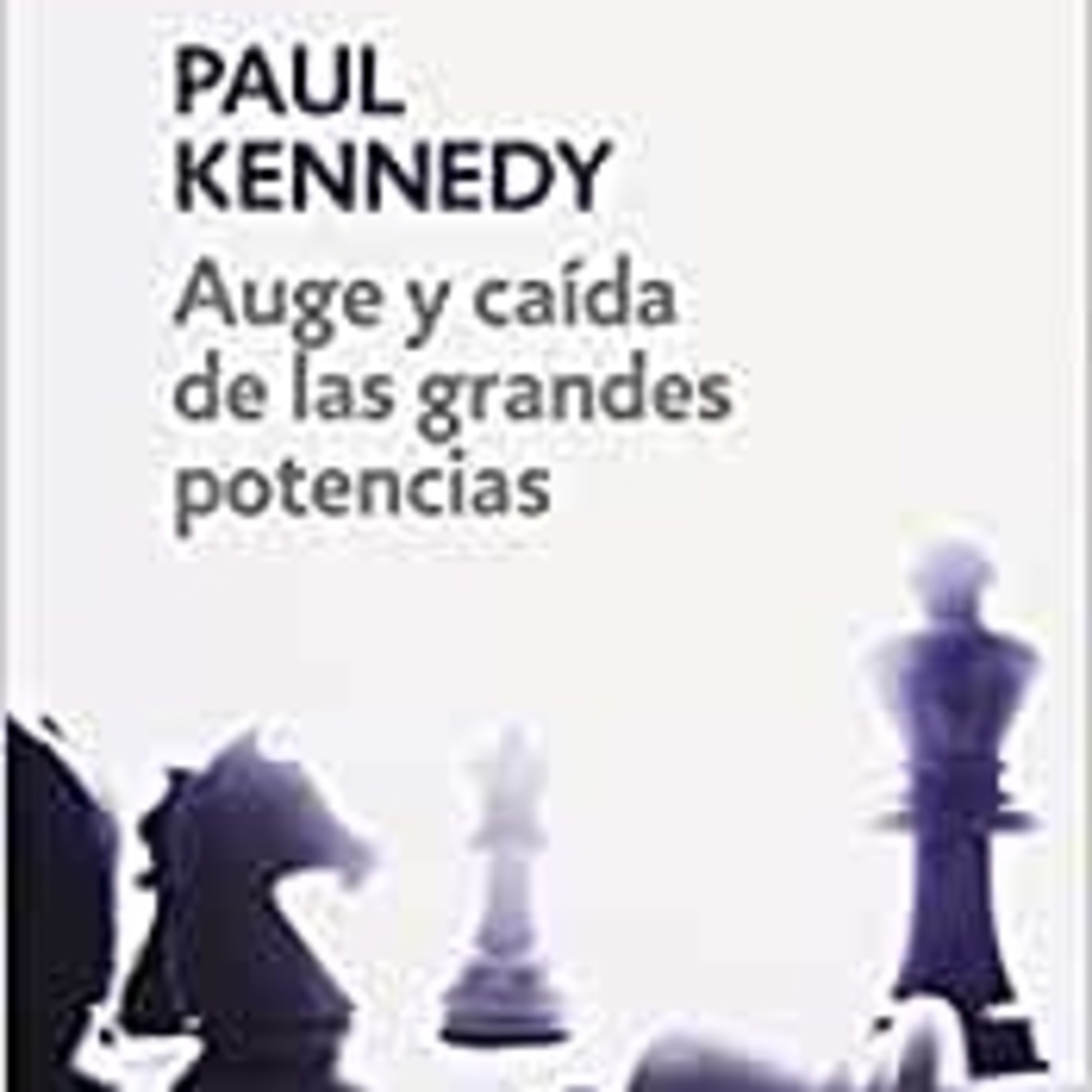 Paul KennedyAuge y caída de las grandes potencias 3ºChina y la India, que no podían ejercerla. Ya a mediados del siglo 18, las colonias norteamericanas ocupaban un lugar significativo en el mapa del comercio marítimo e iniciaban las primeras fases vacilantes de industrialización. Según algunos cálculos, la naciente nación produjo más hierro colado y en lingotes en 1776 que toda Gran Bretaña, y más adelante «los productos manufacturados se multiplicaron por un factor de casi 50, de manera que, en 1830, el país se había convertido en la sexta potencia industrial del mundo desarrollado ».2020-03-052h 28
Paul KennedyAuge y caída de las grandes potencias 3ºChina y la India, que no podían ejercerla. Ya a mediados del siglo 18, las colonias norteamericanas ocupaban un lugar significativo en el mapa del comercio marítimo e iniciaban las primeras fases vacilantes de industrialización. Según algunos cálculos, la naciente nación produjo más hierro colado y en lingotes en 1776 que toda Gran Bretaña, y más adelante «los productos manufacturados se multiplicaron por un factor de casi 50, de manera que, en 1830, el país se había convertido en la sexta potencia industrial del mundo desarrollado ».2020-03-052h 28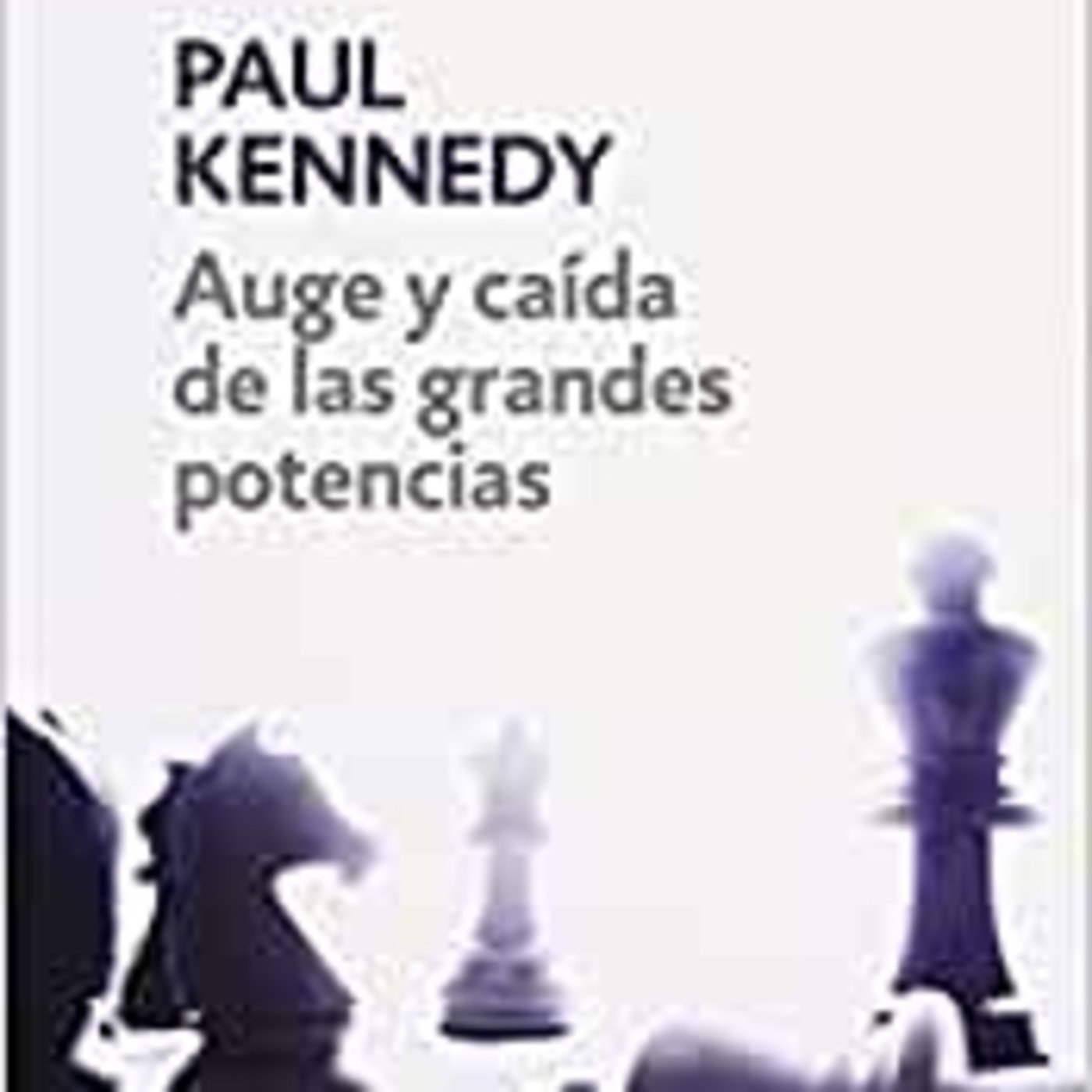 Paul KennedyAuge y caída de las grandes potencias 2ºotomanas, todo esto se vinculó a la nueva tecnología de la construcción de barcos para hacer mayores y mejor armados los navíos. En aquellos días no había una división estricta entre un buque de guerra y un mercante: virtualmente todos los navíos comerciales de buen tamaño podían llevar cañones para alejar piratas y otros predadores. Pero había una propensión a la creación de armadas reales, de modo que el monarca pudiera al menos poseer una cantidad de buques de guerra regulares que formaran el núcleo alrededor del cual pudier...2020-03-052h 27
Paul KennedyAuge y caída de las grandes potencias 2ºotomanas, todo esto se vinculó a la nueva tecnología de la construcción de barcos para hacer mayores y mejor armados los navíos. En aquellos días no había una división estricta entre un buque de guerra y un mercante: virtualmente todos los navíos comerciales de buen tamaño podían llevar cañones para alejar piratas y otros predadores. Pero había una propensión a la creación de armadas reales, de modo que el monarca pudiera al menos poseer una cantidad de buques de guerra regulares que formaran el núcleo alrededor del cual pudier...2020-03-052h 27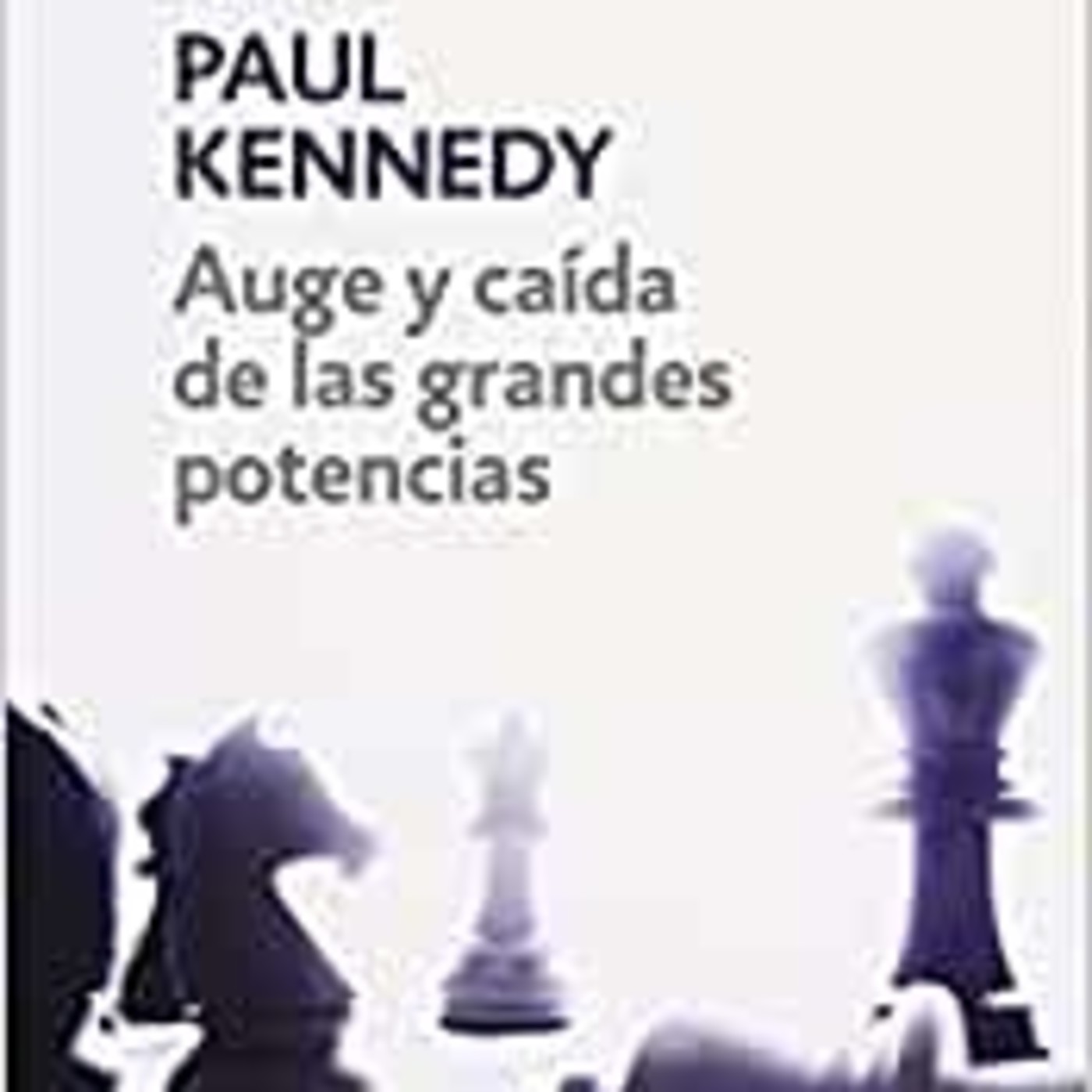 Paul KennedyAuge y caída de las grandes potencias 1ºPAUL KENNEDY. AUGE Y CAÍDA DE LAS GRANDES POTENCIAS. INTRODUCCIÓN. Este libro se ocupa del poder nacional e internacional en el período «moderno», es decir, del posrenacimiento. Procura rastrear y explicar cómo han ascendido y caído las diversas grandes potencias, interrelacionadas, durante los cinco siglos que van desde la formación de las «nuevas monarquías» de Europa occidental hasta el inicio del sistema de Estados global y transoceánico. Inevitablemente, se ocupa mucho de las guerras, sobre todo de aquellos conflictos mayores librados por coaliciones de grandes potencias que tuvieron tanta influencia en el orden intern...2020-03-042h 25
Paul KennedyAuge y caída de las grandes potencias 1ºPAUL KENNEDY. AUGE Y CAÍDA DE LAS GRANDES POTENCIAS. INTRODUCCIÓN. Este libro se ocupa del poder nacional e internacional en el período «moderno», es decir, del posrenacimiento. Procura rastrear y explicar cómo han ascendido y caído las diversas grandes potencias, interrelacionadas, durante los cinco siglos que van desde la formación de las «nuevas monarquías» de Europa occidental hasta el inicio del sistema de Estados global y transoceánico. Inevitablemente, se ocupa mucho de las guerras, sobre todo de aquellos conflictos mayores librados por coaliciones de grandes potencias que tuvieron tanta influencia en el orden intern...2020-03-042h 25 Dark Green AnarchyDark Green Anarchy 6Memorial for Aragorn. Talk shit about Kevin Tucker, John Zerzan, and some others. Discuss Andrew Culp and his projects.2020-02-2359 min
Dark Green AnarchyDark Green Anarchy 6Memorial for Aragorn. Talk shit about Kevin Tucker, John Zerzan, and some others. Discuss Andrew Culp and his projects.2020-02-2359 min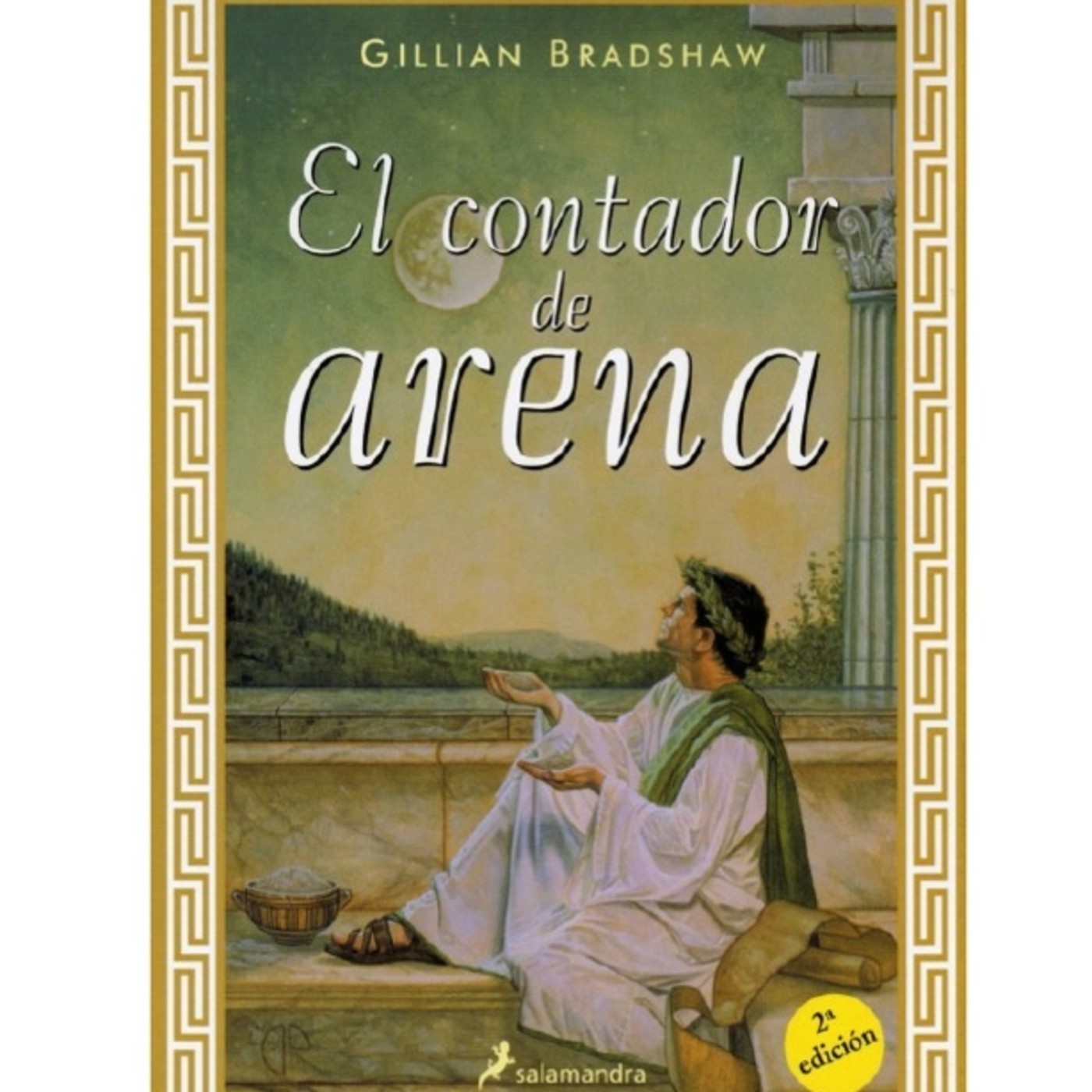 ArquímedesEl contador de arena 8ºArata también quería llorar, pero se reprimió y se limitó a observar la vieja casa con una tristeza persistente. Había sido muy feliz allí, aunque sabía que acabarían mudándose. Lo tuvo claro desde el instante en que comprendió que el talento de su hijo era algo por lo competían incluso reyes. Se había resignado al traslado, dispuesta a aceptar una nueva forma de vida. La perspectiva de tener una nuera real le resultaba alarmante, pero su hijo se mostraba tan feliz con la boda que
estaba segura de que la muchacha sería de su agrad...2020-02-111h 24
ArquímedesEl contador de arena 8ºArata también quería llorar, pero se reprimió y se limitó a observar la vieja casa con una tristeza persistente. Había sido muy feliz allí, aunque sabía que acabarían mudándose. Lo tuvo claro desde el instante en que comprendió que el talento de su hijo era algo por lo competían incluso reyes. Se había resignado al traslado, dispuesta a aceptar una nueva forma de vida. La perspectiva de tener una nuera real le resultaba alarmante, pero su hijo se mostraba tan feliz con la boda que
estaba segura de que la muchacha sería de su agrad...2020-02-111h 24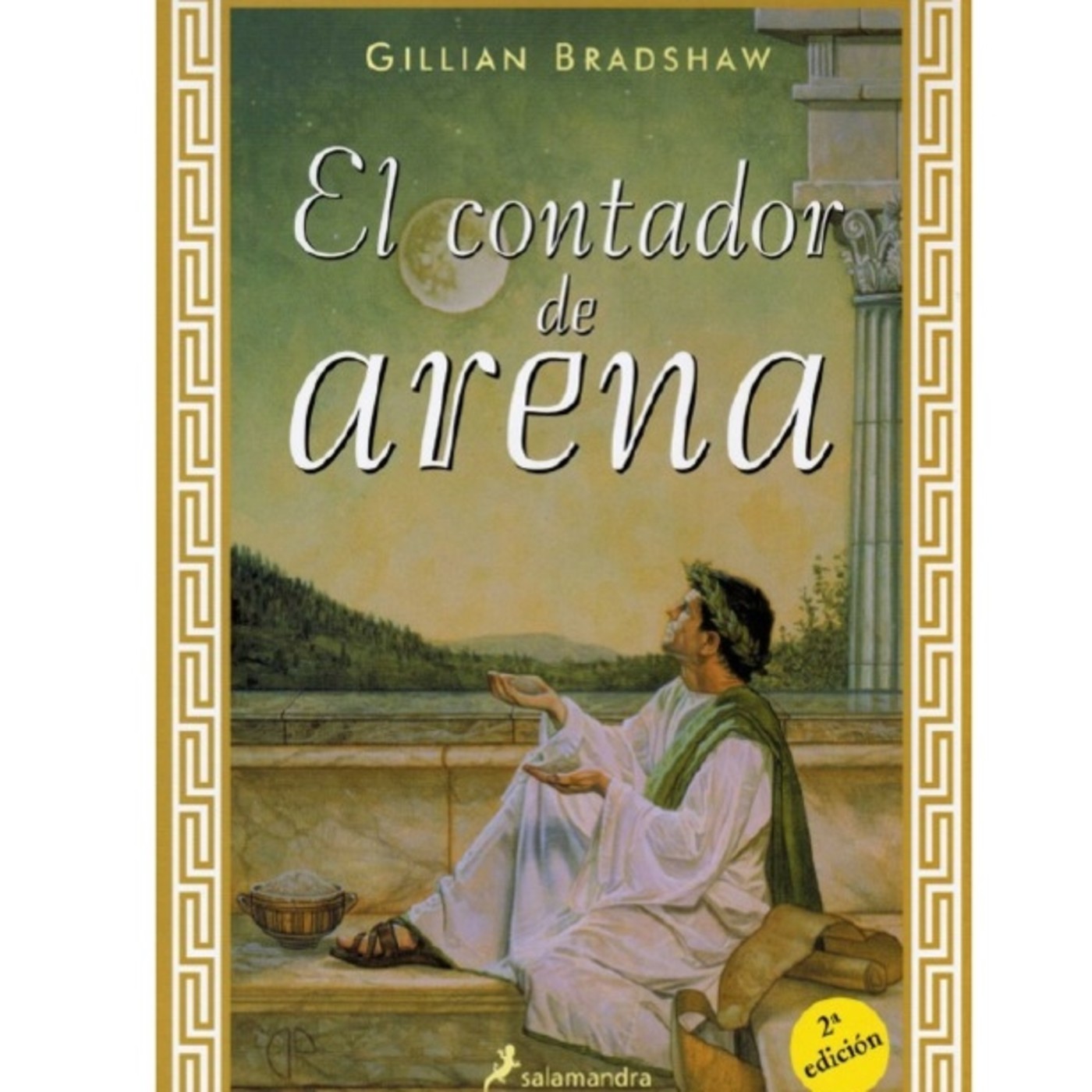 ArquímedesEl contador de arena 7ºDionisio se encogió de hombros.
Vos, yo, los guardias y vuestro médico. Ignoro si ha habido alguien más. Como sabéis, hasta que mis hombres y yo nos hicimos responsables de los presos, éstos estuvieron al cargo de la guarnición del Hexapilón. Sin embargo, dudo que el capitán Lisias se haya relajado. Pero hay una cosa...Sacó de su bolso un pedazo de tela anudado y lo depositó sobre la mesa; al abrirlo, apareció una moneda de plata. Uno de los guardias dice que el prisionero Valerio le dio esto ayer para que le comprara aceite. El...2020-02-111h 28
ArquímedesEl contador de arena 7ºDionisio se encogió de hombros.
Vos, yo, los guardias y vuestro médico. Ignoro si ha habido alguien más. Como sabéis, hasta que mis hombres y yo nos hicimos responsables de los presos, éstos estuvieron al cargo de la guarnición del Hexapilón. Sin embargo, dudo que el capitán Lisias se haya relajado. Pero hay una cosa...Sacó de su bolso un pedazo de tela anudado y lo depositó sobre la mesa; al abrirlo, apareció una moneda de plata. Uno de los guardias dice que el prisionero Valerio le dio esto ayer para que le comprara aceite. El...2020-02-111h 28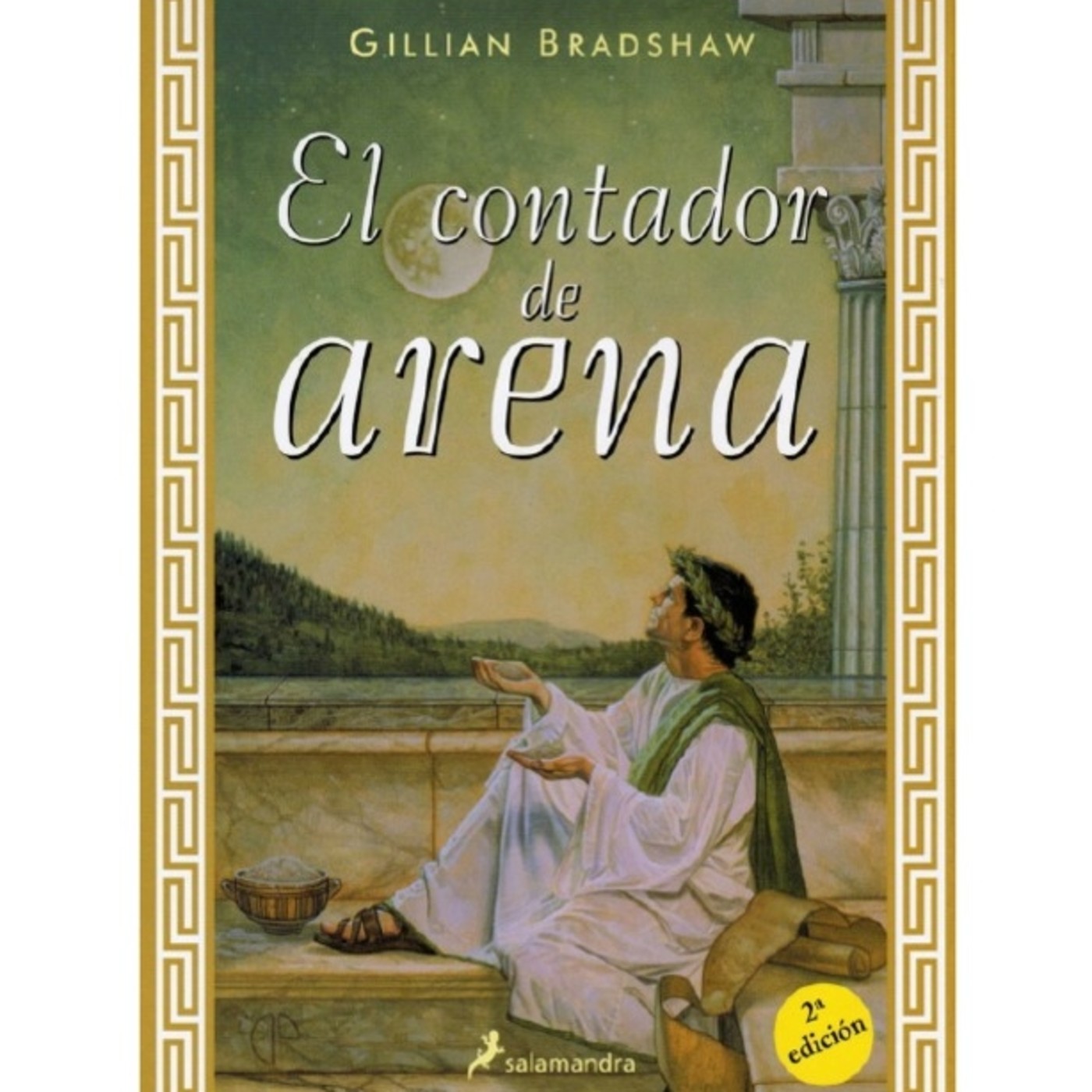 ArquímedesEl contador de arena 6ºÉl intentó no pensar en ella tal como la había visto la última vez, sonrojada como consecuencia de los besos y de haber estado tocando la flauta, riendo mientras se despojaba de la cinta para las mejillas. La joven lo había alertado sobre las posibles intenciones de su hermano, pero luego había rectificado: ¿quién sabía hasta qué punto podía confiar en ella? A su lado, la reina parecía mirarlo casi con tanta censura como el mayordomo.
¡Salud!, dijo el rey, sonriendo. ¿Quieres sentarte y tomar una copa de vino?
Arquímedes se acercó al diván más pró...2020-02-111h 21
ArquímedesEl contador de arena 6ºÉl intentó no pensar en ella tal como la había visto la última vez, sonrojada como consecuencia de los besos y de haber estado tocando la flauta, riendo mientras se despojaba de la cinta para las mejillas. La joven lo había alertado sobre las posibles intenciones de su hermano, pero luego había rectificado: ¿quién sabía hasta qué punto podía confiar en ella? A su lado, la reina parecía mirarlo casi con tanta censura como el mayordomo.
¡Salud!, dijo el rey, sonriendo. ¿Quieres sentarte y tomar una copa de vino?
Arquímedes se acercó al diván más pró...2020-02-111h 21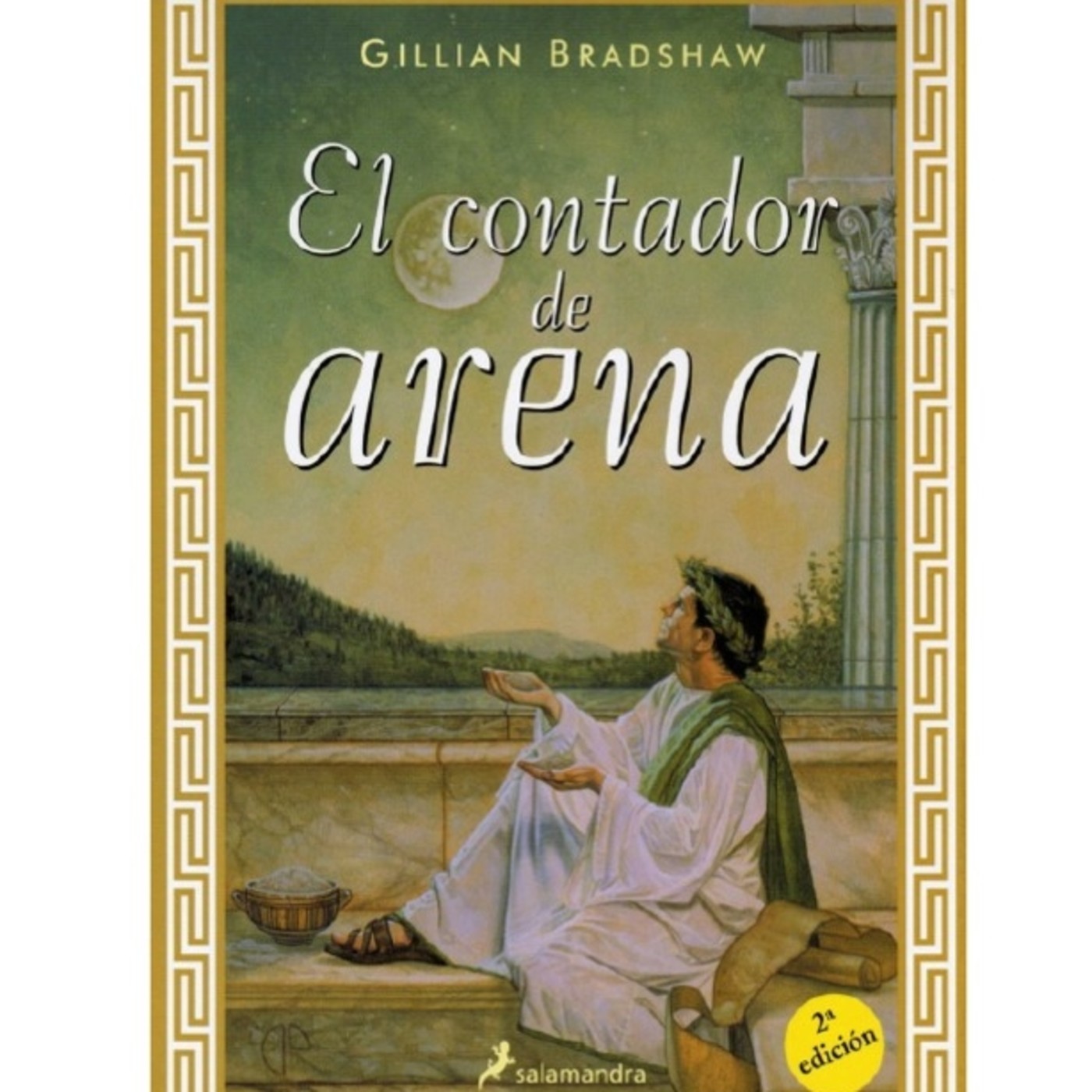 ArquímedesEl contador de arena 5ºPero el valor de esa fracción era imposible de calcular. Menor que un séptimo. Cuando se intentaba precisarla más, se escapaba, infinitamente extensible, infinitamente variable. Como el alma. Como al alma, la razón no podía abarcarla.
Ese pensamiento lo reconfortó. Inscribió un cuadrado en el círculo, luego un octógono, y comenzó a calcular.
Cuando Arata llegó, cerca de tres horas después, encontró a su hijo acurrucado sobre el ábaco, mordisqueando el extremo del compás. En la arena había dibujado un polígono de múltiples facetas, inscrito dentro de un círculo y rellenad...2020-02-111h 23
ArquímedesEl contador de arena 5ºPero el valor de esa fracción era imposible de calcular. Menor que un séptimo. Cuando se intentaba precisarla más, se escapaba, infinitamente extensible, infinitamente variable. Como el alma. Como al alma, la razón no podía abarcarla.
Ese pensamiento lo reconfortó. Inscribió un cuadrado en el círculo, luego un octógono, y comenzó a calcular.
Cuando Arata llegó, cerca de tres horas después, encontró a su hijo acurrucado sobre el ábaco, mordisqueando el extremo del compás. En la arena había dibujado un polígono de múltiples facetas, inscrito dentro de un círculo y rellenad...2020-02-111h 23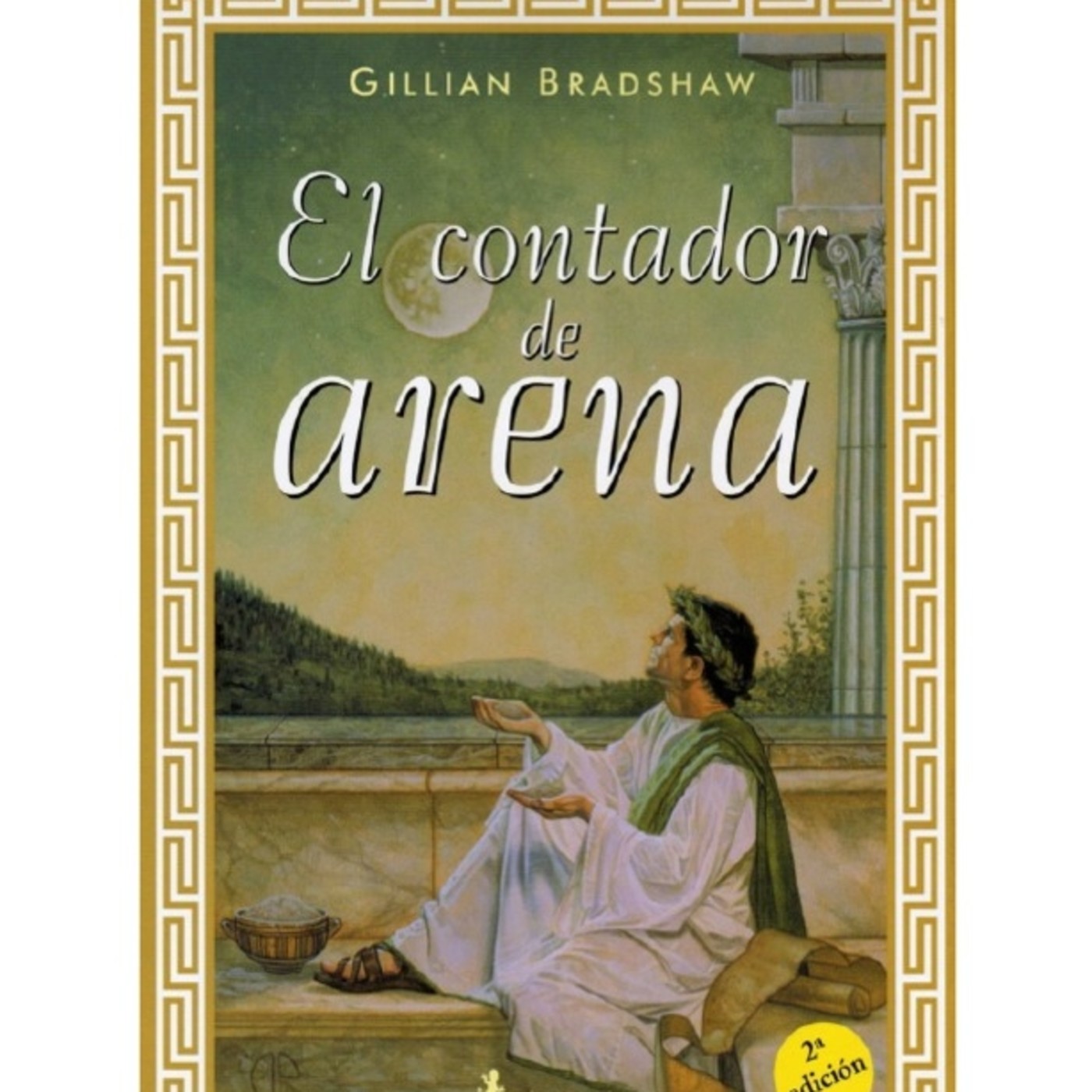 ArquímedesEl contador de arena 4ºHierón estaba radiante.
¿Tú crees que es imposible?, le preguntó a su ingeniero jefe.
Calipo miró a Arquímedes y luego al rey, y asintió.
Hierón se volvió hacia Arquímedes.
¿Y tú sostienes que podrías hacerlo?
Sí, respondió sin pensarlo. Con la cuerda suficiente.
Entonces hazlo,le ordenó el rey. Quiero verlo. Hazme una demostración de mecánica teórica. Te autorizo para que utilices cualquier barco, los talleres reales que desees y toda la cuerda que necesites.2020-02-111h 26
ArquímedesEl contador de arena 4ºHierón estaba radiante.
¿Tú crees que es imposible?, le preguntó a su ingeniero jefe.
Calipo miró a Arquímedes y luego al rey, y asintió.
Hierón se volvió hacia Arquímedes.
¿Y tú sostienes que podrías hacerlo?
Sí, respondió sin pensarlo. Con la cuerda suficiente.
Entonces hazlo,le ordenó el rey. Quiero verlo. Hazme una demostración de mecánica teórica. Te autorizo para que utilices cualquier barco, los talleres reales que desees y toda la cuerda que necesites.2020-02-111h 26 ArquímedesEl contador de arena 3ºEra tan esclavo como el resto de los obreros, pero era un hombre valioso, experimentado y de confianza, y su palabra tenía cierto peso en la casa del rey.
Eudaimon lo observó, alarmado, y ordenó:
¡Detente!
Epimeles se volvió y lo miró, sin alterarse.
Señor,dijo, tanto vos como... este señor estáis autorizados a usar el taller. Si vos decís que Elimo debe ser castigado y él dice que no, seguramente habrá de ser nuestro amo quien decida a cuál de los dos tenemos que obedecer.
¡Aquí soy yo quien manda!,vociferó Eudaimon.
En ese caso, el reg...2020-02-111h 27
ArquímedesEl contador de arena 3ºEra tan esclavo como el resto de los obreros, pero era un hombre valioso, experimentado y de confianza, y su palabra tenía cierto peso en la casa del rey.
Eudaimon lo observó, alarmado, y ordenó:
¡Detente!
Epimeles se volvió y lo miró, sin alterarse.
Señor,dijo, tanto vos como... este señor estáis autorizados a usar el taller. Si vos decís que Elimo debe ser castigado y él dice que no, seguramente habrá de ser nuestro amo quien decida a cuál de los dos tenemos que obedecer.
¡Aquí soy yo quien manda!,vociferó Eudaimon.
En ese caso, el reg...2020-02-111h 27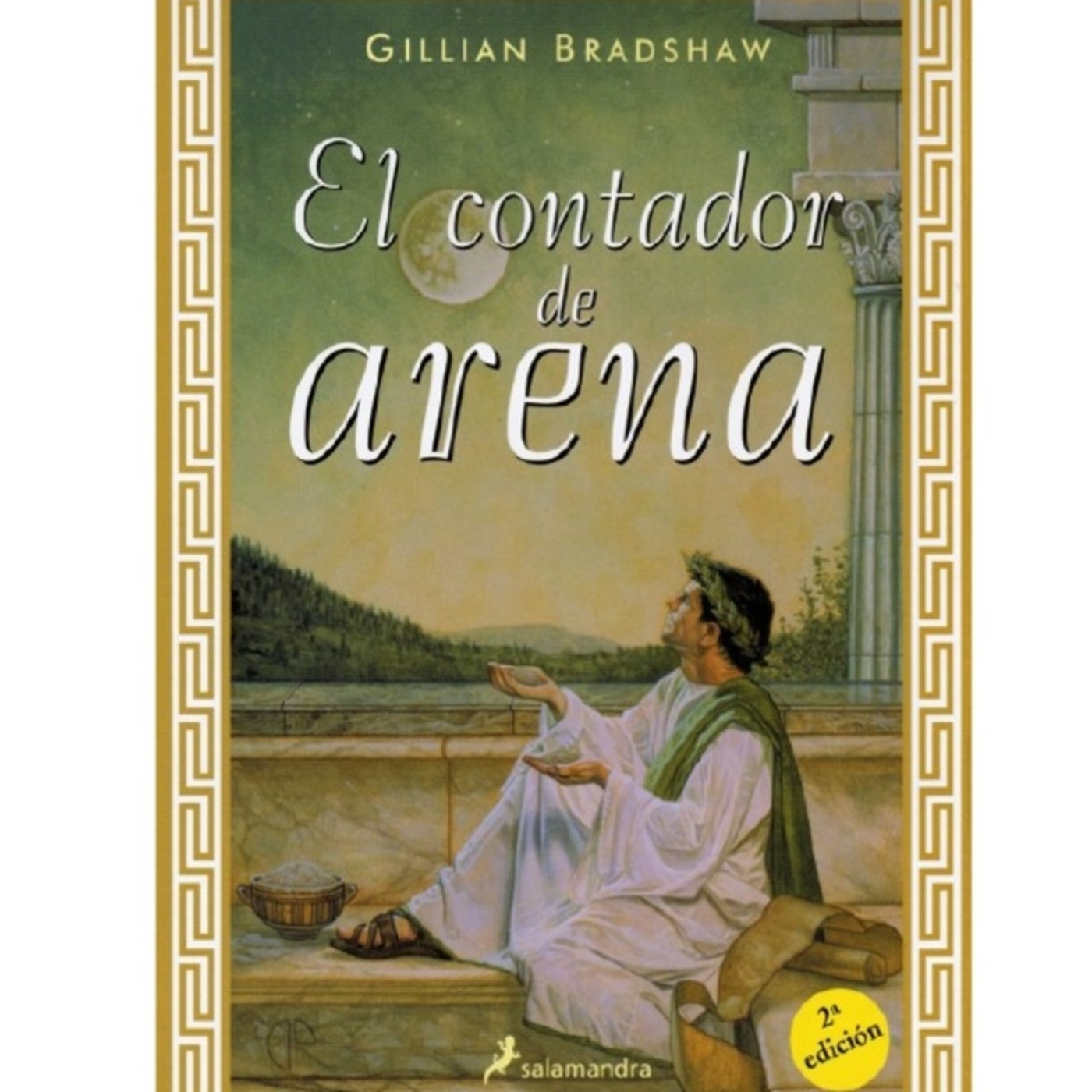 ArquímedesEl contador de arena 2ºArquímedes pestañeó y dio mentalmente las gracias a su madre por haberle insistido en que llevara el manto.
¡Es... estupendo!, balbuceó.
El capitán de Straton debía de ser el responsable de la guarnición de Siracusa mientras el resto del ejército estaba fuera. Si quería, aquel hombre podía proporcionarle trabajo.2020-02-111h 26
ArquímedesEl contador de arena 2ºArquímedes pestañeó y dio mentalmente las gracias a su madre por haberle insistido en que llevara el manto.
¡Es... estupendo!, balbuceó.
El capitán de Straton debía de ser el responsable de la guarnición de Siracusa mientras el resto del ejército estaba fuera. Si quería, aquel hombre podía proporcionarle trabajo.2020-02-111h 26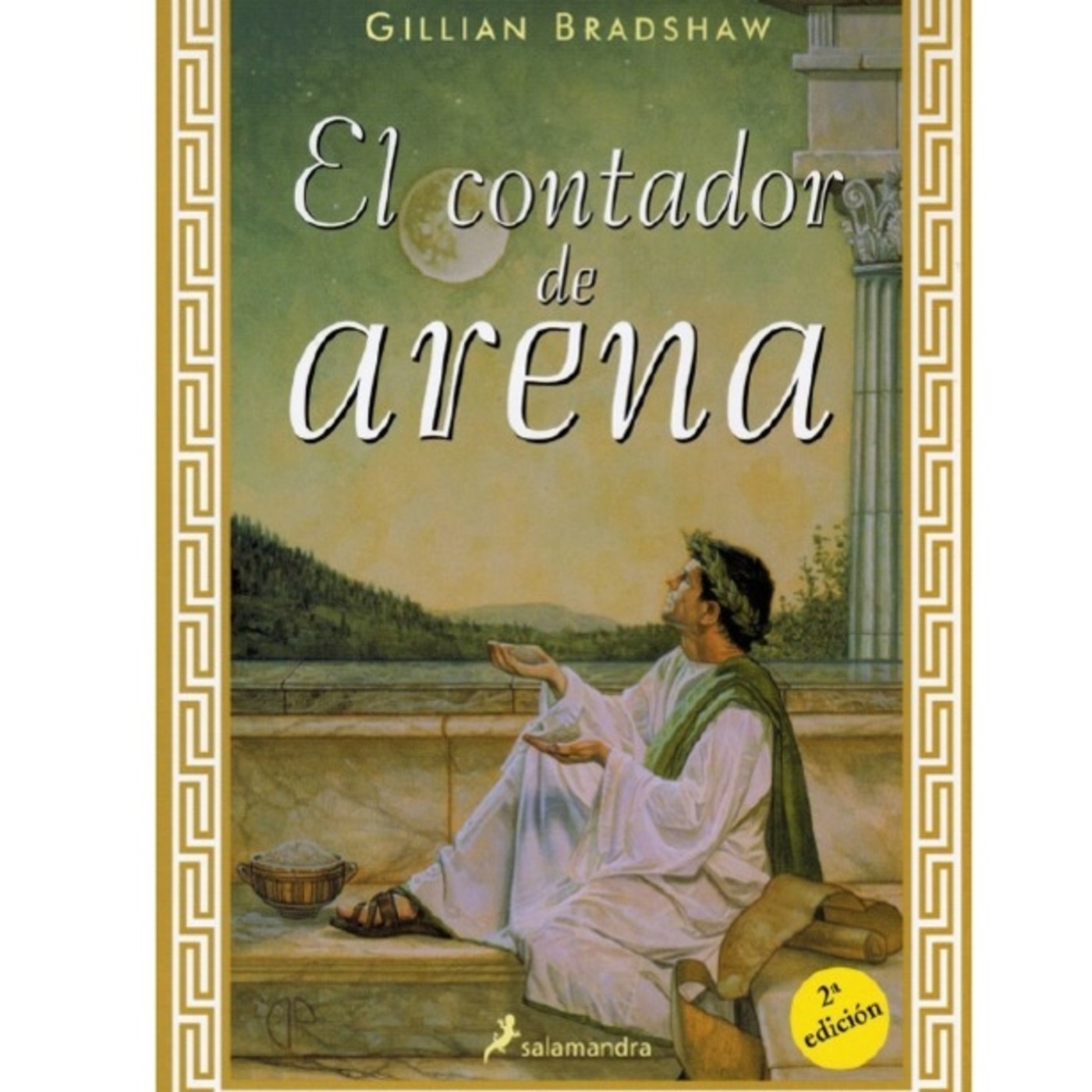 ArquímedesEl contador de arena 1ºAdelantado a su tiempo y conocido universalmente por el célebre principio que lleva su nombre, el griego Arquímedes fue un pionero del actual método científico, además de notable matemático y pensador. Discípulo de Euclides e hijo del astrónomo Fidias, su azarosa vida resulta tan apasionante como formidable el poder de su intelecto. En esta rigurosa novela histórica, Gillian Bradshaw,autora de grandes éxitos como El faro de Alejandría, Púrpura imperial, Teodora, emperatriz de Bizancio y El heredero de Cleopatra, presenta al lector un Arquímedes de carne y hueso, un ser humano...2020-02-111h 39
ArquímedesEl contador de arena 1ºAdelantado a su tiempo y conocido universalmente por el célebre principio que lleva su nombre, el griego Arquímedes fue un pionero del actual método científico, además de notable matemático y pensador. Discípulo de Euclides e hijo del astrónomo Fidias, su azarosa vida resulta tan apasionante como formidable el poder de su intelecto. En esta rigurosa novela histórica, Gillian Bradshaw,autora de grandes éxitos como El faro de Alejandría, Púrpura imperial, Teodora, emperatriz de Bizancio y El heredero de Cleopatra, presenta al lector un Arquímedes de carne y hueso, un ser humano...2020-02-111h 39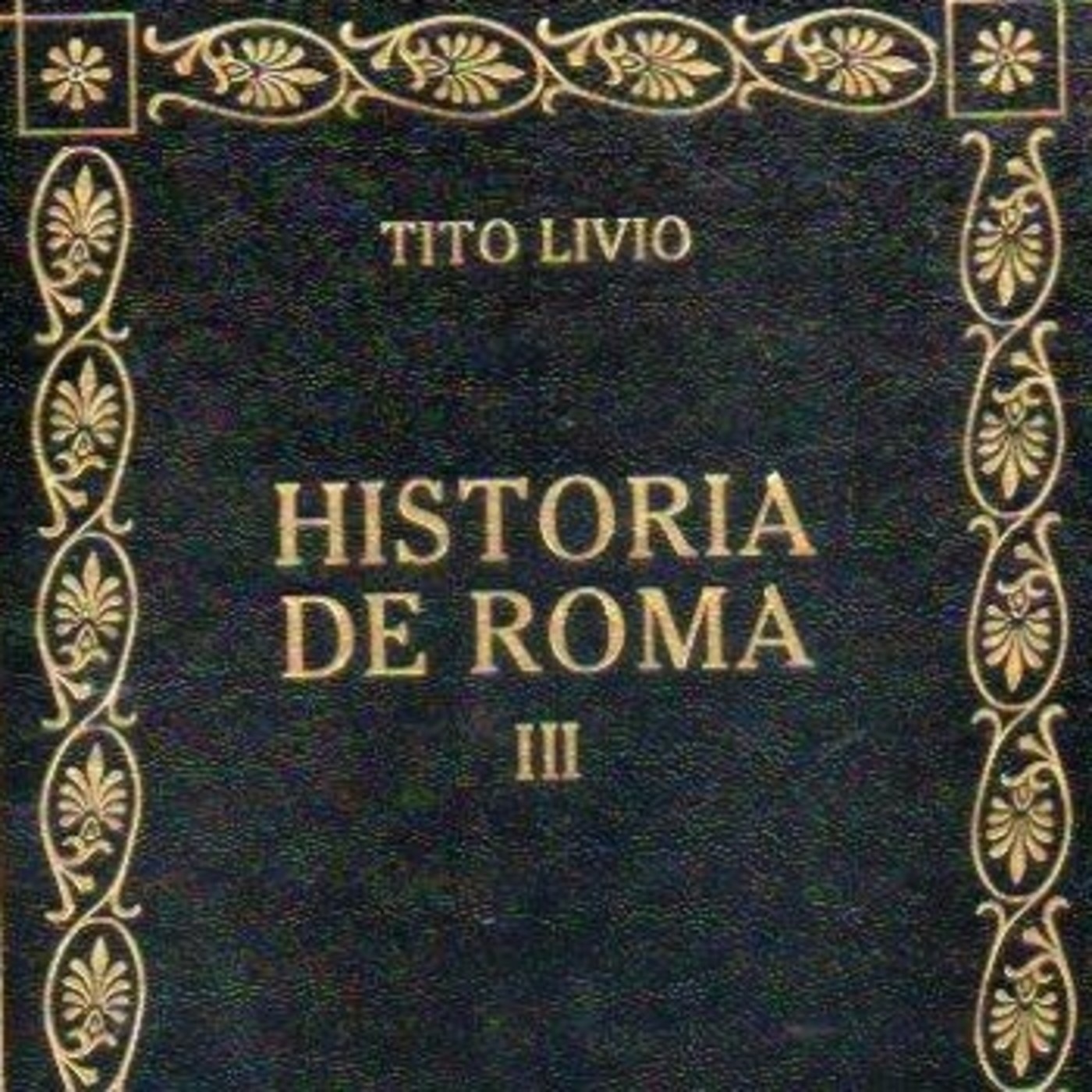 Tito LivioTito Livio - Historia de Roma 8ºPublio Sulpicio Saverrión y Publio Sempronio Sofo fueron los siguientes cónsules, 304 antes de Cristo. Durante su consulado, los samnitas, ansiosos por terminar, o al menos suspender, las hostilidades, enviaron emisarios a Roma para pedir la paz. A pesar de su actitud sumisa, no se encontraron con una acogida muy favorable. Se les contestó en el sentido de que si los samnitas no hubieran hecho a menudo propuestas de paz mientras realmente se preparaban para la guerra, posiblemente se hubieran llevado a cabo las negociaciones; pero habiendo resultado hasta ahora vanas sus palabras, los hechos resolverían la cuestión. Se...2020-02-072h 36
Tito LivioTito Livio - Historia de Roma 8ºPublio Sulpicio Saverrión y Publio Sempronio Sofo fueron los siguientes cónsules, 304 antes de Cristo. Durante su consulado, los samnitas, ansiosos por terminar, o al menos suspender, las hostilidades, enviaron emisarios a Roma para pedir la paz. A pesar de su actitud sumisa, no se encontraron con una acogida muy favorable. Se les contestó en el sentido de que si los samnitas no hubieran hecho a menudo propuestas de paz mientras realmente se preparaban para la guerra, posiblemente se hubieran llevado a cabo las negociaciones; pero habiendo resultado hasta ahora vanas sus palabras, los hechos resolverían la cuestión. Se...2020-02-072h 36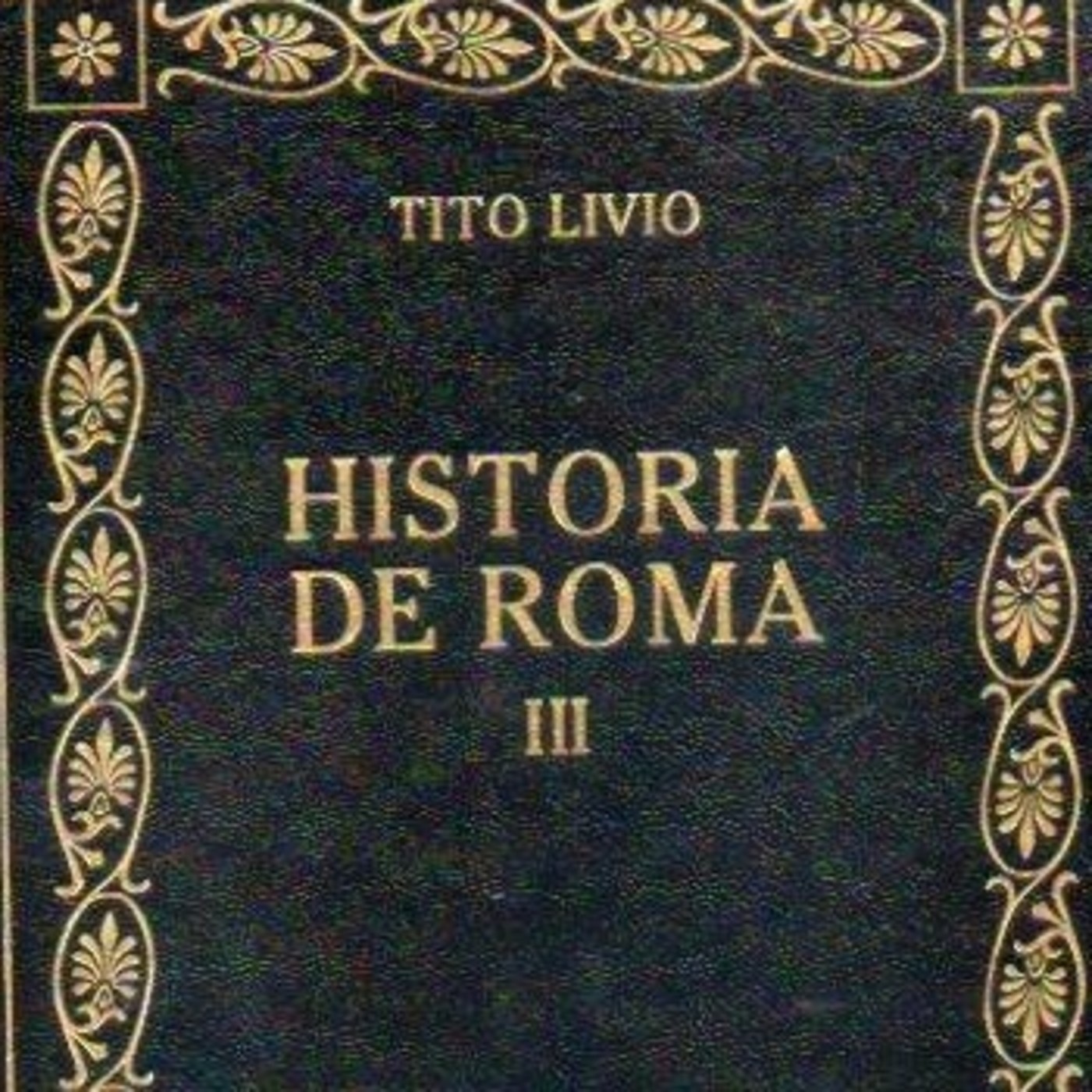 Tito LivioTito Livio - Historia de Roma 7º"También Bruto, arguyó el dictador, el fundador de la libertad romana, hizo esto anteriormente en el caso de sus dos hijos. Ahora los padres, que eran hombres indulgentes y de edad, con facilidad para entrar en asuntos que no les concernían a ellos mismos, iban estropeando a los jóvenes, enseñándoles a despreciar la autoridad y a considerar la disciplina militar como de poca importancia. Declaró su intención de adherirse a su propósito, sin reducir un ápice la pena del hombre que había luchado en desafío a sus órdenes, mientras los auspicios eran dudosos y est...2020-02-072h 45
Tito LivioTito Livio - Historia de Roma 7º"También Bruto, arguyó el dictador, el fundador de la libertad romana, hizo esto anteriormente en el caso de sus dos hijos. Ahora los padres, que eran hombres indulgentes y de edad, con facilidad para entrar en asuntos que no les concernían a ellos mismos, iban estropeando a los jóvenes, enseñándoles a despreciar la autoridad y a considerar la disciplina militar como de poca importancia. Declaró su intención de adherirse a su propósito, sin reducir un ápice la pena del hombre que había luchado en desafío a sus órdenes, mientras los auspicios eran dudosos y est...2020-02-072h 45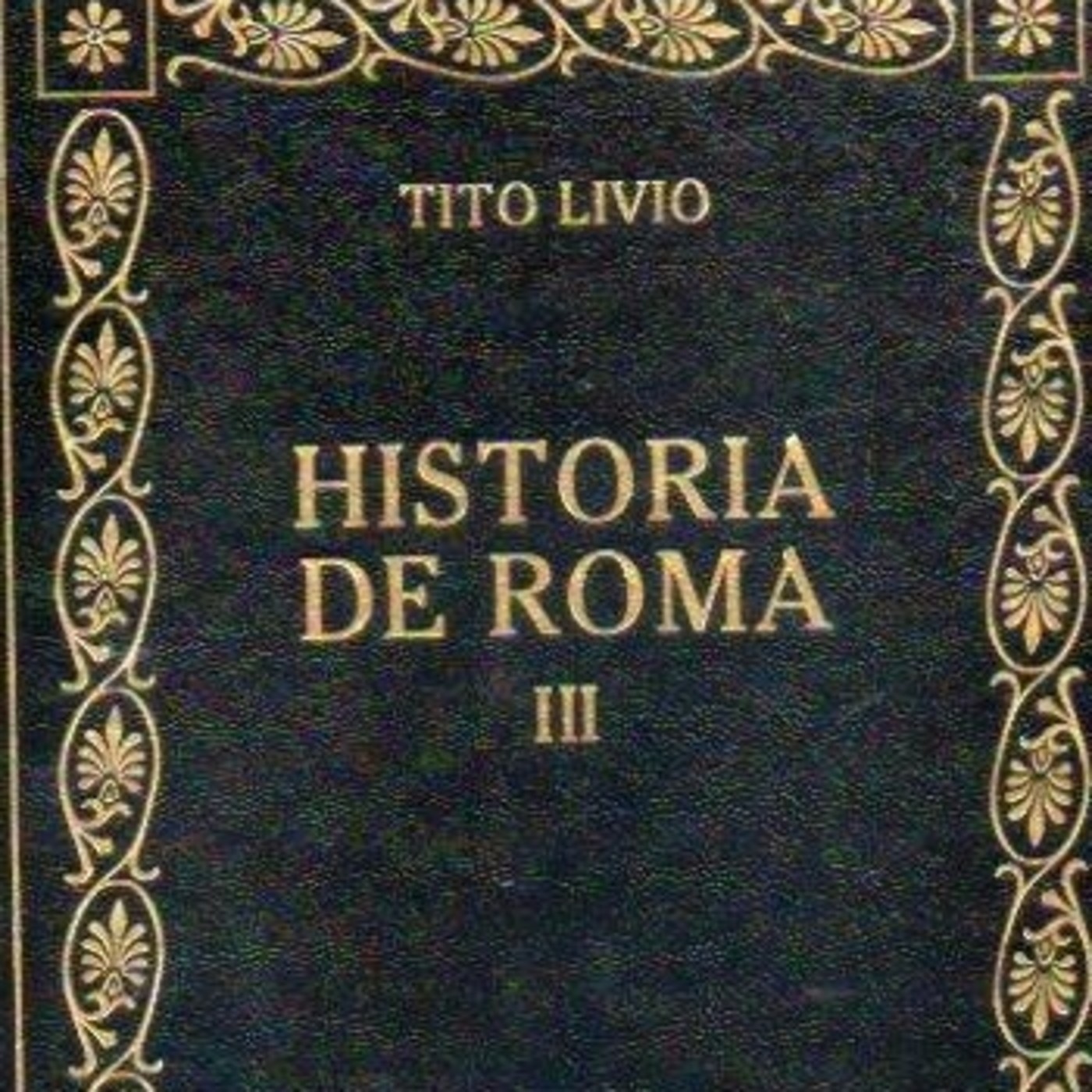 Tito LivioTito Livio - Historia de Roma 6ºEn algunos autores veo que se da a Marco Popilio como cónsul, en vez de Tito Quincio, 354 antes de Cristo. A dos guerras se dio fin victorioso ese año. Los tiburtinos fueron reducidos a la obediencia; se les tomó la ciudad de Sassula y el resto de sus ciudades habría corrido la misma suerte si la nación entera no hubiese rendido sus armas y hecho la paz con el cónsul. Se celebró un triunfo sobre ellos; en otros aspectos, la victoria fue seguida de un tratamiento suave para con los vencidos. Una rigurosa severidad se aplicó...2020-02-073h 02
Tito LivioTito Livio - Historia de Roma 6ºEn algunos autores veo que se da a Marco Popilio como cónsul, en vez de Tito Quincio, 354 antes de Cristo. A dos guerras se dio fin victorioso ese año. Los tiburtinos fueron reducidos a la obediencia; se les tomó la ciudad de Sassula y el resto de sus ciudades habría corrido la misma suerte si la nación entera no hubiese rendido sus armas y hecho la paz con el cónsul. Se celebró un triunfo sobre ellos; en otros aspectos, la victoria fue seguida de un tratamiento suave para con los vencidos. Una rigurosa severidad se aplicó...2020-02-073h 02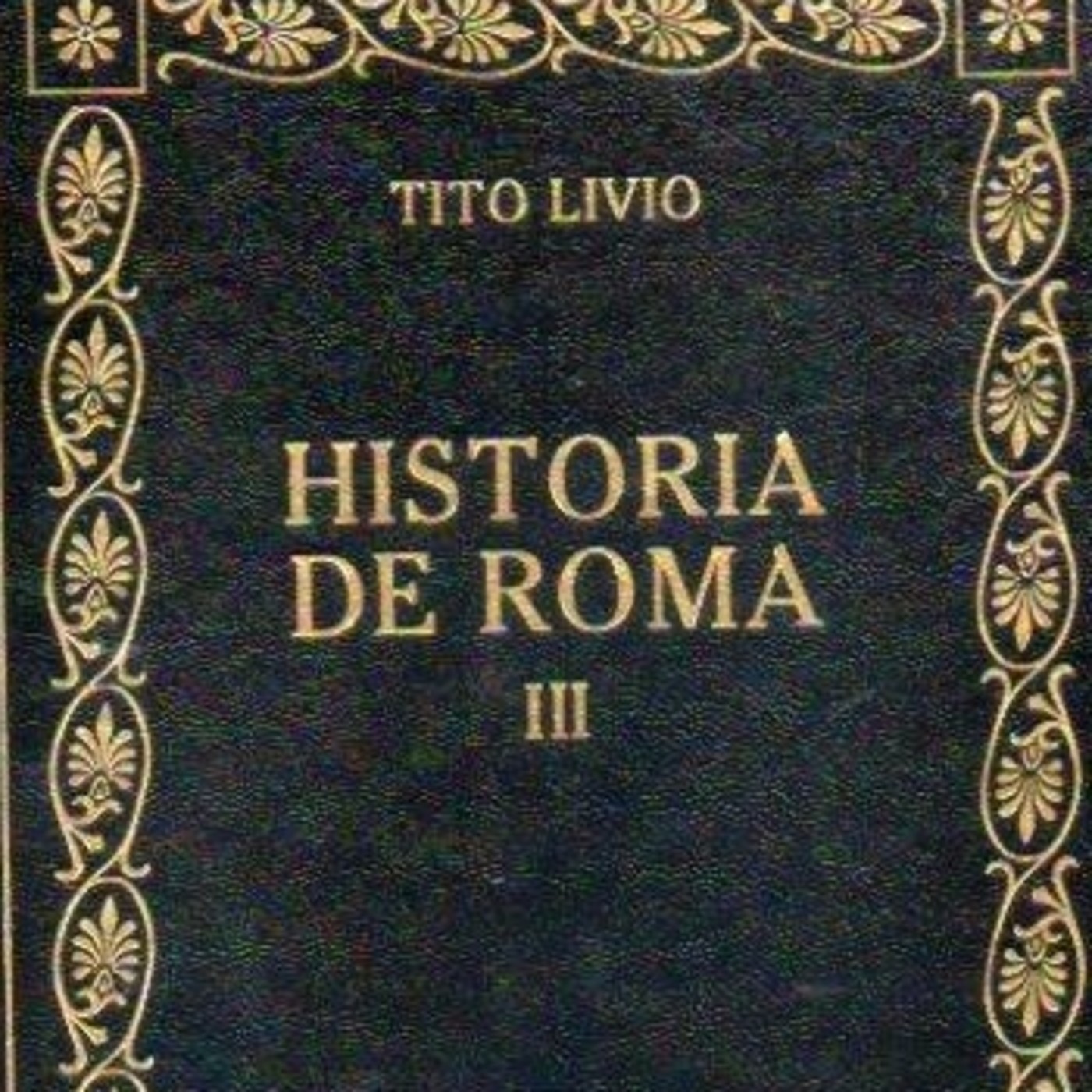 Tito LivioTito Livio - Historia de Roma 5ºCogió sus armas y corrió a dar la alarma al resto; dejándolos atrás, golpeó con el umbo de su escudo a un galo que había conseguido coronar la cumbre y lo derribó. Cayó sobre los que estaban detrás y les estorbó, y Manlio mató a otros que habían dejado a un lado sus armas y se aferraban a las rocas con sus manos. En ese momento ya se le habían unido otros y comenzaron a desalojar al enemigo con una lluvia de piedras y lanzas hasta que todo el grupo cayó sin poder hacer nada hasta el...2020-02-073h 20
Tito LivioTito Livio - Historia de Roma 5ºCogió sus armas y corrió a dar la alarma al resto; dejándolos atrás, golpeó con el umbo de su escudo a un galo que había conseguido coronar la cumbre y lo derribó. Cayó sobre los que estaban detrás y les estorbó, y Manlio mató a otros que habían dejado a un lado sus armas y se aferraban a las rocas con sus manos. En ese momento ya se le habían unido otros y comenzaron a desalojar al enemigo con una lluvia de piedras y lanzas hasta que todo el grupo cayó sin poder hacer nada hasta el...2020-02-073h 20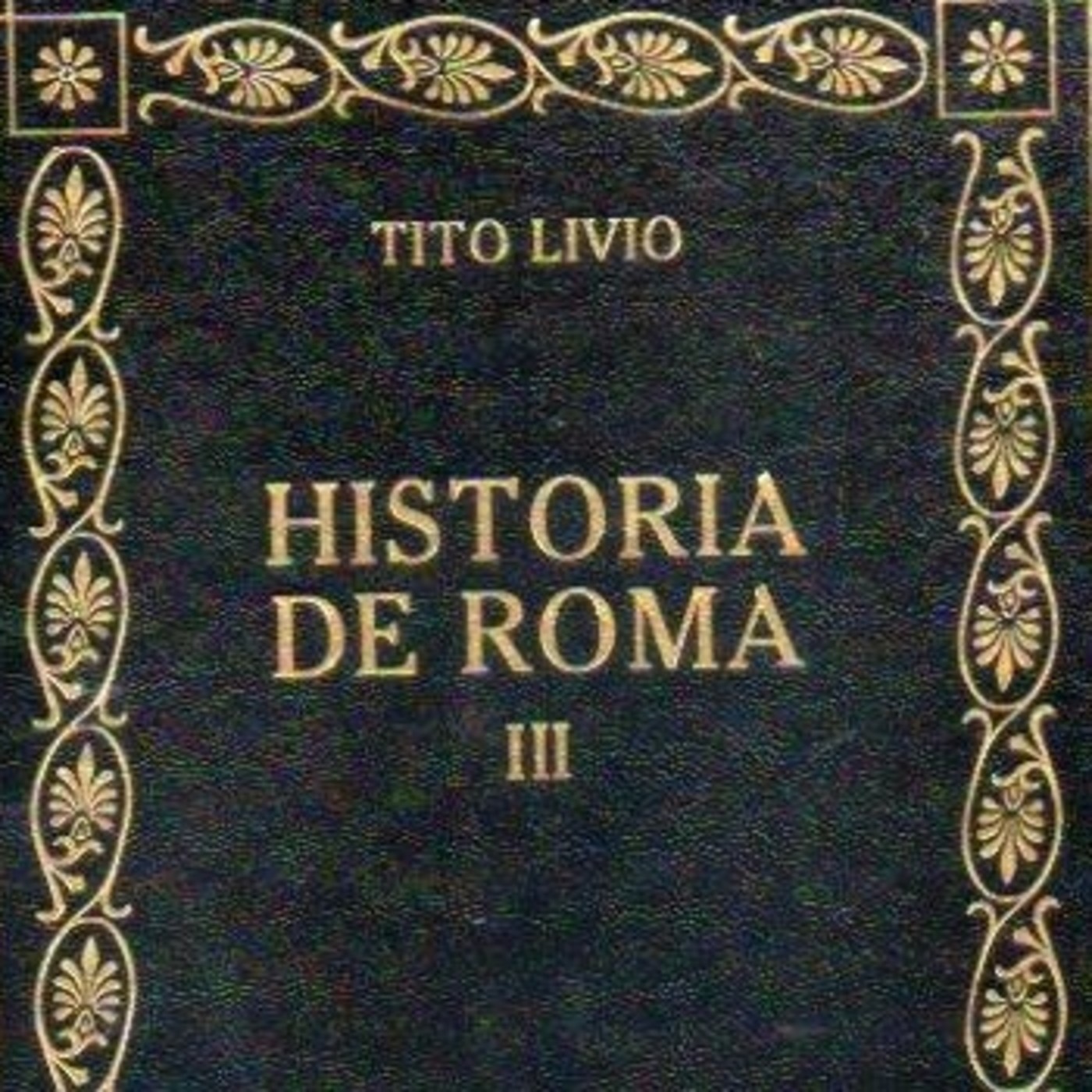 Tito LivioTito Livio - Historia de Roma 4ºLa elección de los tribunos consulares fue la primera en celebrarse. Todos ellos fueron patricios: Lucio Quincio Cincinato, por tercera vez, Lucio Furio Medulino, por segunda, Marco Manlio y Aulo Sempronio Atratino. Éste último llevó a cabo la elección de los cuestores. Entre otros candidatos plebeyos, estaba el hijo de Antistio, tribuno de la plebe, y un hermano de Sexto Pompilio, otro tribuno. Su autoridad e interés no eran, sin embargo, lo bastante fuertes como para impedir que los votantes prefiriesen a aquellos de alta cuna a cuyos padres y abuelos habían visto ocupar la silla consula...2020-02-072h 56
Tito LivioTito Livio - Historia de Roma 4ºLa elección de los tribunos consulares fue la primera en celebrarse. Todos ellos fueron patricios: Lucio Quincio Cincinato, por tercera vez, Lucio Furio Medulino, por segunda, Marco Manlio y Aulo Sempronio Atratino. Éste último llevó a cabo la elección de los cuestores. Entre otros candidatos plebeyos, estaba el hijo de Antistio, tribuno de la plebe, y un hermano de Sexto Pompilio, otro tribuno. Su autoridad e interés no eran, sin embargo, lo bastante fuertes como para impedir que los votantes prefiriesen a aquellos de alta cuna a cuyos padres y abuelos habían visto ocupar la silla consula...2020-02-072h 56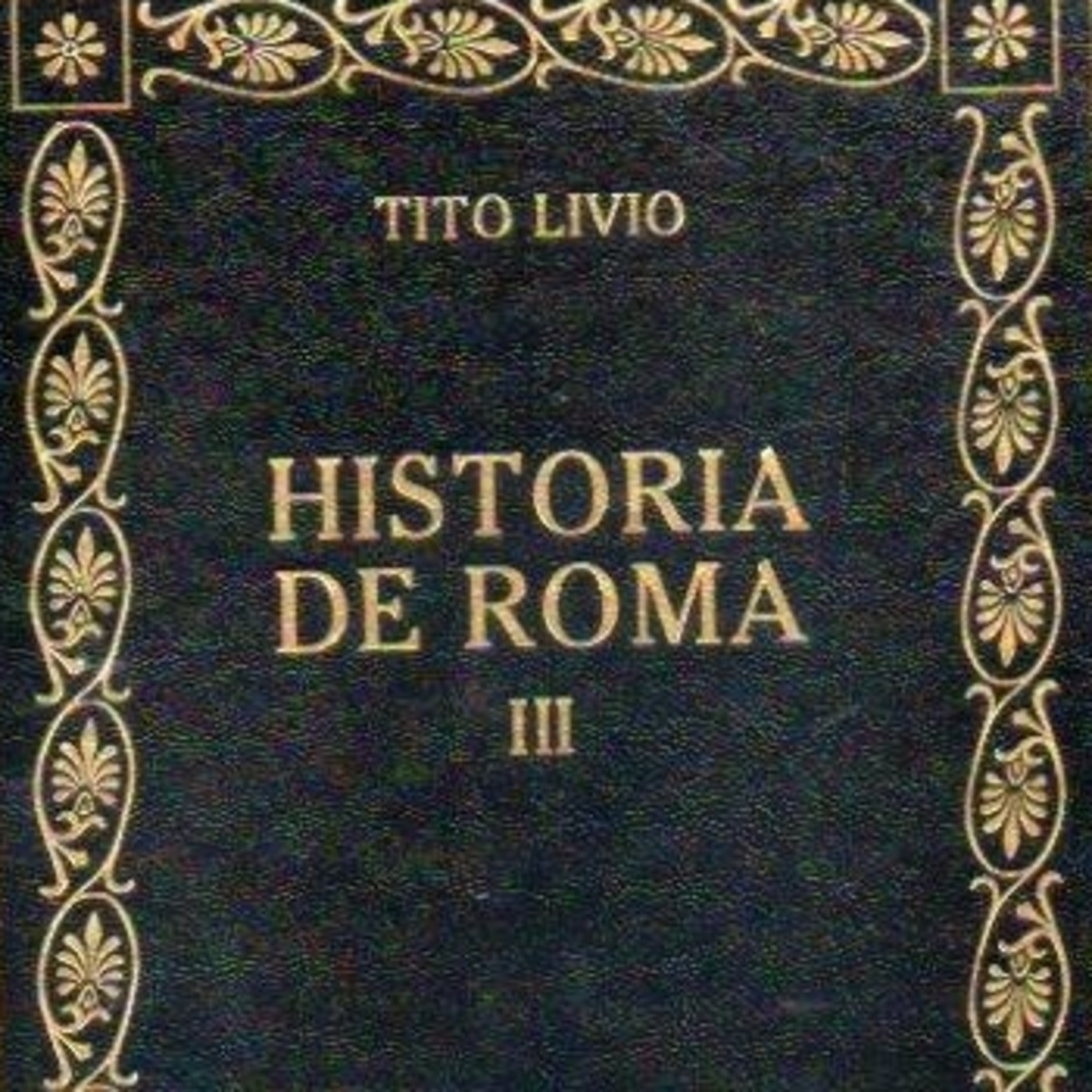 Tito LivioTito Livio - Historia de Roma 3ºAl principio, los decenviros habían buscado la popularidad ante la plebe compareciendo rodeados de ex, tribunos, pero ahora iban acompañados por una escolta de jóvenes patricios que se jactaban ante los tribunales, maltrataban a los plebeyos y saqueaban sus bienes; y siendo los más fuertes, alcanzaron a obtener todo aquello de lo que se encaprichaban. No se detenían en ejercer la violencia con las personas, algunos fueron azotados, otros decapitados y esto no era sin motivo, pues al castigo seguía la confiscación de los bienes. Corrompida por tales sobornos, los jóvenes nobles no sólo...2020-02-073h 28
Tito LivioTito Livio - Historia de Roma 3ºAl principio, los decenviros habían buscado la popularidad ante la plebe compareciendo rodeados de ex, tribunos, pero ahora iban acompañados por una escolta de jóvenes patricios que se jactaban ante los tribunales, maltrataban a los plebeyos y saqueaban sus bienes; y siendo los más fuertes, alcanzaron a obtener todo aquello de lo que se encaprichaban. No se detenían en ejercer la violencia con las personas, algunos fueron azotados, otros decapitados y esto no era sin motivo, pues al castigo seguía la confiscación de los bienes. Corrompida por tales sobornos, los jóvenes nobles no sólo...2020-02-073h 28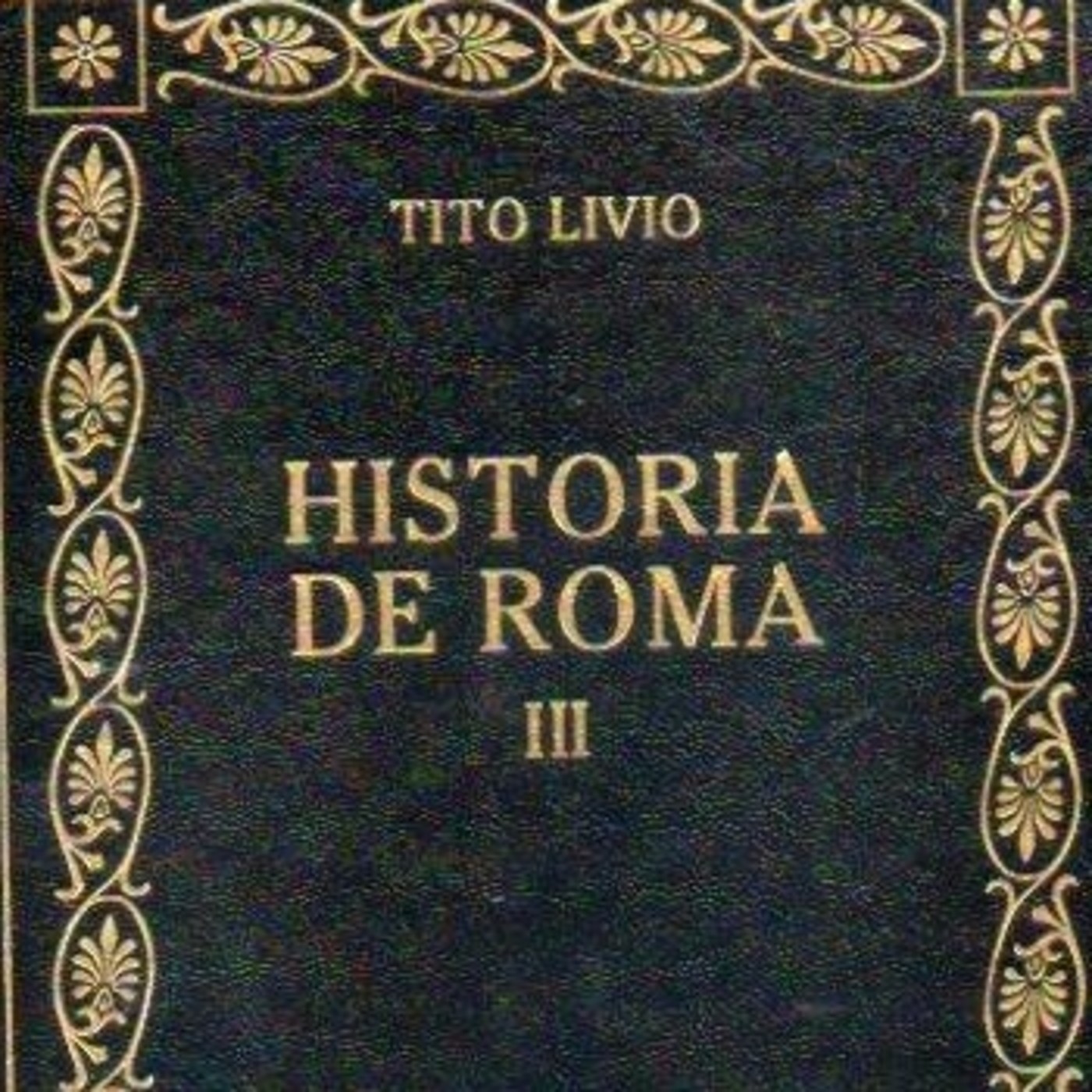 Tito LivioTito Livio - Historia de Roma 2ºDijo que mientras servía en la Guerra Sabina, no sólo perdió el producto de sus tierras por las depredaciones del enemigo, sino que su granja había sido incendiada, toda su propiedad confiscada, sus ganados expoliados y los impuestos de guerra se llevaron cuanto fue capaz de pagar, quedando al fin como deudor. Esta deuda había aumentado considerablemente por la usura y le habían despojado, en primer lugar, de la granja de su padre y abuelo y después de sus otras propiedades, para por fin le atacara la peste. No sólo había sido esclaviza...2020-02-073h 29
Tito LivioTito Livio - Historia de Roma 2ºDijo que mientras servía en la Guerra Sabina, no sólo perdió el producto de sus tierras por las depredaciones del enemigo, sino que su granja había sido incendiada, toda su propiedad confiscada, sus ganados expoliados y los impuestos de guerra se llevaron cuanto fue capaz de pagar, quedando al fin como deudor. Esta deuda había aumentado considerablemente por la usura y le habían despojado, en primer lugar, de la granja de su padre y abuelo y después de sus otras propiedades, para por fin le atacara la peste. No sólo había sido esclaviza...2020-02-073h 29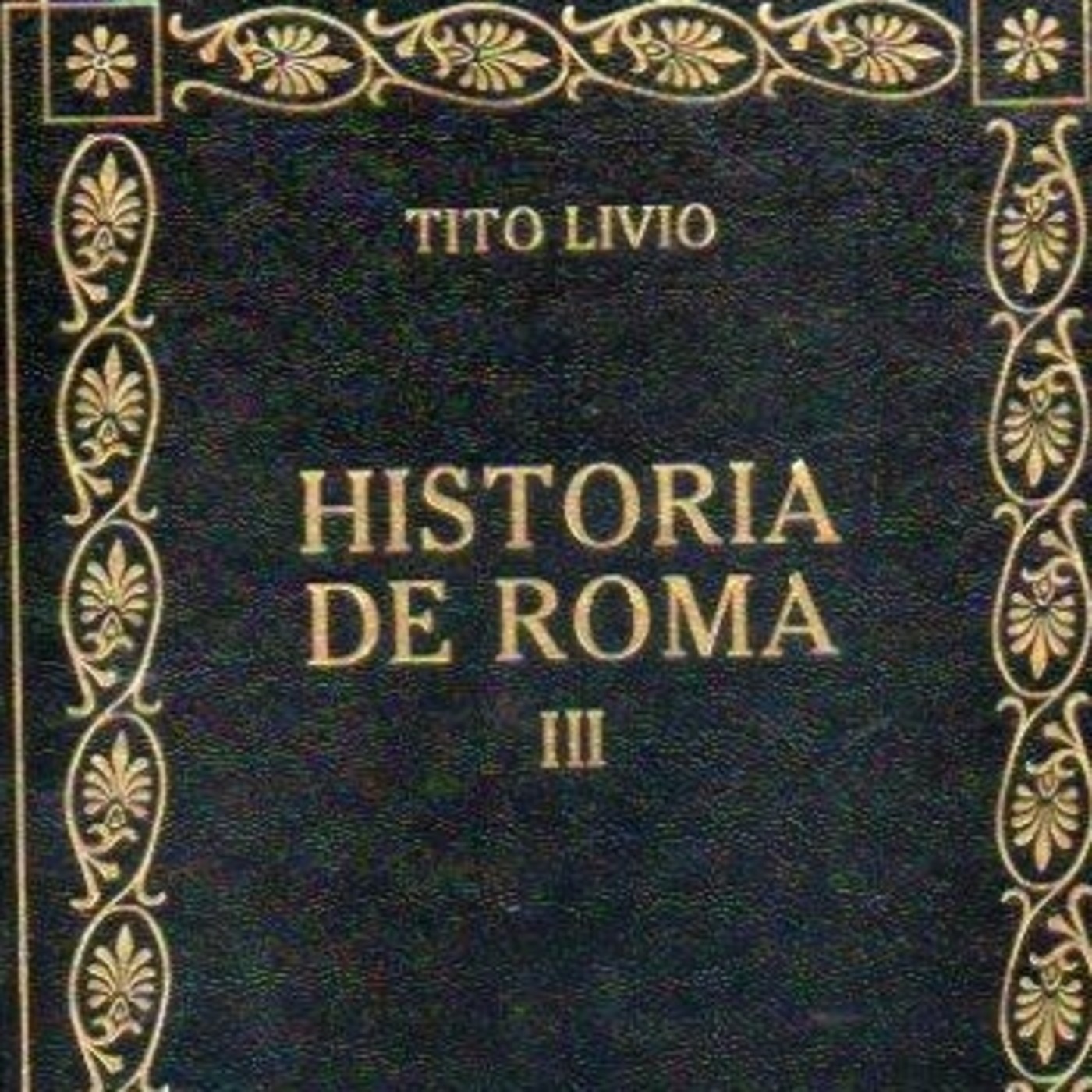 Tito LivioTito Livio - Historia de Roma 1ºHISTORIA DE ROMA desde su fundación. TITO LIVIO. Libros, primero al décimo. Libro 1: Las leyendas más antiguas de Roma. PREFACIO. Puede que la tarea que me he impuesto de escribir una historia completa del pueblo romano desde el comienzo mismo de su existencia me recompense por el trabajo invertido en ella, no lo sé con certeza, ni creo que pueda aventurarlo. Porque veo que esta es una práctica común y antiguamente establecida, cada nuevo escritor está siempre persuadido de que ni lograrán mayor certidumbre en las materias de su narración, ni superarán la rudeza...2020-02-073h 37
Tito LivioTito Livio - Historia de Roma 1ºHISTORIA DE ROMA desde su fundación. TITO LIVIO. Libros, primero al décimo. Libro 1: Las leyendas más antiguas de Roma. PREFACIO. Puede que la tarea que me he impuesto de escribir una historia completa del pueblo romano desde el comienzo mismo de su existencia me recompense por el trabajo invertido en ella, no lo sé con certeza, ni creo que pueda aventurarlo. Porque veo que esta es una práctica común y antiguamente establecida, cada nuevo escritor está siempre persuadido de que ni lograrán mayor certidumbre en las materias de su narración, ni superarán la rudeza...2020-02-073h 37 Dark Green Anarchy5 Dark Green Anarchy: Smokin' &Talkin' with RamblerWombat visits Rambler for a smoke and chat. They talk about a recent discussion between John Zerzan and Bellamy Fitzpatrick, among other random topics.2020-02-0522 min
Dark Green Anarchy5 Dark Green Anarchy: Smokin' &Talkin' with RamblerWombat visits Rambler for a smoke and chat. They talk about a recent discussion between John Zerzan and Bellamy Fitzpatrick, among other random topics.2020-02-0522 min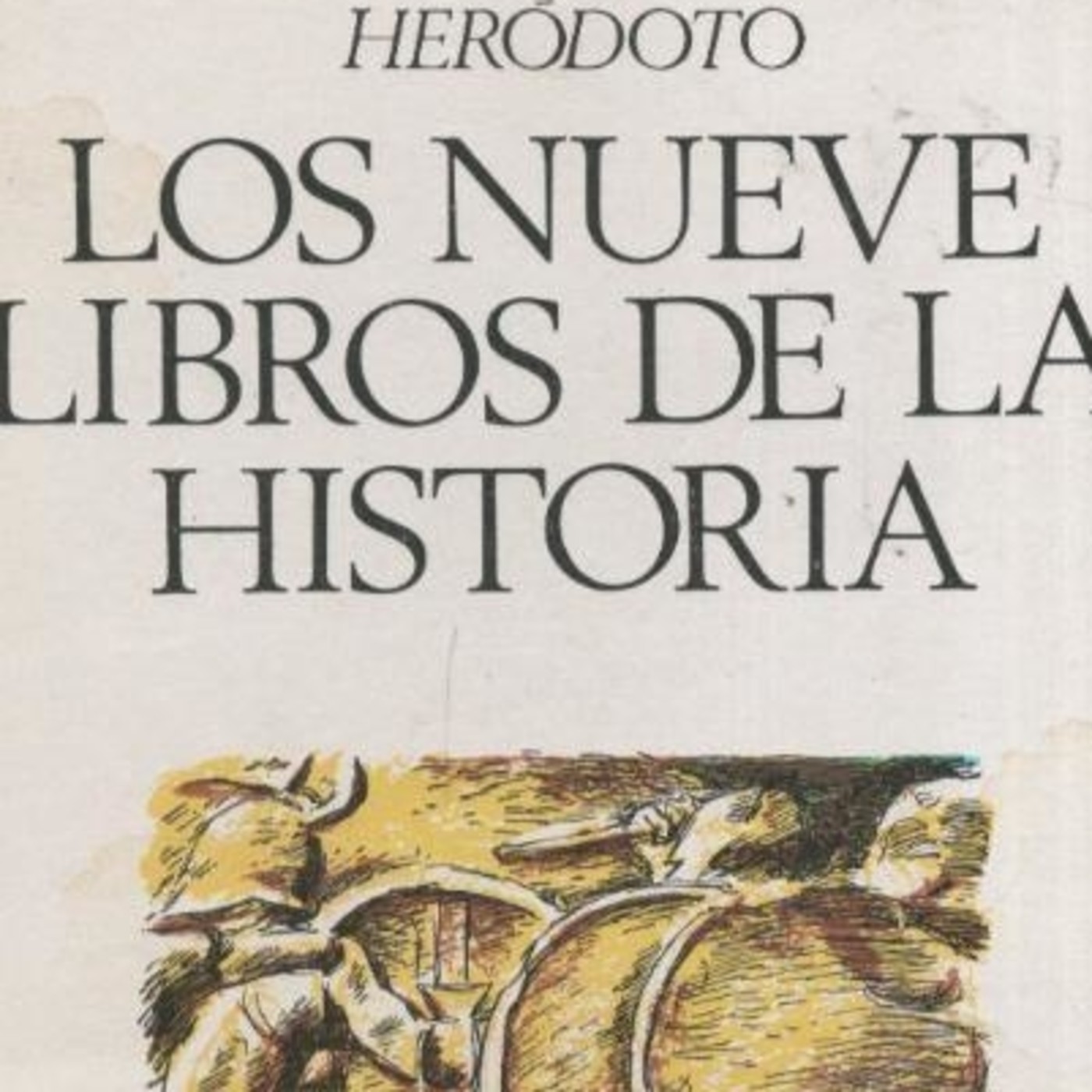 HeródotoLos nueve libros de la historia. Libro noveno - CalíopeHerodoto. Los nueve libros de la historia. Libro noveno. Calíope.
I. Recibida, pues, dicha respuesta, dieron la vuelta hacia Esparta los enviados; pero Mardonio, luego que vuelto de su embajada Alejandro le dio razón de lo que traía de parte de los atenienses, saliendo al punto de Tesalia dábase mucha prisa en conducir sus tropas contra Atenas, haciendo al mismo tiempo que se le agregasen con sus respectivas milicias los pueblos por donde iba pasando. Los príncipes de la Tesalia, bien lejos de arrepentirse de su pasada conducta, entonces con mayor empeño y diligencia servía...2019-12-022h 10
HeródotoLos nueve libros de la historia. Libro noveno - CalíopeHerodoto. Los nueve libros de la historia. Libro noveno. Calíope.
I. Recibida, pues, dicha respuesta, dieron la vuelta hacia Esparta los enviados; pero Mardonio, luego que vuelto de su embajada Alejandro le dio razón de lo que traía de parte de los atenienses, saliendo al punto de Tesalia dábase mucha prisa en conducir sus tropas contra Atenas, haciendo al mismo tiempo que se le agregasen con sus respectivas milicias los pueblos por donde iba pasando. Los príncipes de la Tesalia, bien lejos de arrepentirse de su pasada conducta, entonces con mayor empeño y diligencia servía...2019-12-022h 10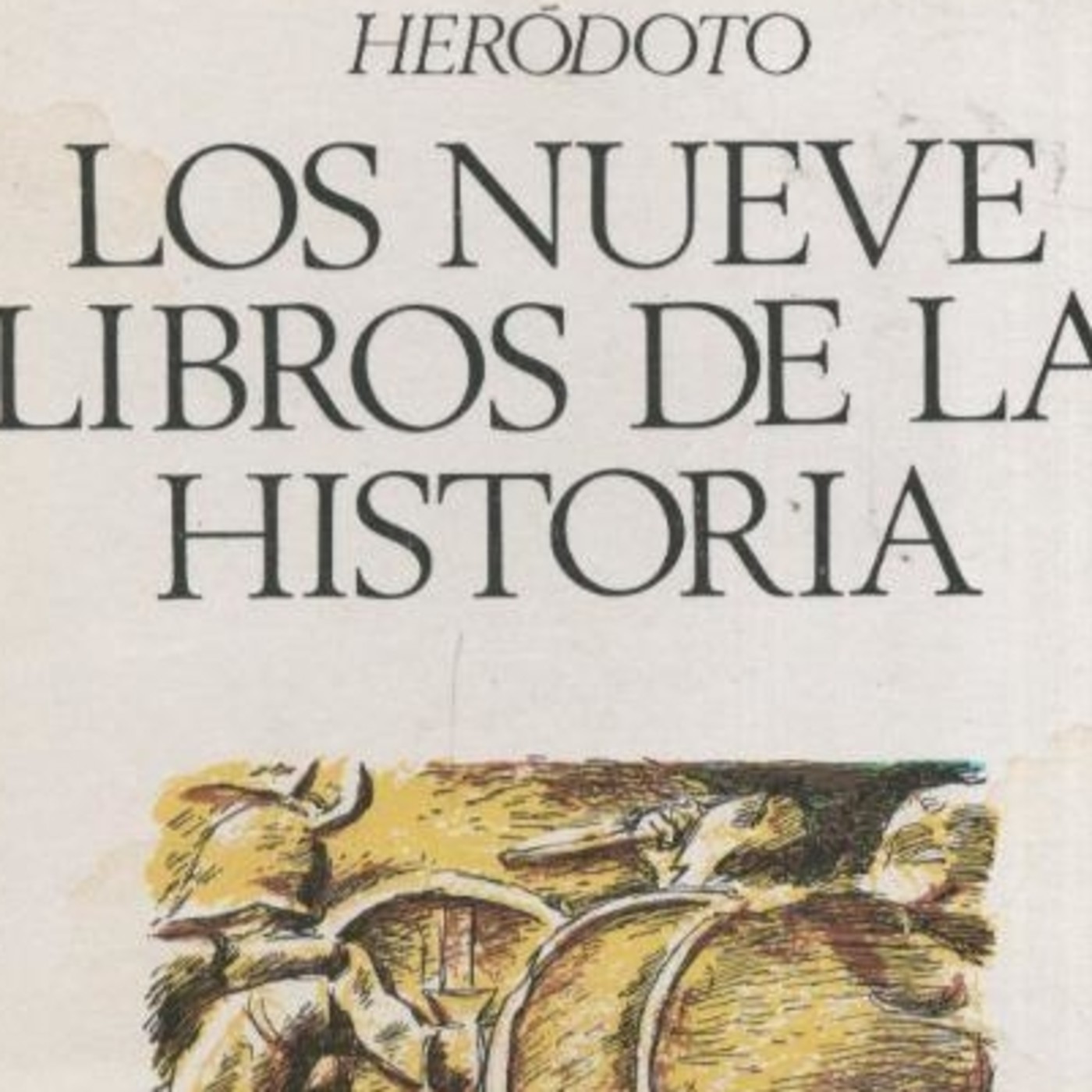 HeródotoLos nueve libros de la historia. Libro octavo - UraniaHerodoto. Los nueve libros de la historia. Libro octavo. Urania.
I. De este modo, pues, dicen que pasaron los acontecimientos; por lo que mira a la armada de los griegos, iban en ella los siguientes: los atenienses suministraban 127 naves, a cuyo armamento concurrían con ellos los de Platea, quienes, bien que rudos e ignorantes en la náutica, por su valor y brío se mostraban prontos a embarcarse. Los corintios daban 40 naves; los megarenses 20, y los de Cálcide armaban otras 20, que los atenienses les habían prestado; contribuían con 48 los eginetas; con 12 los sicionios; con 10 los lacede...2019-12-022h 14
HeródotoLos nueve libros de la historia. Libro octavo - UraniaHerodoto. Los nueve libros de la historia. Libro octavo. Urania.
I. De este modo, pues, dicen que pasaron los acontecimientos; por lo que mira a la armada de los griegos, iban en ella los siguientes: los atenienses suministraban 127 naves, a cuyo armamento concurrían con ellos los de Platea, quienes, bien que rudos e ignorantes en la náutica, por su valor y brío se mostraban prontos a embarcarse. Los corintios daban 40 naves; los megarenses 20, y los de Cálcide armaban otras 20, que los atenienses les habían prestado; contribuían con 48 los eginetas; con 12 los sicionios; con 10 los lacede...2019-12-022h 14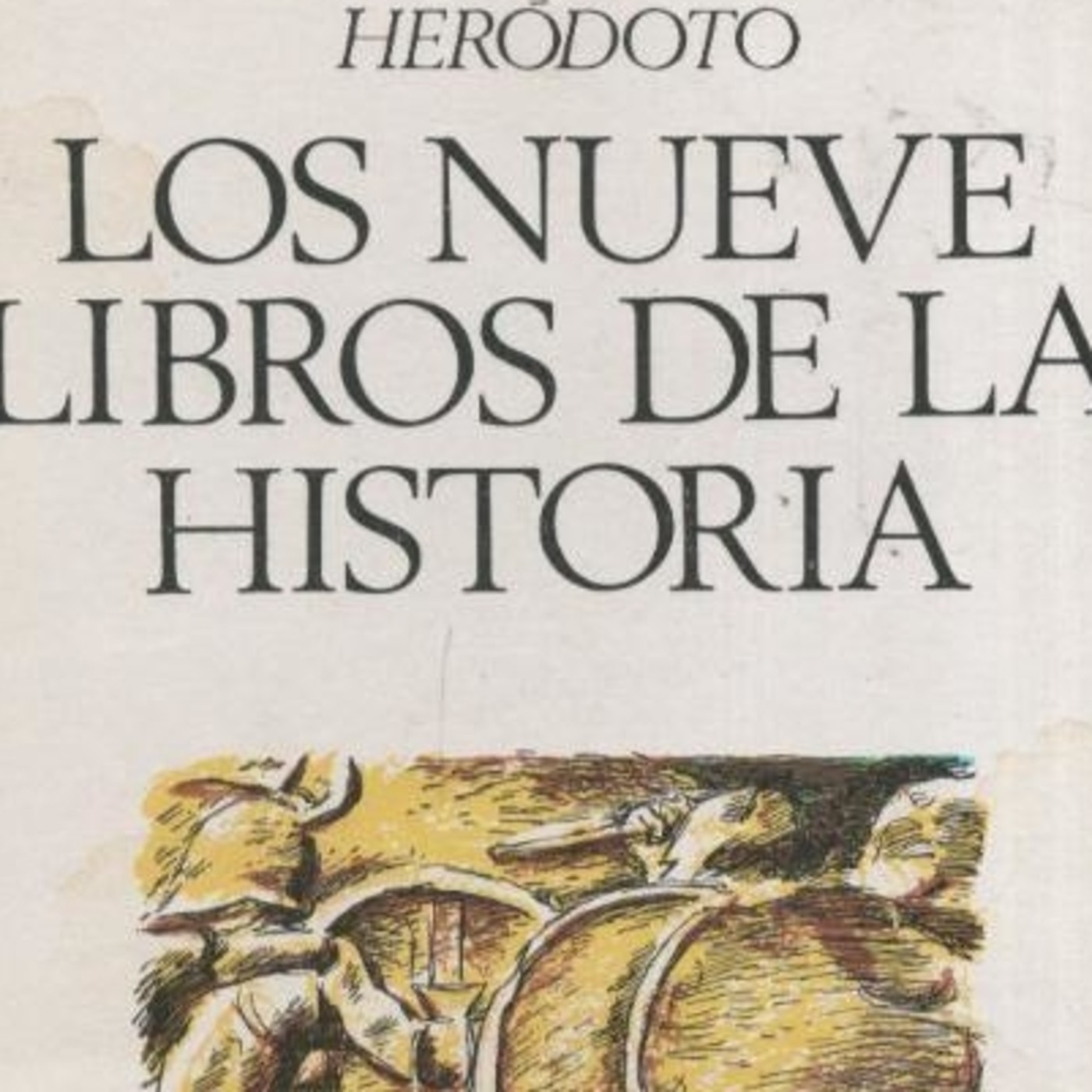 HeródotoLos nueve libros de la historia. Libro séptimo - PolimniaHerodoto. Los nueve libros de la historia. Libro séptimo. Polimnia.
I. Cuando llegó al rey Darío, hijo de Histaspes, la nueva de la batalla dada en Maratón, hallándole ya altamente prevenido de antemano contra los atenienses a causa de la sorpresa con que habían entrado en Sardes, acabó entonces de irritarle contra aquellos pueblos, obstinándose más y más en invadir de nuevo la Grecia. Desde luego, despachando correos a las ciudades de sus dominios a fin de que le aprontasen tropas, exigió a cada una un número mayor del que antes le habían da...2019-12-023h 33
HeródotoLos nueve libros de la historia. Libro séptimo - PolimniaHerodoto. Los nueve libros de la historia. Libro séptimo. Polimnia.
I. Cuando llegó al rey Darío, hijo de Histaspes, la nueva de la batalla dada en Maratón, hallándole ya altamente prevenido de antemano contra los atenienses a causa de la sorpresa con que habían entrado en Sardes, acabó entonces de irritarle contra aquellos pueblos, obstinándose más y más en invadir de nuevo la Grecia. Desde luego, despachando correos a las ciudades de sus dominios a fin de que le aprontasen tropas, exigió a cada una un número mayor del que antes le habían da...2019-12-023h 33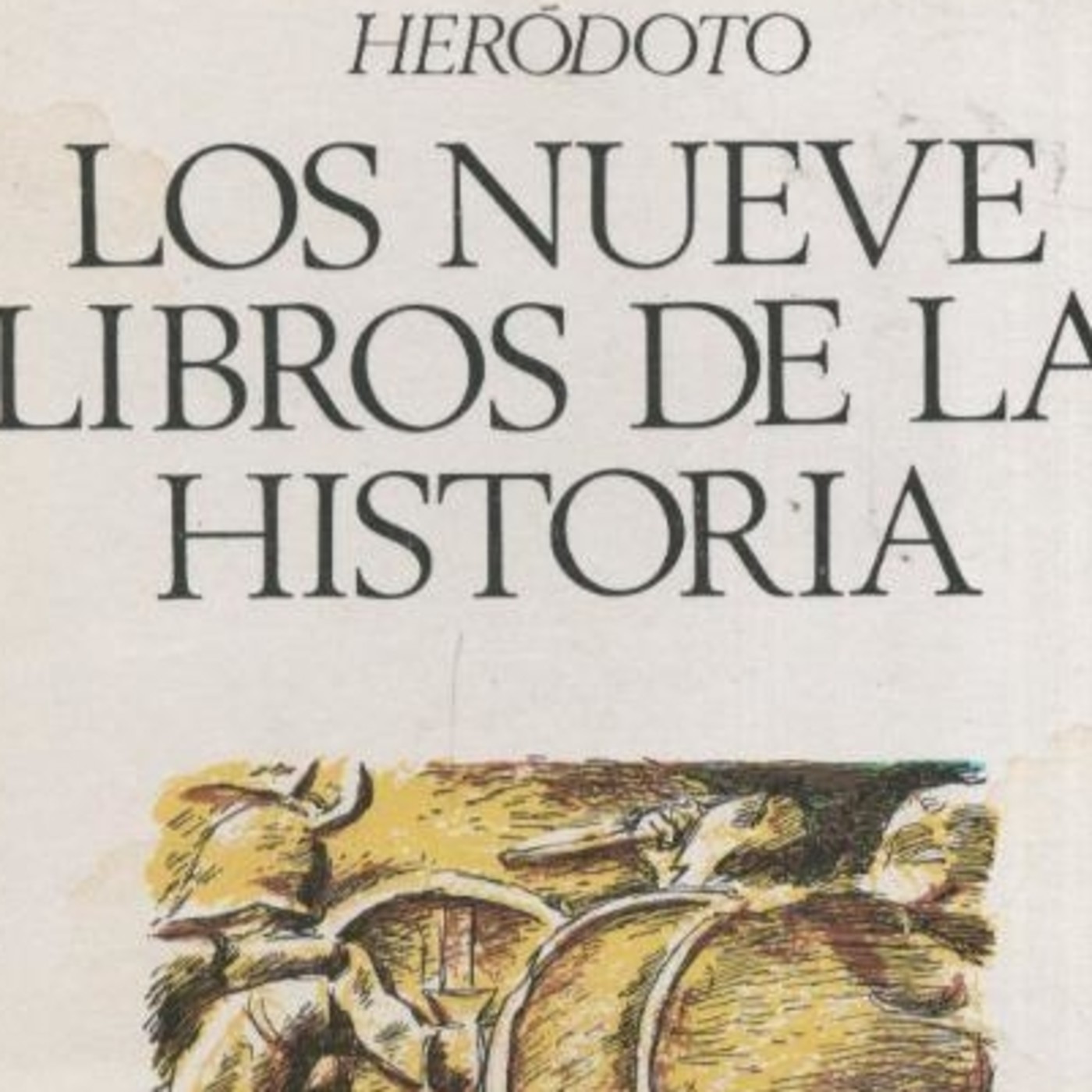 HeródotoLos nueve libros de la historia. Libro sexto - EratoHerodoto. Los nueve libros de la historia. Libro sexto. Erato.
I. Tal fue el fin que tuvo Aristágoras, el que había sublevado la Jonia. Durante estos sucesos había ya vuelto a Sardes, conseguida licencia de Darío, Histieo, señor de Mileto, a quien apenas acabado de llegar de Susa preguntó Artafernes, virrey de Sardes, qué le parecía aquella rebelión y cuál habría sido el motivo de ella. Fingiendo Histieo que nada sabía, y maravillándose del estado presente de las cosas, respondióle que todo le cogía de nuevo. Pero bien enterado A...2019-12-022h 11
HeródotoLos nueve libros de la historia. Libro sexto - EratoHerodoto. Los nueve libros de la historia. Libro sexto. Erato.
I. Tal fue el fin que tuvo Aristágoras, el que había sublevado la Jonia. Durante estos sucesos había ya vuelto a Sardes, conseguida licencia de Darío, Histieo, señor de Mileto, a quien apenas acabado de llegar de Susa preguntó Artafernes, virrey de Sardes, qué le parecía aquella rebelión y cuál habría sido el motivo de ella. Fingiendo Histieo que nada sabía, y maravillándose del estado presente de las cosas, respondióle que todo le cogía de nuevo. Pero bien enterado A...2019-12-022h 11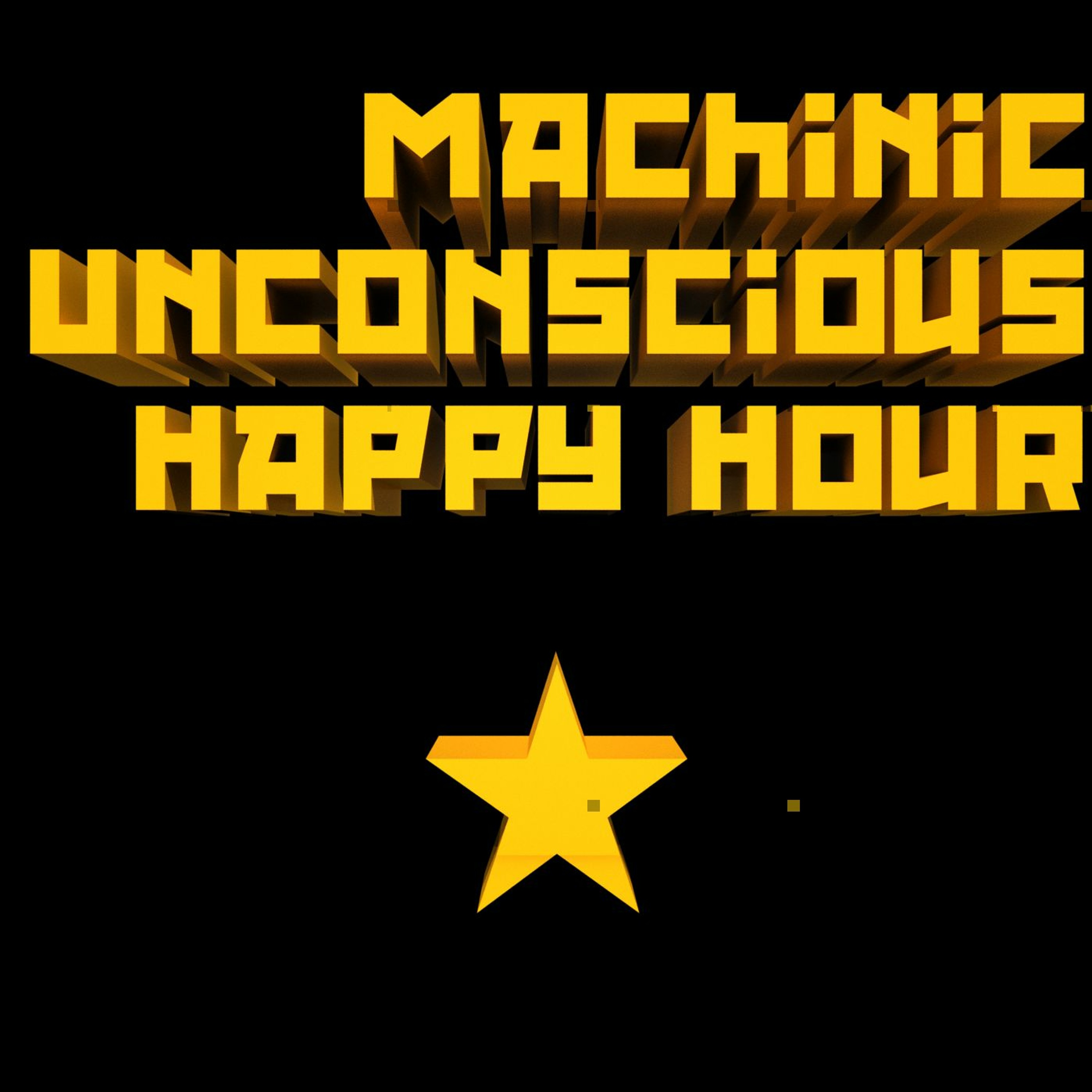 Machinic Unconscious Happy HourMaximillian Alvarez - Max PomoMaximillian Alvarez, writer and host of the Working People podcast joined me to take a look at John Zerzan's The Catastrophe of Postmodernism.
Article Link:
https://theanarchistlibrary.org/library/john-zerzan-the-catastrophe-of-postmodernism
Max's Links:
https://www.stitcher.com/podcast/maximillian-alvarez/working-people
https://activeforgetting.com/
https://thebaffler.com/authors/maximillian-alvarez
Twitter: @maximillian_alv
Support us on Patreon:
https://www.patreon.com/podcastcocoopercherry
Twitter: @Podcastcocooper
Instagram: @podcast_co_cooper_cherry2019-08-121h 22
Machinic Unconscious Happy HourMaximillian Alvarez - Max PomoMaximillian Alvarez, writer and host of the Working People podcast joined me to take a look at John Zerzan's The Catastrophe of Postmodernism.
Article Link:
https://theanarchistlibrary.org/library/john-zerzan-the-catastrophe-of-postmodernism
Max's Links:
https://www.stitcher.com/podcast/maximillian-alvarez/working-people
https://activeforgetting.com/
https://thebaffler.com/authors/maximillian-alvarez
Twitter: @maximillian_alv
Support us on Patreon:
https://www.patreon.com/podcastcocoopercherry
Twitter: @Podcastcocooper
Instagram: @podcast_co_cooper_cherry2019-08-121h 22 HermitixPrimitivism and Time with John ZerzanJohn Zerzan is an anarchist and primitivist ecophilosopher and author. His works criticize agricultural civilization as inherently oppressive, and advocate drawing upon the ways of life of hunter-gatherers as an inspiration for what a free society should look like. (Wikipedia)
---
Please support Hermitix at:
Hermitix Subscription - https://hermitix.net/subscribe/
Patreon - https://www.patreon.com/hermitix
Donations: - https://www.paypal.me/hermitixpod
Hermitix Merchandise - http://teespring.com/stores/hermitix-2
Bitcoin Donation Address: 3LAGEKBXEuE2pgc4oubExGTWtrKPuXDDLK
Ethereum Donation Address: 0xfd2bbe86d6070...2019-02-1639 min
HermitixPrimitivism and Time with John ZerzanJohn Zerzan is an anarchist and primitivist ecophilosopher and author. His works criticize agricultural civilization as inherently oppressive, and advocate drawing upon the ways of life of hunter-gatherers as an inspiration for what a free society should look like. (Wikipedia)
---
Please support Hermitix at:
Hermitix Subscription - https://hermitix.net/subscribe/
Patreon - https://www.patreon.com/hermitix
Donations: - https://www.paypal.me/hermitixpod
Hermitix Merchandise - http://teespring.com/stores/hermitix-2
Bitcoin Donation Address: 3LAGEKBXEuE2pgc4oubExGTWtrKPuXDDLK
Ethereum Donation Address: 0xfd2bbe86d6070...2019-02-1639 min The Regrettable CenturyDisagreements With the UnabomberThis week we dive deep into eco-terrorism / green anarchy / primitivism, and discuss why we think the Unambomber had some good points while also disagreeing with him, a lot. Anti-Civ folks would tell you that the problems that plague humanity begin with the industrial revolution and that we need to go back to hunter/gatherer societies. We at The Regrettable Century, however, enjoy the fact that we survived past childbirth and can wear corrective lenses to read books safely inside of our warm homes this winter. We bet you can figure out what we think the real p...2019-01-281h 02
The Regrettable CenturyDisagreements With the UnabomberThis week we dive deep into eco-terrorism / green anarchy / primitivism, and discuss why we think the Unambomber had some good points while also disagreeing with him, a lot. Anti-Civ folks would tell you that the problems that plague humanity begin with the industrial revolution and that we need to go back to hunter/gatherer societies. We at The Regrettable Century, however, enjoy the fact that we survived past childbirth and can wear corrective lenses to read books safely inside of our warm homes this winter. We bet you can figure out what we think the real p...2019-01-281h 02 IT'S GOING DOWNFrom the Whiteaker to the Woods: The Rise of the “Eugene Anarchists,” Part 1“That was the kind of equation if you will, I remember talking to people, and everybody was saying, “If the urban, anarcho-punk types ever connect with the tree-sitters and forest defense people – it’s gonna really take off.” – John Zerzan “That surge of creative, autonomous energy attracted fresh new blood to town, eco-anarchists ready […]2019-01-161h 13
IT'S GOING DOWNFrom the Whiteaker to the Woods: The Rise of the “Eugene Anarchists,” Part 1“That was the kind of equation if you will, I remember talking to people, and everybody was saying, “If the urban, anarcho-punk types ever connect with the tree-sitters and forest defense people – it’s gonna really take off.” – John Zerzan “That surge of creative, autonomous energy attracted fresh new blood to town, eco-anarchists ready […]2019-01-161h 13 Last Born In The WildernessJohn Zerzan: Domestication & The Neurotic SpeciesIn this segment, anarchist and primitivist philosopher John Zerzan and I discuss the root of the pervasive neuroses, destructive addictive behaviors, and outbursts of violence in modern society — all of which stem from the alienation produced by the community-destroying elements present in civilized life today. Through John’s examination of anthropological evidence of humanity’s pre-historic past, we can understand that much of what we take for granted to be “normal” human behavior and development is really, in the scope of things, a rather recent product of the logic of technological and economic progress inherent in capitalist development — the most recent phase...2018-10-1006 min
Last Born In The WildernessJohn Zerzan: Domestication & The Neurotic SpeciesIn this segment, anarchist and primitivist philosopher John Zerzan and I discuss the root of the pervasive neuroses, destructive addictive behaviors, and outbursts of violence in modern society — all of which stem from the alienation produced by the community-destroying elements present in civilized life today. Through John’s examination of anthropological evidence of humanity’s pre-historic past, we can understand that much of what we take for granted to be “normal” human behavior and development is really, in the scope of things, a rather recent product of the logic of technological and economic progress inherent in capitalist development — the most recent phase...2018-10-1006 min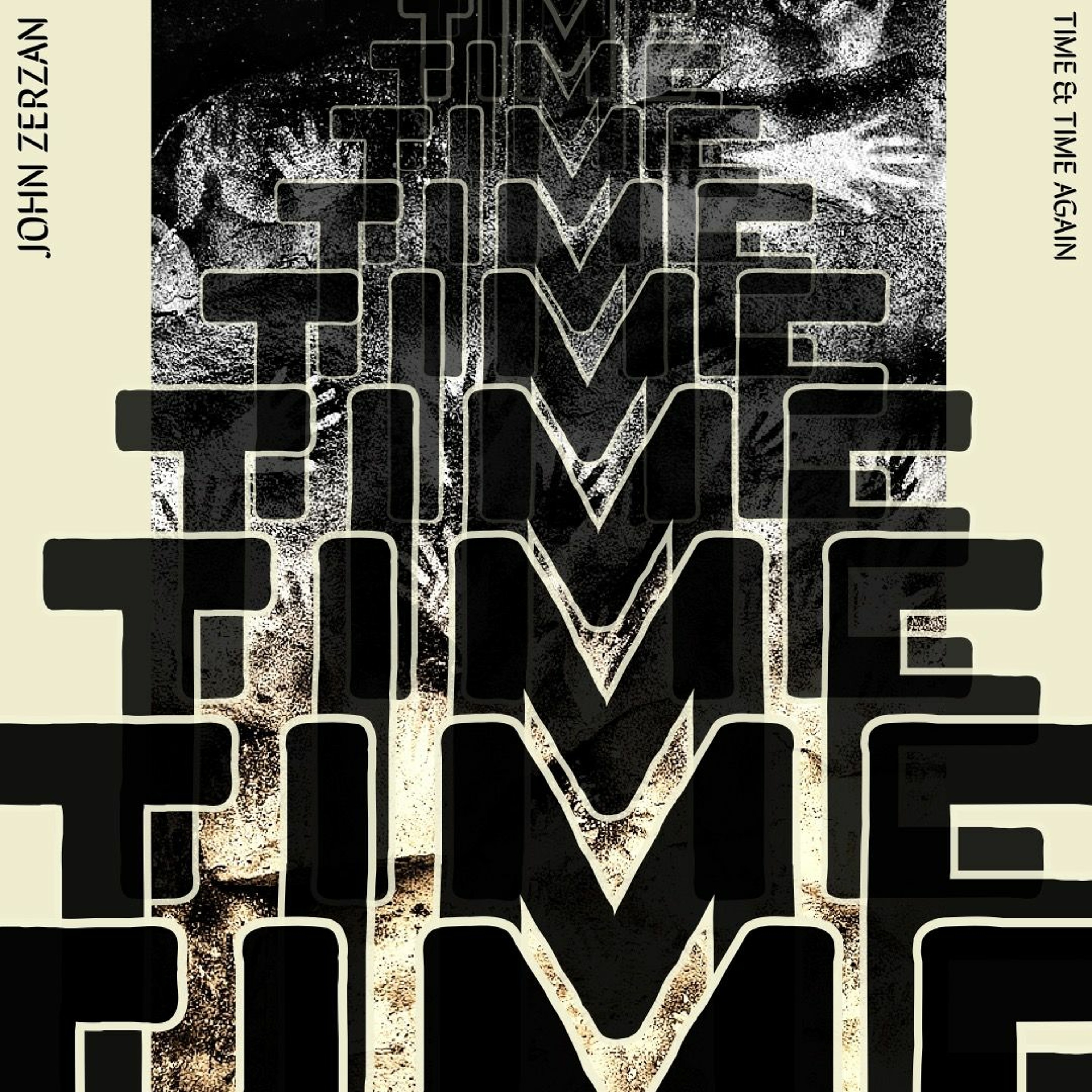 Last Born In The Wilderness149 / Time + Time, Again / John ZerzanI speak with anarchist and primitivist writer and philosopher John Zerzan. We discuss his in-depth analysis of the roots of Time as we understand it to be in the modern sense (explored in a collection of essays titled Time & Time Again), the roots of agriculture and the domestication of life, the detrimental impact this transition has had on human health and physical development, the neuroses of mass society (alienation, depression, anxiety, etc.), the wholesale disappearance of community, and the threat technological advancement poses for complex life on the planet.
// Episode notes: https://www.lastborninthewilderness.com/episodes/john-zerzan
// Sustain + support: https...2018-10-081h 32
Last Born In The Wilderness149 / Time + Time, Again / John ZerzanI speak with anarchist and primitivist writer and philosopher John Zerzan. We discuss his in-depth analysis of the roots of Time as we understand it to be in the modern sense (explored in a collection of essays titled Time & Time Again), the roots of agriculture and the domestication of life, the detrimental impact this transition has had on human health and physical development, the neuroses of mass society (alienation, depression, anxiety, etc.), the wholesale disappearance of community, and the threat technological advancement poses for complex life on the planet.
// Episode notes: https://www.lastborninthewilderness.com/episodes/john-zerzan
// Sustain + support: https...2018-10-081h 32 Last Born In The Wilderness#149 | Time & Time, Again: The Neuroses Of Domesticated Life w/ John ZerzanIn this episode, I speak with anarchist and primitivist writer and philosopher John Zerzan. We discuss his deep analysis of the roots of Time as we understand it to be in the modern sense (explored in a collection of essays titled ‘Time & Time Again’), the roots of agriculture and the domestication of life, the detrimental impact this transition has had on human health and physical development, the neuroses of mass society (alienation, depression, anxiety, etc.), the wholesale disappearance of community, and the threat technological advancement poses for complex life on the planet. As mentioned above, we begin the disc...2018-10-081h 32
Last Born In The Wilderness#149 | Time & Time, Again: The Neuroses Of Domesticated Life w/ John ZerzanIn this episode, I speak with anarchist and primitivist writer and philosopher John Zerzan. We discuss his deep analysis of the roots of Time as we understand it to be in the modern sense (explored in a collection of essays titled ‘Time & Time Again’), the roots of agriculture and the domestication of life, the detrimental impact this transition has had on human health and physical development, the neuroses of mass society (alienation, depression, anxiety, etc.), the wholesale disappearance of community, and the threat technological advancement poses for complex life on the planet. As mentioned above, we begin the disc...2018-10-081h 32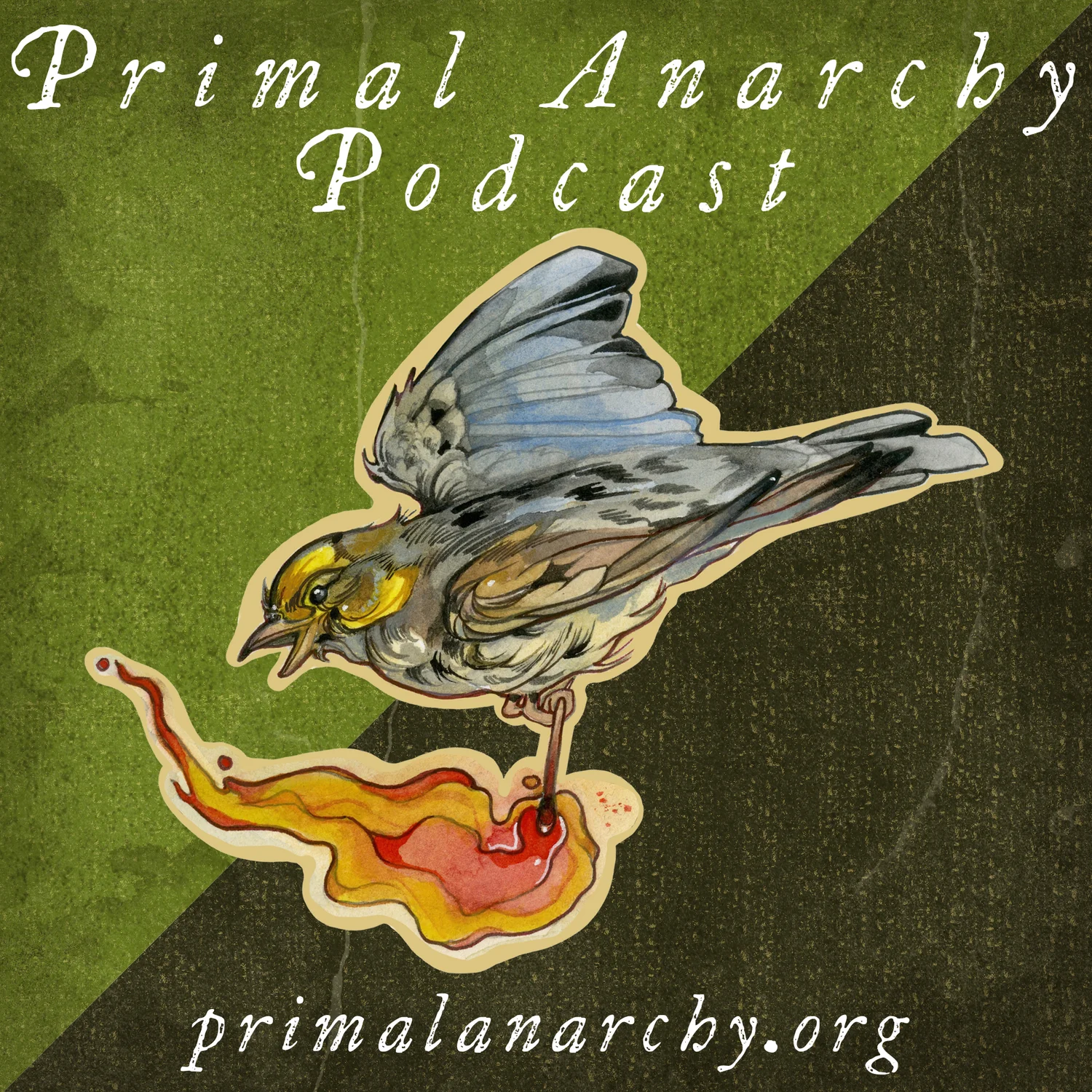 Primal Anarchy PodcastB&G Podcast 15: BAGR Roundtable DiscussionHad the pleasure of swinging by Eugene, Oregon to meet up at John Zerzan's house last weekend along with five other current and former editors of Black and Green Review to talk about the journal, direction, discussion about the anarchist milieu and anti-civ discussion. Featuring John Zerzan, Evan Cestari, Lilia, Cliff Hayes, and Yank.2018-10-0454 min
Primal Anarchy PodcastB&G Podcast 15: BAGR Roundtable DiscussionHad the pleasure of swinging by Eugene, Oregon to meet up at John Zerzan's house last weekend along with five other current and former editors of Black and Green Review to talk about the journal, direction, discussion about the anarchist milieu and anti-civ discussion. Featuring John Zerzan, Evan Cestari, Lilia, Cliff Hayes, and Yank.2018-10-0454 min The Ultimate Art Bell Podcast Feed2002-04-18 - Coast to Coast AM with Art Bell - John Zerzan - Anarchist2002-04-18 - Coast to Coast AM with Art Bell - John Zerzan - Anarchist2018-09-2900 min
The Ultimate Art Bell Podcast Feed2002-04-18 - Coast to Coast AM with Art Bell - John Zerzan - Anarchist2002-04-18 - Coast to Coast AM with Art Bell - John Zerzan - Anarchist2018-09-2900 min Last Born In The WildernessBen Etherington: Primitivist Transformation & The Utopia Of Pre-HistoryIn this segment, writer and lecturer Ben Etherington and I discuss Primitivism in contemporary culture and media, using the highest grossing film of all time, James Cameron’s ‘Avatar,’ as the focus of the discussion.In modern Western societies, the primitivist ideal is expressed though various means — a few examples being contemporary dietary fads like the “Paleo Diet,” fitness regimens like barefoot/minimalist running, radical anti-civilizational and anti- technological political philosophies (e.g. the works of anarcho-primitivist John Zerzan and the manifesto of the UNABOMBER Theodore Kaczynski) — as well as in popular films, literature, and art. Primitivist themes and aesthetics...2018-09-1107 min
Last Born In The WildernessBen Etherington: Primitivist Transformation & The Utopia Of Pre-HistoryIn this segment, writer and lecturer Ben Etherington and I discuss Primitivism in contemporary culture and media, using the highest grossing film of all time, James Cameron’s ‘Avatar,’ as the focus of the discussion.In modern Western societies, the primitivist ideal is expressed though various means — a few examples being contemporary dietary fads like the “Paleo Diet,” fitness regimens like barefoot/minimalist running, radical anti-civilizational and anti- technological political philosophies (e.g. the works of anarcho-primitivist John Zerzan and the manifesto of the UNABOMBER Theodore Kaczynski) — as well as in popular films, literature, and art. Primitivist themes and aesthetics...2018-09-1107 min Last Born In The Wilderness#143 | The New Primitives: The Reverse Teleology Of Primitivist Transformation w/ Ben EtheringtonOur guest for this episode is Ben Etherington — author of 'Literary Primitivism' and the long-form essay, published in the Los Angeles Review of Books, titled 'The New Primitives' — the themes of which we discuss in this episode. In this discussion, Ben lays out a nuanced examination of Primitivism — a “mode of aesthetic idealization that either emulates or aspires to recreate ‘primitive’ experience.”☽ In modern Western societies, the primitivist ideal is expressed though various means — a few examples being contemporary dietary fads like the “Paleo Diet,” fitness regimens like barefoot/minimalist running, radical anti-civilizational and anti- technological political philosophies (e.g. the works of anar...2018-09-071h 18
Last Born In The Wilderness#143 | The New Primitives: The Reverse Teleology Of Primitivist Transformation w/ Ben EtheringtonOur guest for this episode is Ben Etherington — author of 'Literary Primitivism' and the long-form essay, published in the Los Angeles Review of Books, titled 'The New Primitives' — the themes of which we discuss in this episode. In this discussion, Ben lays out a nuanced examination of Primitivism — a “mode of aesthetic idealization that either emulates or aspires to recreate ‘primitive’ experience.”☽ In modern Western societies, the primitivist ideal is expressed though various means — a few examples being contemporary dietary fads like the “Paleo Diet,” fitness regimens like barefoot/minimalist running, radical anti-civilizational and anti- technological political philosophies (e.g. the works of anar...2018-09-071h 18 Spellbound#017 DEBATE: Is Technology a Positive Force? w/ John Zerzan & Andrew RaderGreen Anarchist John Zerzan & Aerospace Engineer Andrew Rader debate the ultimate implications of civilization and technology. Learn more about your ad choices. Visit podcastchoices.com/adchoices2018-04-301h 21
Spellbound#017 DEBATE: Is Technology a Positive Force? w/ John Zerzan & Andrew RaderGreen Anarchist John Zerzan & Aerospace Engineer Andrew Rader debate the ultimate implications of civilization and technology. Learn more about your ad choices. Visit podcastchoices.com/adchoices2018-04-301h 21 Spellbound#016 Civilization & Anarchy w/ John ZerzanJohn Zerzan on the origins of Civilization and what we can learn from life before it. Learn more about your ad choices. Visit podcastchoices.com/adchoices2018-04-231h 34
Spellbound#016 Civilization & Anarchy w/ John ZerzanJohn Zerzan on the origins of Civilization and what we can learn from life before it. Learn more about your ad choices. Visit podcastchoices.com/adchoices2018-04-231h 34 The Final Straw RadioKevin Tucker on Anarcho-Primitivism (pt2)For a 59 minute long, radio clean version for syndication purposes, please visit the archive.org collection. Interview This week we air the second half of Bursts conversation with Kevin Tucker. Kevin is an anarcho-primitivist, author and publisher of Black & Green Review. This week we air Kevin’s views about tribal-bro-ism in the white supremacist and macho approach to historical misappropriation, upcoming issues of the journal Black & Green Review, Collapse, Rewilding versus Revolution and more. For a free look at some of Kevin’s writings, visit theanarchistlibrary.org, and to check out his publishing project, journals and books you...2017-10-081h 06
The Final Straw RadioKevin Tucker on Anarcho-Primitivism (pt2)For a 59 minute long, radio clean version for syndication purposes, please visit the archive.org collection. Interview This week we air the second half of Bursts conversation with Kevin Tucker. Kevin is an anarcho-primitivist, author and publisher of Black & Green Review. This week we air Kevin’s views about tribal-bro-ism in the white supremacist and macho approach to historical misappropriation, upcoming issues of the journal Black & Green Review, Collapse, Rewilding versus Revolution and more. For a free look at some of Kevin’s writings, visit theanarchistlibrary.org, and to check out his publishing project, journals and books you...2017-10-081h 06 Caqabaadka dhalinyarada ka hor yimaadaEp. 019 — Technology People“Thank you Mr. Machine...or Ms. Machine?”
—John Zerzan
About:
What does one make of our future—like the one 50 years from now? The answer, or rather a possible answer, has a lot to do with choice and technology. Whether we survive or go extinct is, however, another question.
Show Notes:
[01:20] A link to download the Park Mobile app
[01:25] “Inamorata (Marimba Solo)” by Blue Dot Sessions
[04:40] “Inside the Tower” by Visager
[06:15] More on Clooneys Pub (SFGate)
[06:40] Light reading on the James Comey hearings (CNN)
[07:50] More on Peter Eckersley (Electronic Frontier Foundation)
[08:20] Light reading on the latest allegations of Russian interference in the 2016 US E...2017-09-081h 05
Caqabaadka dhalinyarada ka hor yimaadaEp. 019 — Technology People“Thank you Mr. Machine...or Ms. Machine?”
—John Zerzan
About:
What does one make of our future—like the one 50 years from now? The answer, or rather a possible answer, has a lot to do with choice and technology. Whether we survive or go extinct is, however, another question.
Show Notes:
[01:20] A link to download the Park Mobile app
[01:25] “Inamorata (Marimba Solo)” by Blue Dot Sessions
[04:40] “Inside the Tower” by Visager
[06:15] More on Clooneys Pub (SFGate)
[06:40] Light reading on the James Comey hearings (CNN)
[07:50] More on Peter Eckersley (Electronic Frontier Foundation)
[08:20] Light reading on the latest allegations of Russian interference in the 2016 US E...2017-09-081h 05 Some NoiseTechnology People“Thank you Mr. Machine...or Ms. Machine?” —John Zerzan About: What does one make of our future—like the one 50 years from now? The answer, or rather a possible answer, has a lot to do with choice and technology. Whether we survive or go extinct is, however, another question. Show Notes: [01:20] A link to download the Park Mobile app [01:25] “Inamorata (Marimba Solo)” by Blue Dot Sessions [04:40] “Inside the Tower” by Visager [06:15] More on Clooneys Pub (SFGate) [06:40] Light reading on the James Comey hearings (CNN) [07:50] More on Peter Eckersley (Electronic Frontier Foundation) [08...2017-09-081h 05
Some NoiseTechnology People“Thank you Mr. Machine...or Ms. Machine?” —John Zerzan About: What does one make of our future—like the one 50 years from now? The answer, or rather a possible answer, has a lot to do with choice and technology. Whether we survive or go extinct is, however, another question. Show Notes: [01:20] A link to download the Park Mobile app [01:25] “Inamorata (Marimba Solo)” by Blue Dot Sessions [04:40] “Inside the Tower” by Visager [06:15] More on Clooneys Pub (SFGate) [06:40] Light reading on the James Comey hearings (CNN) [07:50] More on Peter Eckersley (Electronic Frontier Foundation) [08...2017-09-081h 05 42 MinutesJohn Zerzan: Running On Emptiness42 Minutes 236: John Zerzan - Running On Emptiness - 07.04.2016 The program celebrates Independence Day with primitivist philosopher and author, John Zerzan. We consider mass society, anarchy, and technology for 42 minutes. Topics Include: Ironic Alienation, Invasive Technology, Community, Mediation, Extreme Weather, Ecological Disaster, Ishmael, Domestication, GMOs, Nano Technology, Total Surveillance, Rejection of Hierarchy, Rat Race, Story, Myth, Reservation, Globalization, Battle in Seattle, Trump, Clinton, Indoctrination, Radical Energy, People's History, Black And Green Review. http://www.johnzerzan.net2016-07-2700 min
42 MinutesJohn Zerzan: Running On Emptiness42 Minutes 236: John Zerzan - Running On Emptiness - 07.04.2016 The program celebrates Independence Day with primitivist philosopher and author, John Zerzan. We consider mass society, anarchy, and technology for 42 minutes. Topics Include: Ironic Alienation, Invasive Technology, Community, Mediation, Extreme Weather, Ecological Disaster, Ishmael, Domestication, GMOs, Nano Technology, Total Surveillance, Rejection of Hierarchy, Rat Race, Story, Myth, Reservation, Globalization, Battle in Seattle, Trump, Clinton, Indoctrination, Radical Energy, People's History, Black And Green Review. http://www.johnzerzan.net2016-07-2700 min 42 MinutesZander Sherman: Running on Empty - Anarchy & Alienation42 Minutes 234: Zander Sherman - Running on Empty: Anarchy & Alienation - 06.27.16 The origin of the word "anarchy" comes from the Greek which means "without" "chief" or "ruler." We explore this today for 42 minutes with Canadian essayist, Zander Sherman. Topics Include: Ironic Alienation, Ideology, Emptiness, Meaninglessness, Synchronicity, Mental Illness, Impaired Emotions, Psychosis, Schizophrenia, Inciting Event, PKD, Paranoid Delusions, Technology & Nature, Unabomber, John Zerzan, Stephen Pinker, Thomas Hobbes, Hope. https://twitter.com/zandersherman2016-07-0400 min
42 MinutesZander Sherman: Running on Empty - Anarchy & Alienation42 Minutes 234: Zander Sherman - Running on Empty: Anarchy & Alienation - 06.27.16 The origin of the word "anarchy" comes from the Greek which means "without" "chief" or "ruler." We explore this today for 42 minutes with Canadian essayist, Zander Sherman. Topics Include: Ironic Alienation, Ideology, Emptiness, Meaninglessness, Synchronicity, Mental Illness, Impaired Emotions, Psychosis, Schizophrenia, Inciting Event, PKD, Paranoid Delusions, Technology & Nature, Unabomber, John Zerzan, Stephen Pinker, Thomas Hobbes, Hope. https://twitter.com/zandersherman2016-07-0400 min Raven RowThe Real Truth - Talk with Robert RydellSaturday 4 August, 5pm
The Murderous Idolatry of the Future: Anarcho-Primitivism and the end of Technology
John Zerzan was active in the Sixties in San Francisco and Berkeley. A leading participant in the contemporary anarchist resurgence, Zerzan's political project calls for the destruction of technology. He draws the distinction between tools that stay under the control of the user, and technological systems that draw the user into their control. His critical ideas have challenged symbolic thought, mathematics, art and the concept of time. Zerzan has published in the Detroit magazine Fifth Estate and his books include Elements of Refusal (1988, 1999), Against Civilization (1999...2014-10-101h 08
Raven RowThe Real Truth - Talk with Robert RydellSaturday 4 August, 5pm
The Murderous Idolatry of the Future: Anarcho-Primitivism and the end of Technology
John Zerzan was active in the Sixties in San Francisco and Berkeley. A leading participant in the contemporary anarchist resurgence, Zerzan's political project calls for the destruction of technology. He draws the distinction between tools that stay under the control of the user, and technological systems that draw the user into their control. His critical ideas have challenged symbolic thought, mathematics, art and the concept of time. Zerzan has published in the Detroit magazine Fifth Estate and his books include Elements of Refusal (1988, 1999), Against Civilization (1999...2014-10-101h 08 Raven RowThe Real Truth - Talk with John Zerzan FinalThe Real Truth. A World’s Fair
28 July to 19 August 2012
A project by Suzanne Treister at Raven Row over four weekends featuring four keynote speeches within a specially designed theatre
Saturday 4 August, 5pm
The Murderous Idolatry of the Future: Anarcho-Primitivism and the end of Technology
John Zerzan was active in the Sixties in San Francisco and Berkeley. A leading participant in the contemporary anarchist resurgence, Zerzan's political project calls for the destruction of technology. He draws the distinction between tools that stay under the control of the user, and technological systems that draw the user into their control. His critical id...2014-08-291h 47
Raven RowThe Real Truth - Talk with John Zerzan FinalThe Real Truth. A World’s Fair
28 July to 19 August 2012
A project by Suzanne Treister at Raven Row over four weekends featuring four keynote speeches within a specially designed theatre
Saturday 4 August, 5pm
The Murderous Idolatry of the Future: Anarcho-Primitivism and the end of Technology
John Zerzan was active in the Sixties in San Francisco and Berkeley. A leading participant in the contemporary anarchist resurgence, Zerzan's political project calls for the destruction of technology. He draws the distinction between tools that stay under the control of the user, and technological systems that draw the user into their control. His critical id...2014-08-291h 47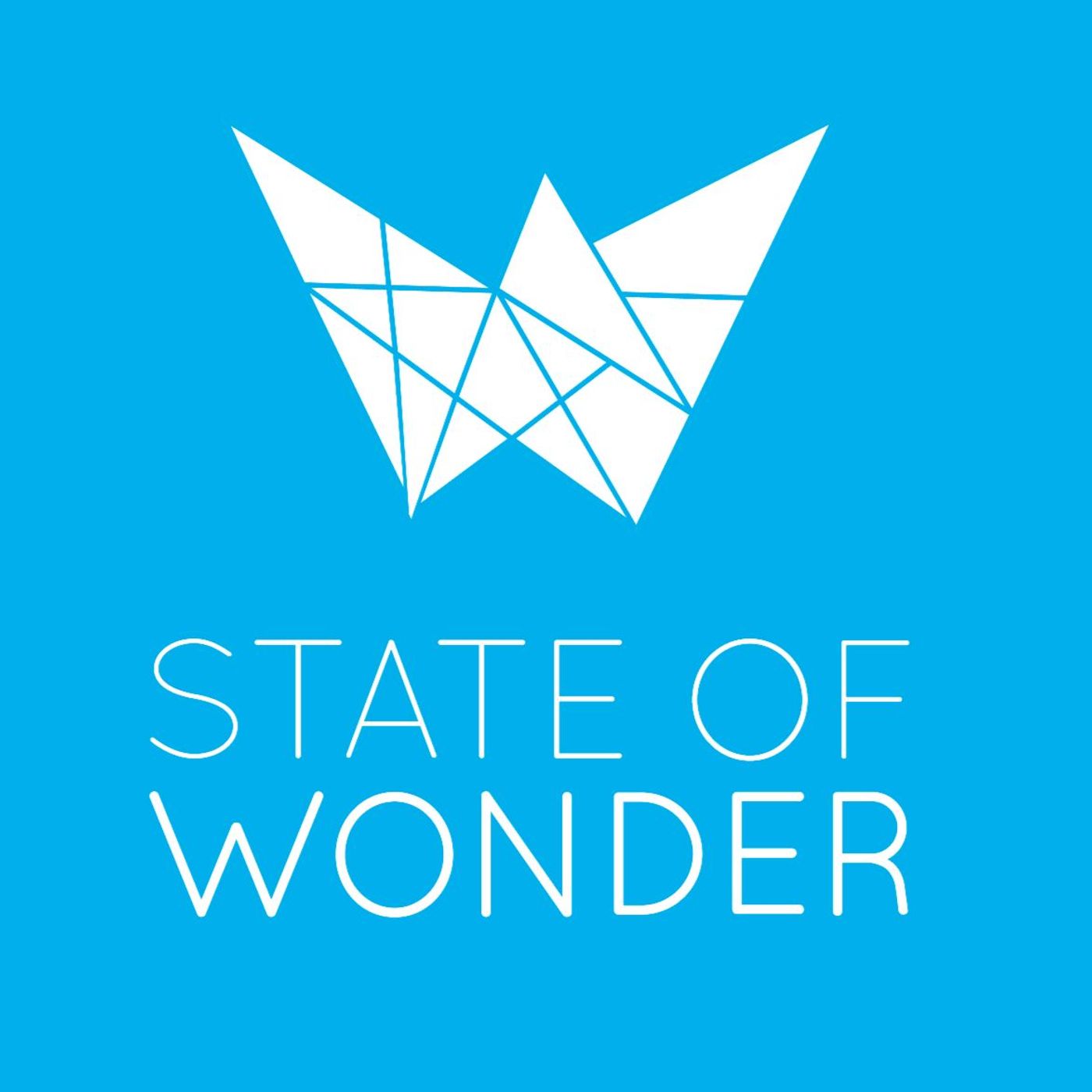 OPB's State of WonderMar. 8 2014 - FULL SHOW Crackdown, Frozen, CAC, Freddy Ruiz01:35 Police and Hip-Hop11:13 Amenta Abioto 12:40 Freddy Ruiz Jr17:29 Cultural Advocacy Coalition's "Big Think"30:00 Salem's David Metzger, Oscar Winner for "Frozen"41:44 Frank Hirahara photographs at Oregon Nikkei Legacy Center49:00 Christopher Michlig and John Zerzan sculpture vandalized51:25 Disjecta Biennial informationSee our website for links and details: www.opb.org/radio/programs/stateofwonder/2014-03-0753 min
OPB's State of WonderMar. 8 2014 - FULL SHOW Crackdown, Frozen, CAC, Freddy Ruiz01:35 Police and Hip-Hop11:13 Amenta Abioto 12:40 Freddy Ruiz Jr17:29 Cultural Advocacy Coalition's "Big Think"30:00 Salem's David Metzger, Oscar Winner for "Frozen"41:44 Frank Hirahara photographs at Oregon Nikkei Legacy Center49:00 Christopher Michlig and John Zerzan sculpture vandalized51:25 Disjecta Biennial informationSee our website for links and details: www.opb.org/radio/programs/stateofwonder/2014-03-0753 min The ConversationThe Conversation - 52 - Walter BlockLibertarian ideas have been a major theme in The Conversation. They were introduced in our second episode by Max More and have since been elaborated upon by David Miller, Robert Zubrin, Tim Cannon, and Oliver Porter. But while libertarianism has been discussed frequently, it has always been a secondary theme within episodes about, say, transhumanism or space exploration. But libertarianism is too intriguing to discuss obliquely, so we're pulling it out of the background and exploring it in a full episode. We were especially interested in the logical conclusion of libertarian thought and, for that, we turned to Walter Block.2013-07-0600 min
The ConversationThe Conversation - 52 - Walter BlockLibertarian ideas have been a major theme in The Conversation. They were introduced in our second episode by Max More and have since been elaborated upon by David Miller, Robert Zubrin, Tim Cannon, and Oliver Porter. But while libertarianism has been discussed frequently, it has always been a secondary theme within episodes about, say, transhumanism or space exploration. But libertarianism is too intriguing to discuss obliquely, so we're pulling it out of the background and exploring it in a full episode. We were especially interested in the logical conclusion of libertarian thought and, for that, we turned to Walter Block.2013-07-0600 min Aengus Anderson RadioThe Conversation - 52 - Walter BlockLibertarian ideas have been a major theme in The Conversation. They were introduced in our second episode by Max More and have since been elaborated upon by David Miller, Robert Zubrin, Tim Cannon, and Oliver Porter. But while libertarianism has been discussed frequently, it has always been a secondary theme within episodes about, say, transhumanism or space exploration. But libertarianism is too intriguing to discuss obliquely, so we're pulling it out of the background and exploring it in a full episode. We were especially interested in the logical conclusion of libertarian thought and, for that, we turned to Walter Block...2013-07-0600 min
Aengus Anderson RadioThe Conversation - 52 - Walter BlockLibertarian ideas have been a major theme in The Conversation. They were introduced in our second episode by Max More and have since been elaborated upon by David Miller, Robert Zubrin, Tim Cannon, and Oliver Porter. But while libertarianism has been discussed frequently, it has always been a secondary theme within episodes about, say, transhumanism or space exploration. But libertarianism is too intriguing to discuss obliquely, so we're pulling it out of the background and exploring it in a full episode. We were especially interested in the logical conclusion of libertarian thought and, for that, we turned to Walter Block...2013-07-0600 min Podcast - LaMalatestaAnarquismo social o Anarquismo personal. Un abismo insuperablede Murray Bookchin.
Charla-presentación con Jtxo Estebaranz, el prologuista.
Tuvo lugar el viernes 19 abril de 2013, 19:30h.
En el presente libro, el ya fallecido Murray Bookchin, uno de los principales pensadores anarquistas contemporáneos, realiza una dura crítica de algunas de las nuevas corrientes que han cobrado fuerza en las últimas décadas dentro de la izquierda antiautoritaria y, en concreto, dentro del área anarquista. Bookchin, uno de los pioneros de la ecología social, analiza y cuestiona las bases de las corrientes de crítica de la civilización industrial, primitivistas, neomísticas e individualistas (y se enfrenta a algunas...2013-07-051h 26
Podcast - LaMalatestaAnarquismo social o Anarquismo personal. Un abismo insuperablede Murray Bookchin.
Charla-presentación con Jtxo Estebaranz, el prologuista.
Tuvo lugar el viernes 19 abril de 2013, 19:30h.
En el presente libro, el ya fallecido Murray Bookchin, uno de los principales pensadores anarquistas contemporáneos, realiza una dura crítica de algunas de las nuevas corrientes que han cobrado fuerza en las últimas décadas dentro de la izquierda antiautoritaria y, en concreto, dentro del área anarquista. Bookchin, uno de los pioneros de la ecología social, analiza y cuestiona las bases de las corrientes de crítica de la civilización industrial, primitivistas, neomísticas e individualistas (y se enfrenta a algunas...2013-07-051h 26 The ConversationThe Conversation - 40 - Mary MattinglyMary Mattingly is an artist based in Brooklyn, New York. We learned about her through the Flockhouse Project and traced back to discover the Waterpod and her earlier work. Mary’s art explores the environment, sustainability, housing, and community structure, among other things. We have spoken to a fair number of environmental thinkers in The Conversation, but Mary is the first whose work directly explores individual survival in an unstable world.
There are lots of reasons you’ll like this episode. Aside from the Mad Max/Waterworld quality of our conversation, Mary looks at environmental change in a way that...2013-01-1800 min
The ConversationThe Conversation - 40 - Mary MattinglyMary Mattingly is an artist based in Brooklyn, New York. We learned about her through the Flockhouse Project and traced back to discover the Waterpod and her earlier work. Mary’s art explores the environment, sustainability, housing, and community structure, among other things. We have spoken to a fair number of environmental thinkers in The Conversation, but Mary is the first whose work directly explores individual survival in an unstable world.
There are lots of reasons you’ll like this episode. Aside from the Mad Max/Waterworld quality of our conversation, Mary looks at environmental change in a way that...2013-01-1800 min Aengus Anderson RadioThe Conversation - 40 - Mary MattinglyMary Mattingly is an artist based in Brooklyn, New York. We learned about her through the Flockhouse Project and traced back to discover the Waterpod and her earlier work. Mary’s art explores the environment, sustainability, housing, and community structure, among other things. We have spoken to a fair number of environmental thinkers in The Conversation, but Mary is the first whose work directly explores individual survival in an unstable world.<br/>
There are lots of reasons you’ll like this episode. Aside from the Mad Max/Waterworld quality of our conversation, Mary looks at environmental change in a wa...2013-01-1800 min
Aengus Anderson RadioThe Conversation - 40 - Mary MattinglyMary Mattingly is an artist based in Brooklyn, New York. We learned about her through the Flockhouse Project and traced back to discover the Waterpod and her earlier work. Mary’s art explores the environment, sustainability, housing, and community structure, among other things. We have spoken to a fair number of environmental thinkers in The Conversation, but Mary is the first whose work directly explores individual survival in an unstable world.<br/>
There are lots of reasons you’ll like this episode. Aside from the Mad Max/Waterworld quality of our conversation, Mary looks at environmental change in a wa...2013-01-1800 min The ConversationThe Conversation - 37 - David KeithFrom The Conversation's inception, geoengineering—the deliberate manipulation of the climate through technology—has been high on my list of subjects to include in the series. To address the issue, I spoke with David Keith, a Harvard professor with a joint appointment in Applied Physics and Public Policy. David has spent the better part of two decades researching climate science and geoengineering, was named a Hero of the Environment by TIME in 2009, and is also the President of Carbon Engineering, a startup dedicated to reducing atmospheric CO2. He is also publicly visible, having testified before the US Congress, spoken at TED, a...2012-12-2100 min
The ConversationThe Conversation - 37 - David KeithFrom The Conversation's inception, geoengineering—the deliberate manipulation of the climate through technology—has been high on my list of subjects to include in the series. To address the issue, I spoke with David Keith, a Harvard professor with a joint appointment in Applied Physics and Public Policy. David has spent the better part of two decades researching climate science and geoengineering, was named a Hero of the Environment by TIME in 2009, and is also the President of Carbon Engineering, a startup dedicated to reducing atmospheric CO2. He is also publicly visible, having testified before the US Congress, spoken at TED, a...2012-12-2100 min Aengus Anderson RadioThe Conversation - 37 - David KeithFrom The Conversation's inception, geoengineering—the deliberate manipulation of the climate through technology—has been high on my list of subjects to include in the series. To address the issue, I spoke with David Keith, a Harvard professor with a joint appointment in Applied Physics and Public Policy. David has spent the better part of two decades researching climate science and geoengineering, was named a Hero of the Environment by TIME in 2009, and is also the President of Carbon Engineering, a startup dedicated to reducing atmospheric CO2. He is also publicly visible, having testified before the US Congress, spoken at TED, a...2012-12-2100 min
Aengus Anderson RadioThe Conversation - 37 - David KeithFrom The Conversation's inception, geoengineering—the deliberate manipulation of the climate through technology—has been high on my list of subjects to include in the series. To address the issue, I spoke with David Keith, a Harvard professor with a joint appointment in Applied Physics and Public Policy. David has spent the better part of two decades researching climate science and geoengineering, was named a Hero of the Environment by TIME in 2009, and is also the President of Carbon Engineering, a startup dedicated to reducing atmospheric CO2. He is also publicly visible, having testified before the US Congress, spoken at TED, a...2012-12-2100 min The ConversationThe Conversation - 28 - Tim CannonTim Cannon is a co-founder of Grindhouse Wetware, a group of open-source biohackers in Pittsburg, Pennsylvania. What does that sentence mean, you ask? Biohacking is the process of augmenting the human body to do new things, whether with technology or biology. Max More introduced the theme of transhumanism back in Episode 2, but Tim is going to take the idea and run with it—the Grindhouse crew are actively developing and implanting technologies in themselves now.
Tim and I don't dwell on current augmentation technologies for long. Instead, we plunge into a conversation about the nature of humanity and why...2012-10-0300 min
The ConversationThe Conversation - 28 - Tim CannonTim Cannon is a co-founder of Grindhouse Wetware, a group of open-source biohackers in Pittsburg, Pennsylvania. What does that sentence mean, you ask? Biohacking is the process of augmenting the human body to do new things, whether with technology or biology. Max More introduced the theme of transhumanism back in Episode 2, but Tim is going to take the idea and run with it—the Grindhouse crew are actively developing and implanting technologies in themselves now.
Tim and I don't dwell on current augmentation technologies for long. Instead, we plunge into a conversation about the nature of humanity and why...2012-10-0300 min Aengus Anderson RadioThe Conversation - 28 - Tim CannonTim Cannon is a co-founder of Grindhouse Wetware, a group of open-source biohackers in Pittsburg, Pennsylvania. What does that sentence mean, you ask? Biohacking is the process of augmenting the human body to do new things, whether with technology or biology. Max More introduced the theme of transhumanism back in Episode 2, but Tim is going to take the idea and run with it—the Grindhouse crew are actively developing and implanting technologies in themselves now. <br/>
<br/>
Tim and I don't dwell on current augmentation technologies for long. Instead, we plunge into a conversation about the nat...2012-10-0300 min
Aengus Anderson RadioThe Conversation - 28 - Tim CannonTim Cannon is a co-founder of Grindhouse Wetware, a group of open-source biohackers in Pittsburg, Pennsylvania. What does that sentence mean, you ask? Biohacking is the process of augmenting the human body to do new things, whether with technology or biology. Max More introduced the theme of transhumanism back in Episode 2, but Tim is going to take the idea and run with it—the Grindhouse crew are actively developing and implanting technologies in themselves now. <br/>
<br/>
Tim and I don't dwell on current augmentation technologies for long. Instead, we plunge into a conversation about the nat...2012-10-0300 min The ConversationThe Conversation - 21 - Robert ZubrinDr. Robert Zubrin is the president of The Mars Society, a nonprofit organization dedicated to advancing the exploration and colonization of Mars. We begin by discussing why space exploration and colonization is good but, as with my conversation with Chris McKay, Robert and I use space as an entry to discussing issues back on Earth. A major theme of this conversation is environmentalism, which Robert classifies as a form of anti-humanism, offering a strong anthrpocentric response to the biocentrism of Jan Lundberg and David Korten. This flows into a conversation about how we define progress and where we find value...2012-08-1800 min
The ConversationThe Conversation - 21 - Robert ZubrinDr. Robert Zubrin is the president of The Mars Society, a nonprofit organization dedicated to advancing the exploration and colonization of Mars. We begin by discussing why space exploration and colonization is good but, as with my conversation with Chris McKay, Robert and I use space as an entry to discussing issues back on Earth. A major theme of this conversation is environmentalism, which Robert classifies as a form of anti-humanism, offering a strong anthrpocentric response to the biocentrism of Jan Lundberg and David Korten. This flows into a conversation about how we define progress and where we find value...2012-08-1800 min Aengus Anderson RadioThe Conversation - 21 - Robert ZubrinDr. Robert Zubrin is the president of The Mars Society, a nonprofit organization dedicated to advancing the exploration and colonization of Mars. We begin by discussing why space exploration and colonization is good but, as with my conversation with Chris McKay, Robert and I use space as an entry to discussing issues back on Earth. A major theme of this conversation is environmentalism, which Robert classifies as a form of anti-humanism, offering a strong anthrpocentric response to the biocentrism of Jan Lundberg and David Korten. This flows into a conversation about how we define progress and where we find value...2012-08-1800 min
Aengus Anderson RadioThe Conversation - 21 - Robert ZubrinDr. Robert Zubrin is the president of The Mars Society, a nonprofit organization dedicated to advancing the exploration and colonization of Mars. We begin by discussing why space exploration and colonization is good but, as with my conversation with Chris McKay, Robert and I use space as an entry to discussing issues back on Earth. A major theme of this conversation is environmentalism, which Robert classifies as a form of anti-humanism, offering a strong anthrpocentric response to the biocentrism of Jan Lundberg and David Korten. This flows into a conversation about how we define progress and where we find value...2012-08-1800 min Aengus Anderson RadioThe Conversation - 20 - David MillerDavid Miller is a state representative and mineral explorer in Wyoming. Rep. Miller was the architect of Wyoming's House Bill 85, the so-called "Doomsday Bill," which created a committee to study Wyoming's response to a collapse of the US Federal Government. Our conversation spans themes from across the entire project, from the transhumanism of Max More to the primitivism of John Zerzan to the scientific optimism of Ariel Waldman. This conversation also grows naturally out of the previous conversation with Dr. Joseph Tainter. Similar themes of debt and complexity arise and Rome makes another appearance, but the context is different this...2012-08-1200 min
Aengus Anderson RadioThe Conversation - 20 - David MillerDavid Miller is a state representative and mineral explorer in Wyoming. Rep. Miller was the architect of Wyoming's House Bill 85, the so-called "Doomsday Bill," which created a committee to study Wyoming's response to a collapse of the US Federal Government. Our conversation spans themes from across the entire project, from the transhumanism of Max More to the primitivism of John Zerzan to the scientific optimism of Ariel Waldman. This conversation also grows naturally out of the previous conversation with Dr. Joseph Tainter. Similar themes of debt and complexity arise and Rome makes another appearance, but the context is different this...2012-08-1200 min The ConversationThe Conversation - 20 - David MillerDavid Miller is a state representative and mineral explorer in Wyoming. Rep. Miller was the architect of Wyoming's House Bill 85, the so-called "Doomsday Bill," which created a committee to study Wyoming's response to a collapse of the US Federal Government. Our conversation spans themes from across the entire project, from the transhumanism of Max More to the primitivism of John Zerzan to the scientific optimism of Ariel Waldman. This conversation also grows naturally out of the previous conversation with Dr. Joseph Tainter. Similar themes of debt and complexity arise and Rome makes another appearance, but the context is different this...2012-08-1200 min
The ConversationThe Conversation - 20 - David MillerDavid Miller is a state representative and mineral explorer in Wyoming. Rep. Miller was the architect of Wyoming's House Bill 85, the so-called "Doomsday Bill," which created a committee to study Wyoming's response to a collapse of the US Federal Government. Our conversation spans themes from across the entire project, from the transhumanism of Max More to the primitivism of John Zerzan to the scientific optimism of Ariel Waldman. This conversation also grows naturally out of the previous conversation with Dr. Joseph Tainter. Similar themes of debt and complexity arise and Rome makes another appearance, but the context is different this...2012-08-1200 min Aengus Anderson RadioThe Conversation - 19 - Joseph TainterDr. Joseph Tainter is an anthropologist and historian who has studied collapse in numerous ancient civilization and penned The Collapse of Complex Societies. This is our first deeply historical episode and Dr. Tainter begins by offering his definition of complexity and taking us through the story of Western Rome's collapse. Extrapolating from the past, Dr. Tainter paints an alarming scene of our possible future. In our conversation, he critiques the primitivism of John Zerzan, the transhumanism of Max More, and the technological optimism of Ariel Waldman and Colin Camerer. What are we left with? Not optimism, not pessimism but, perhaps...2012-08-0800 min
Aengus Anderson RadioThe Conversation - 19 - Joseph TainterDr. Joseph Tainter is an anthropologist and historian who has studied collapse in numerous ancient civilization and penned The Collapse of Complex Societies. This is our first deeply historical episode and Dr. Tainter begins by offering his definition of complexity and taking us through the story of Western Rome's collapse. Extrapolating from the past, Dr. Tainter paints an alarming scene of our possible future. In our conversation, he critiques the primitivism of John Zerzan, the transhumanism of Max More, and the technological optimism of Ariel Waldman and Colin Camerer. What are we left with? Not optimism, not pessimism but, perhaps...2012-08-0800 min The ConversationThe Conversation - 19 - Joseph TainterDr. Joseph Tainter is an anthropologist and historian who has studied collapse in numerous ancient civilization and penned The Collapse of Complex Societies. This is our first deeply historical episode and Dr. Tainter begins by offering his definition of complexity and taking us through the story of Western Rome's collapse. Extrapolating from the past, Dr. Tainter paints an alarming scene of our possible future. In our conversation, he critiques the primitivism of John Zerzan, the transhumanism of Max More, and the technological optimism of Ariel Waldman and Colin Camerer. What are we left with? Not optimism, not pessimism but, perhaps...2012-08-0800 min
The ConversationThe Conversation - 19 - Joseph TainterDr. Joseph Tainter is an anthropologist and historian who has studied collapse in numerous ancient civilization and penned The Collapse of Complex Societies. This is our first deeply historical episode and Dr. Tainter begins by offering his definition of complexity and taking us through the story of Western Rome's collapse. Extrapolating from the past, Dr. Tainter paints an alarming scene of our possible future. In our conversation, he critiques the primitivism of John Zerzan, the transhumanism of Max More, and the technological optimism of Ariel Waldman and Colin Camerer. What are we left with? Not optimism, not pessimism but, perhaps...2012-08-0800 min Aengus Anderson RadioThe Conversation - 15 - Cameron WhittenCameron Whitten is, in his own words, a "shameless agitator" from Portland, Oregon. He became politically active during the Occupy Portland movement and, at twenty, made a bid to become the mayor of the Rose City with endorsements from the Green Party and Oregon Progressive Party. As of this posting, Whitten is on day 44 of a hunger strike designed to spark the Portland City Council to address issues of housing inequality.<br/>
<br/>
We spoke about Occupy, equality, and the idea of The Conversation. For Whitten, The Conversation is a first step to addressing issues of cla...2012-07-1600 min
Aengus Anderson RadioThe Conversation - 15 - Cameron WhittenCameron Whitten is, in his own words, a "shameless agitator" from Portland, Oregon. He became politically active during the Occupy Portland movement and, at twenty, made a bid to become the mayor of the Rose City with endorsements from the Green Party and Oregon Progressive Party. As of this posting, Whitten is on day 44 of a hunger strike designed to spark the Portland City Council to address issues of housing inequality.<br/>
<br/>
We spoke about Occupy, equality, and the idea of The Conversation. For Whitten, The Conversation is a first step to addressing issues of cla...2012-07-1600 min The ConversationThe Conversation - 15 - Cameron WhittenCameron Whitten is, in his own words, a "shameless agitator" from Portland, Oregon. He became politically active during the Occupy Portland movement and, at twenty, made a bid to become the mayor of the Rose City with endorsements from the Green Party and Oregon Progressive Party. As of this posting, Whitten is on day 44 of a hunger strike designed to spark the Portland City Council to address issues of housing inequality.
We spoke about Occupy, equality, and the idea of The Conversation. For Whitten, The Conversation is a first step to addressing issues of class inequality, which he con...2012-07-1600 min
The ConversationThe Conversation - 15 - Cameron WhittenCameron Whitten is, in his own words, a "shameless agitator" from Portland, Oregon. He became politically active during the Occupy Portland movement and, at twenty, made a bid to become the mayor of the Rose City with endorsements from the Green Party and Oregon Progressive Party. As of this posting, Whitten is on day 44 of a hunger strike designed to spark the Portland City Council to address issues of housing inequality.
We spoke about Occupy, equality, and the idea of The Conversation. For Whitten, The Conversation is a first step to addressing issues of class inequality, which he con...2012-07-1600 min Aengus Anderson RadioThe Conversation - 14 - John ZerzanJohn Zerzan is an anarchist and primitivist writer and speaker. His books include Against Civilization and Elements of Refusal. We spoke about his critique of technology and civilization, moving on to discuss the origins of the biocentric philosophy that lies at the core of much of his thought. The Conversation itself was a major theme in our talk: John is the only participant in The Conversation (at least at this point) who openly advocates targeted property damage to change minds, so I was especially curious to ask whether his ideas can participate in The Conversation or if they are uncompromising. Micah an...2012-07-1000 min
Aengus Anderson RadioThe Conversation - 14 - John ZerzanJohn Zerzan is an anarchist and primitivist writer and speaker. His books include Against Civilization and Elements of Refusal. We spoke about his critique of technology and civilization, moving on to discuss the origins of the biocentric philosophy that lies at the core of much of his thought. The Conversation itself was a major theme in our talk: John is the only participant in The Conversation (at least at this point) who openly advocates targeted property damage to change minds, so I was especially curious to ask whether his ideas can participate in The Conversation or if they are uncompromising. Micah an...2012-07-1000 min The ConversationThe Conversation - 14 - John ZerzanJohn Zerzan is an anarchist and primitivist writer and speaker. His books include Against Civilization and Elements of Refusal. We spoke about his critique of technology and civilization, moving on to discuss the origins of the biocentric philosophy that lies at the core of much of his thought. The Conversation itself was a major theme in our talk: John is the only participant in The Conversation (at least at this point) who openly advocates targeted property damage to change minds, so I was especially curious to ask whether his ideas can participate in The Conversation or if they are uncompromising. Micah an...2012-07-1000 min
The ConversationThe Conversation - 14 - John ZerzanJohn Zerzan is an anarchist and primitivist writer and speaker. His books include Against Civilization and Elements of Refusal. We spoke about his critique of technology and civilization, moving on to discuss the origins of the biocentric philosophy that lies at the core of much of his thought. The Conversation itself was a major theme in our talk: John is the only participant in The Conversation (at least at this point) who openly advocates targeted property damage to change minds, so I was especially curious to ask whether his ideas can participate in The Conversation or if they are uncompromising. Micah an...2012-07-1000 min KNYO-LP 107.7 FM Fort Bragg, CAJohn ZerzanDan Young speaks with Eugene, Oregon-based author and political philosopher John Zerzan, the author of such books as "Future Primitive" and "Running on Emptiness."2007-11-0449 min
KNYO-LP 107.7 FM Fort Bragg, CAJohn ZerzanDan Young speaks with Eugene, Oregon-based author and political philosopher John Zerzan, the author of such books as "Future Primitive" and "Running on Emptiness."2007-11-0449 min